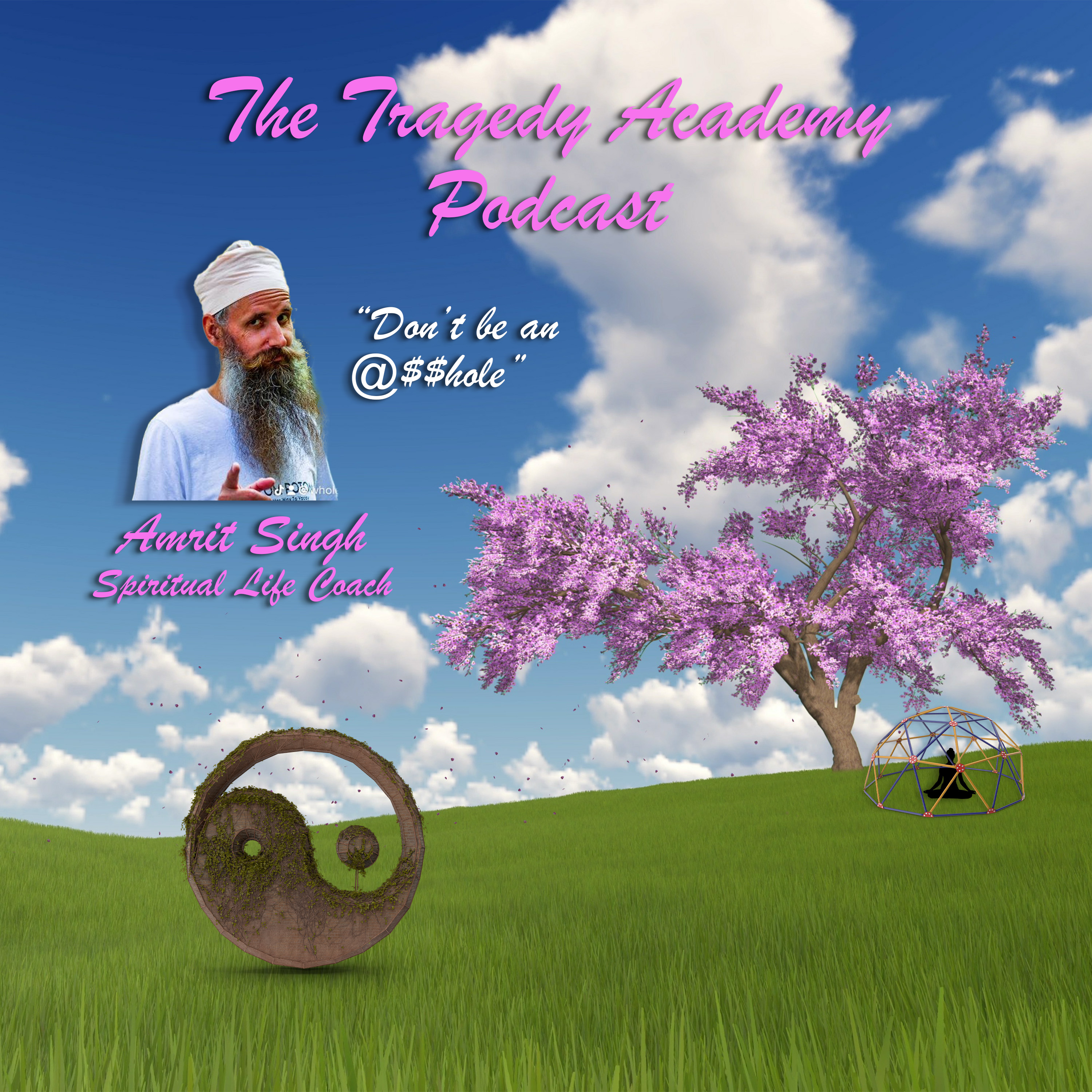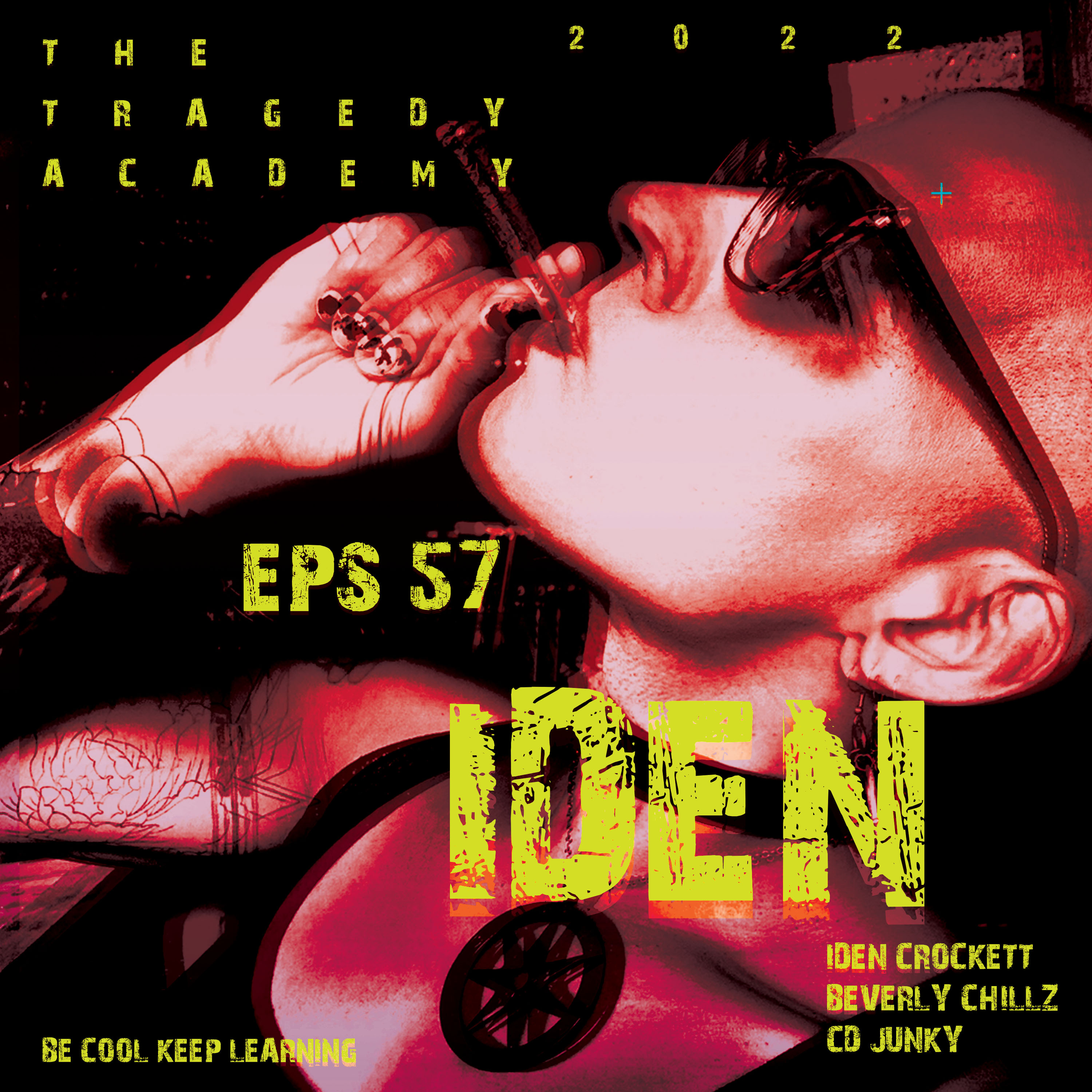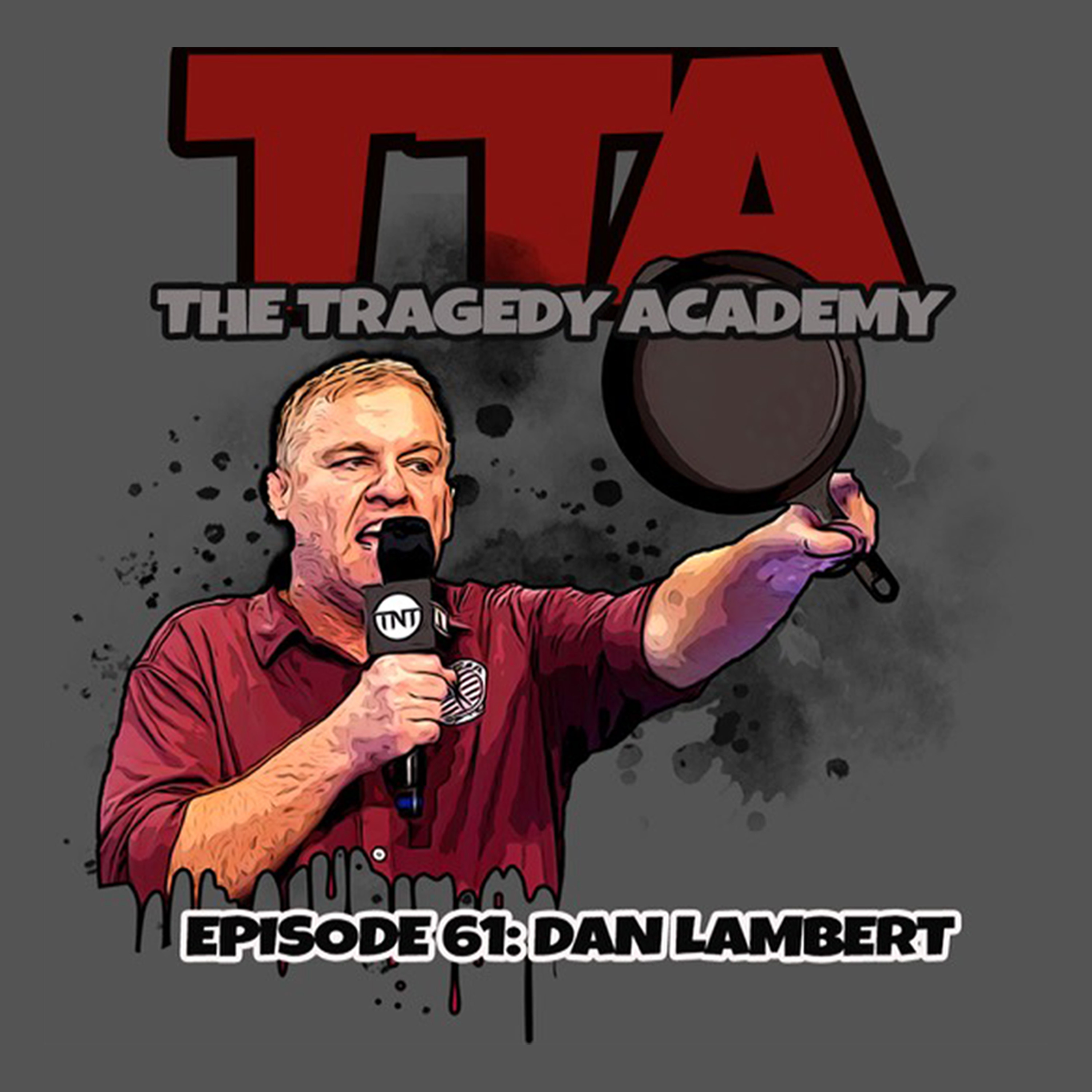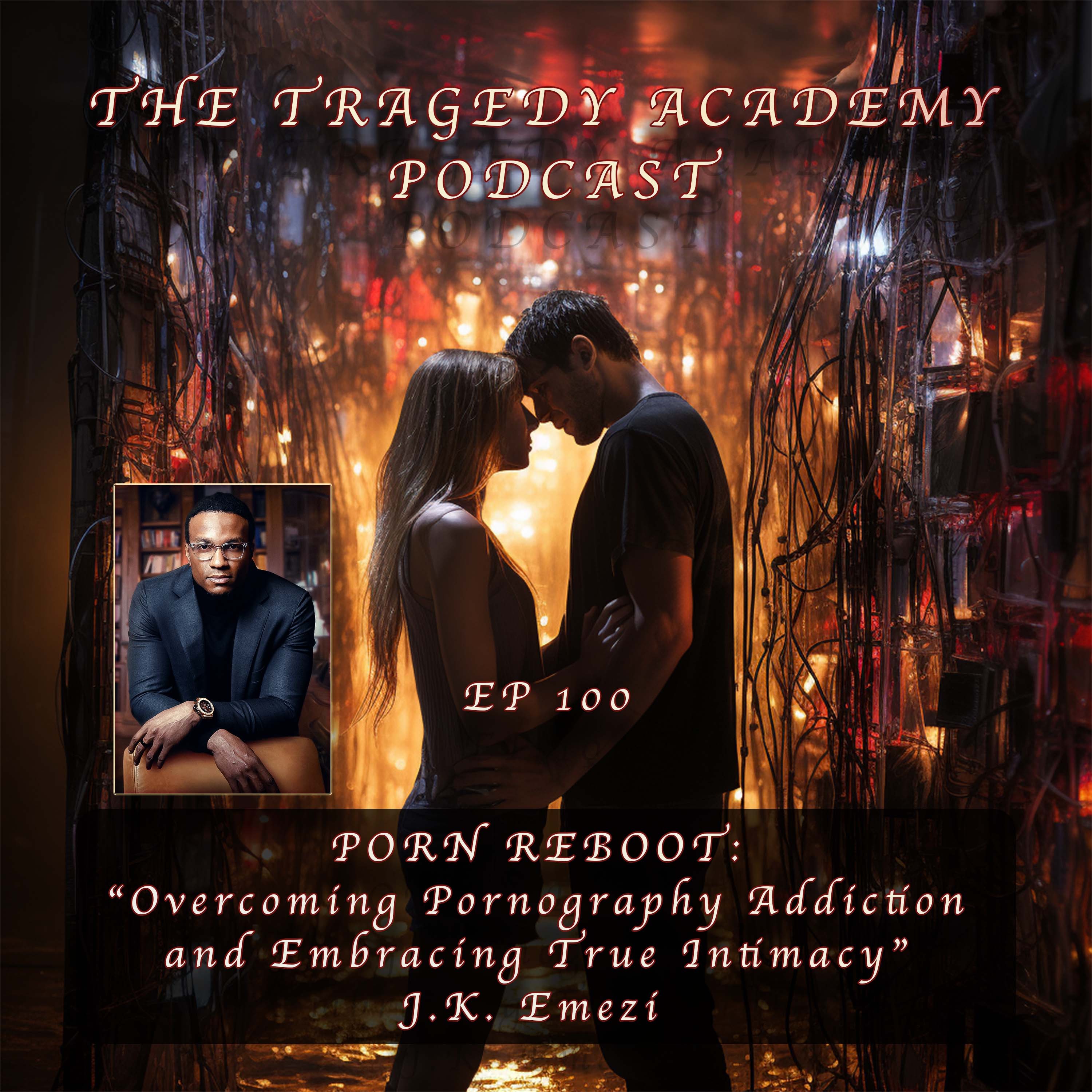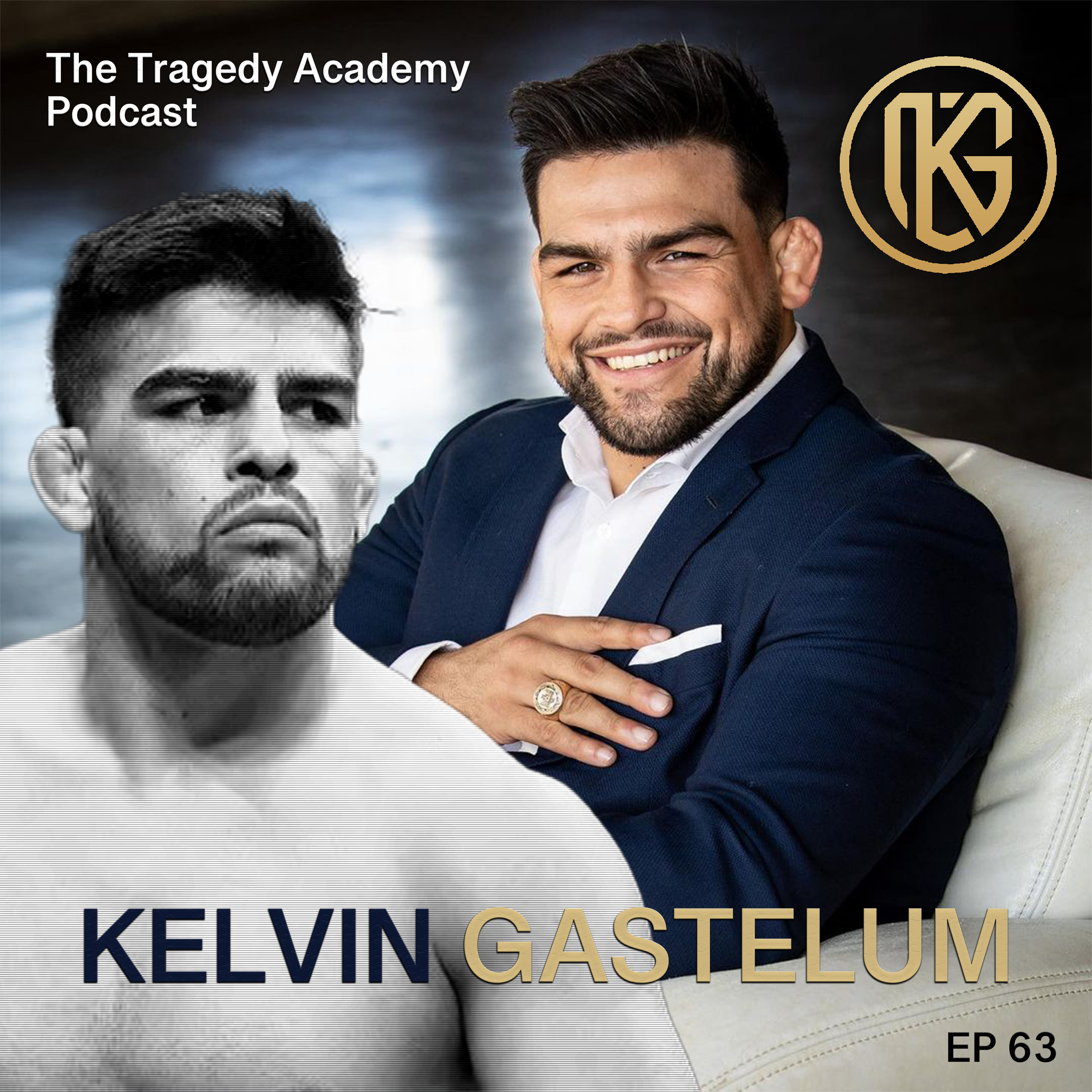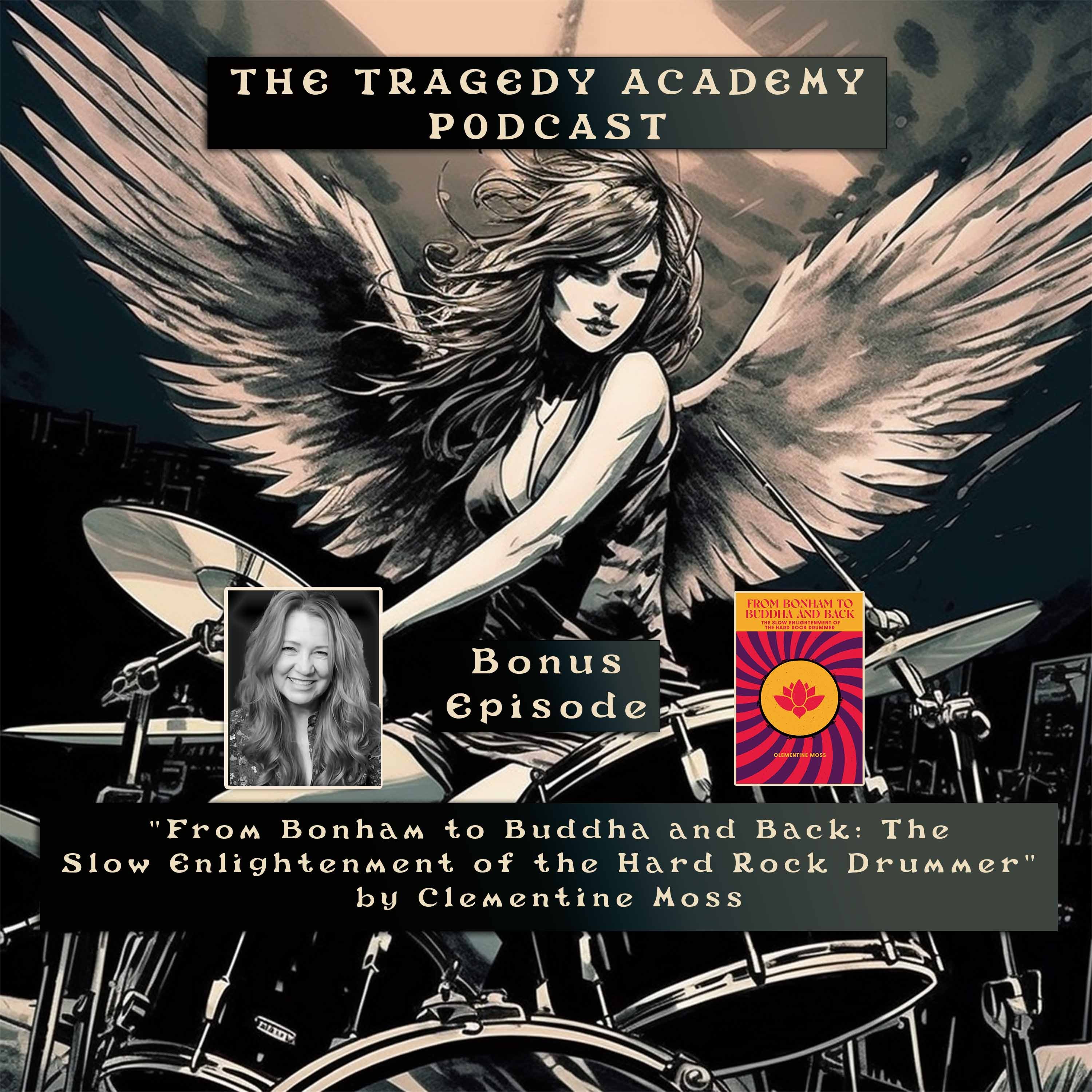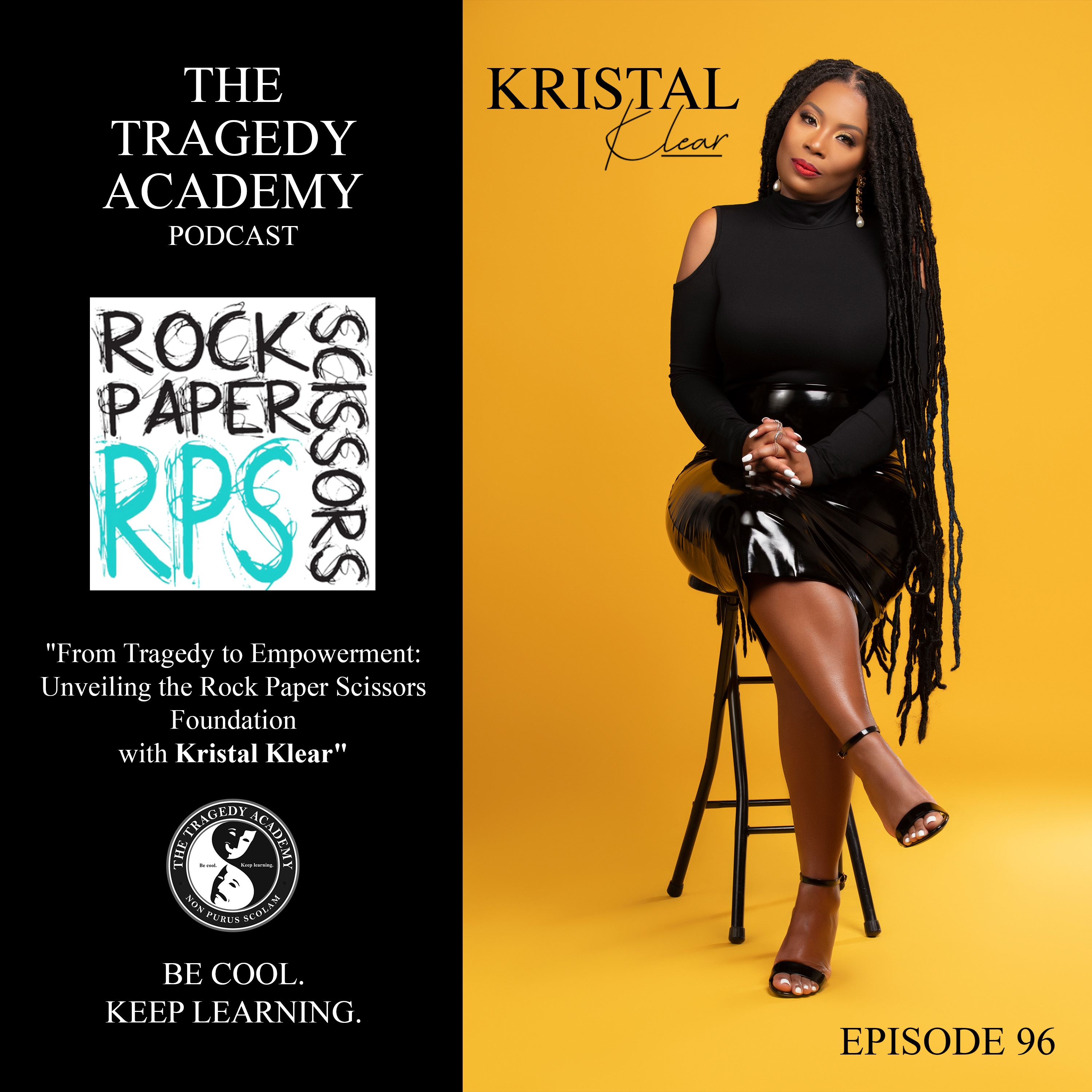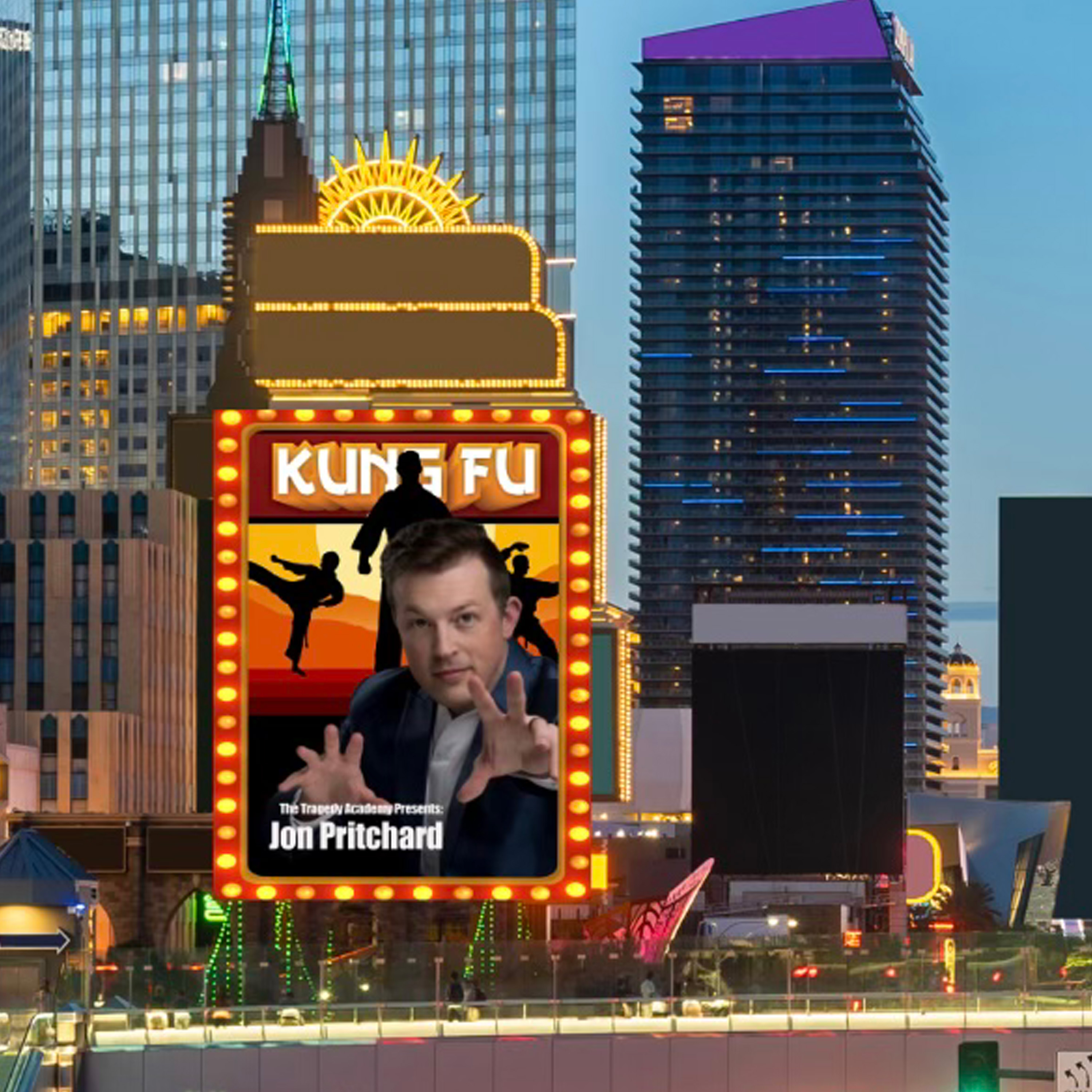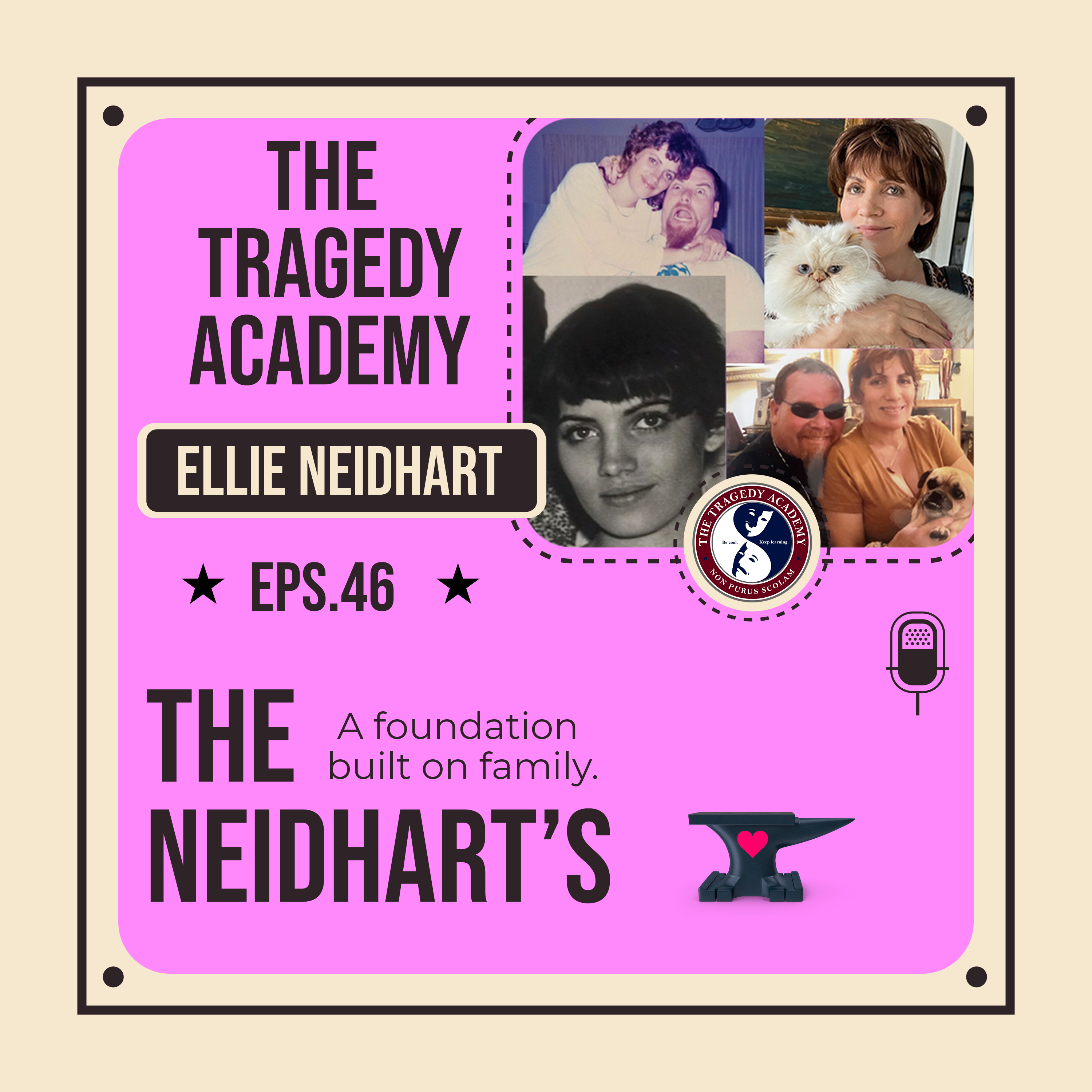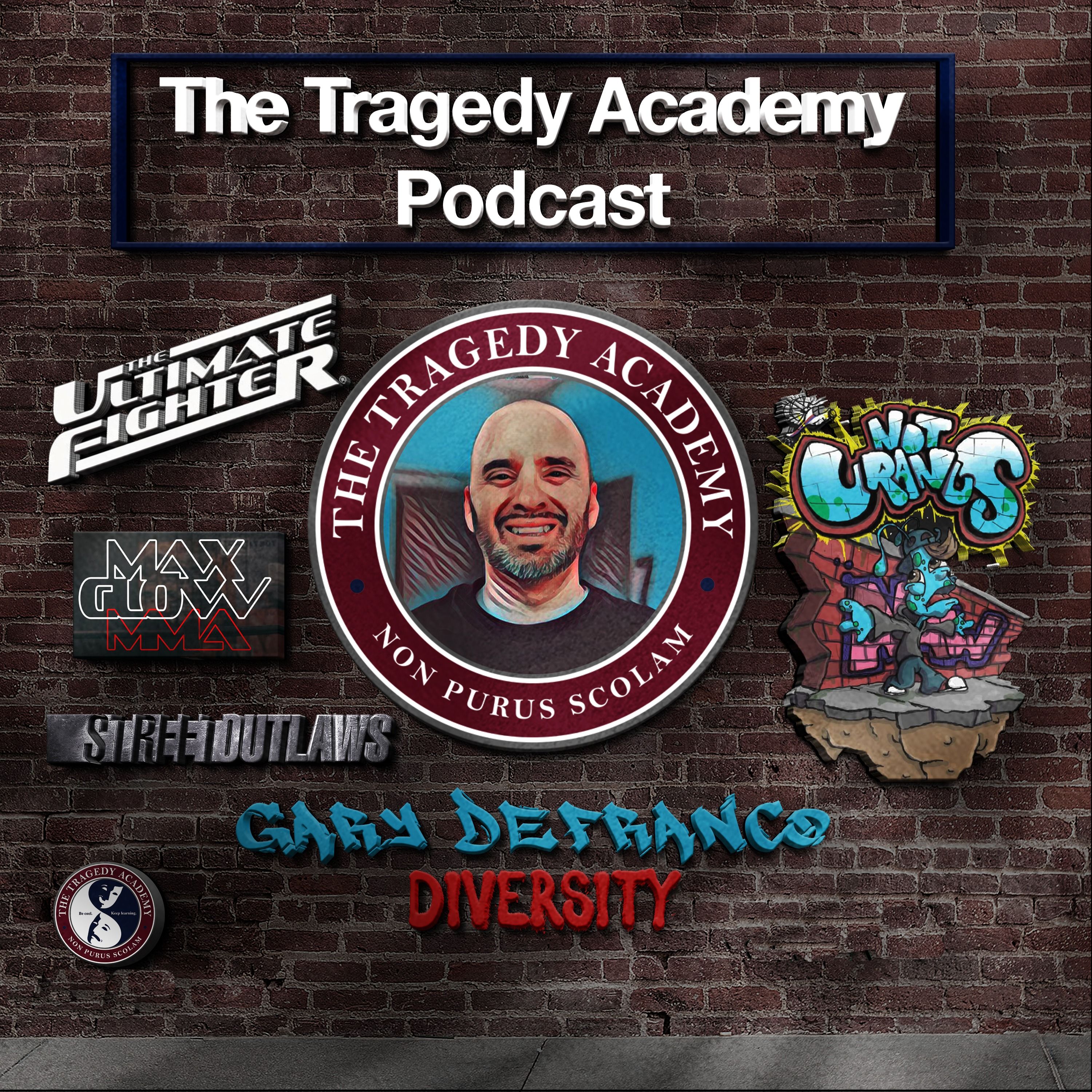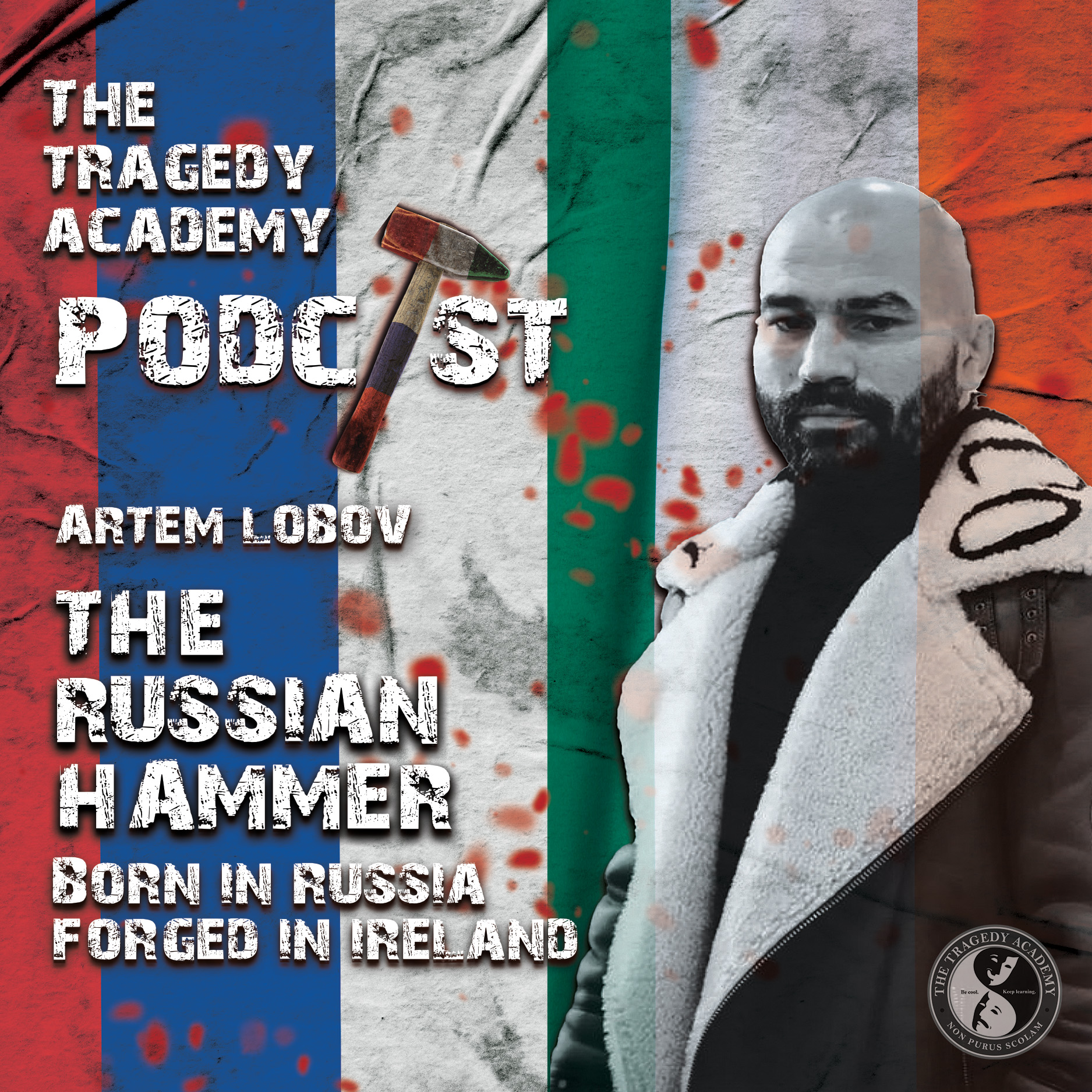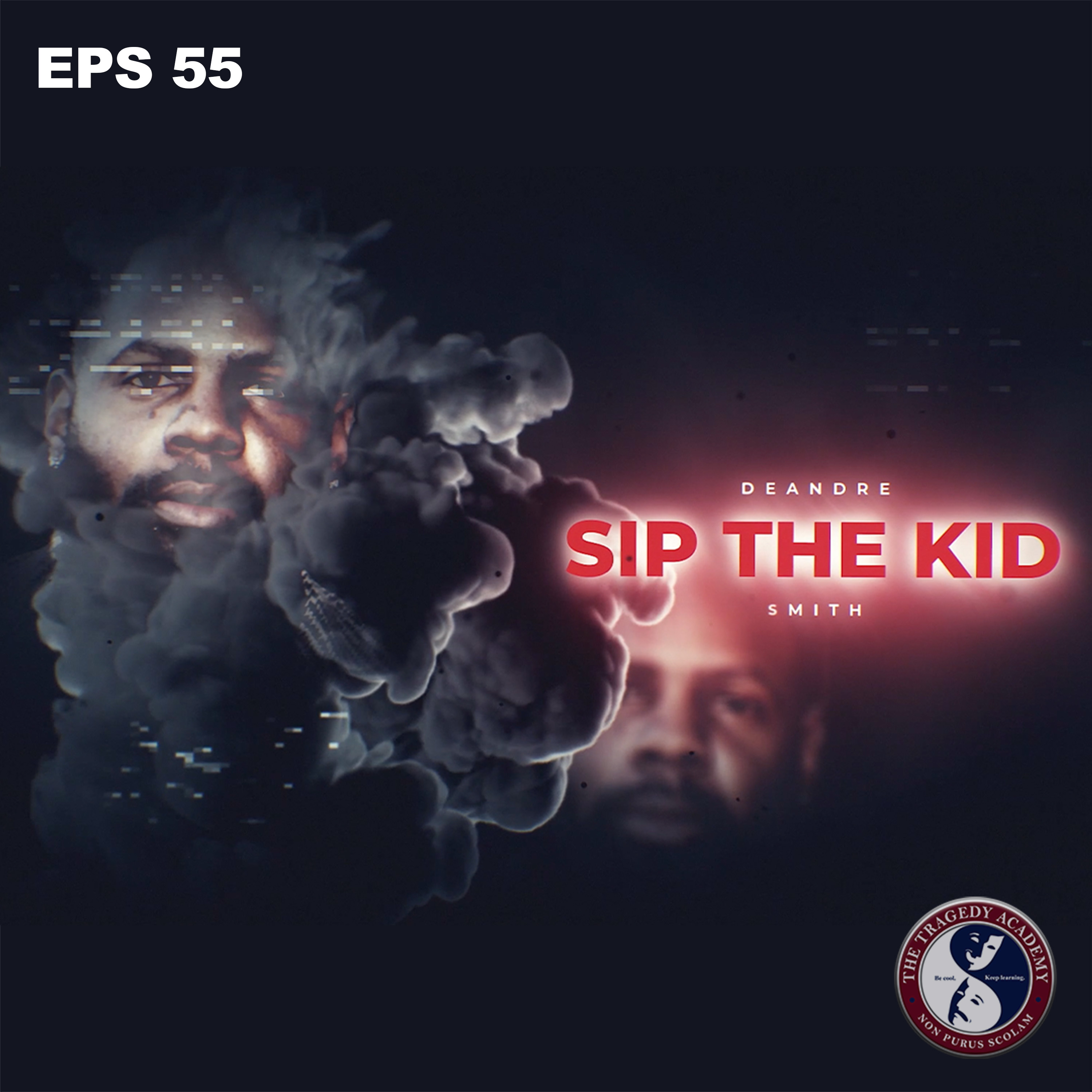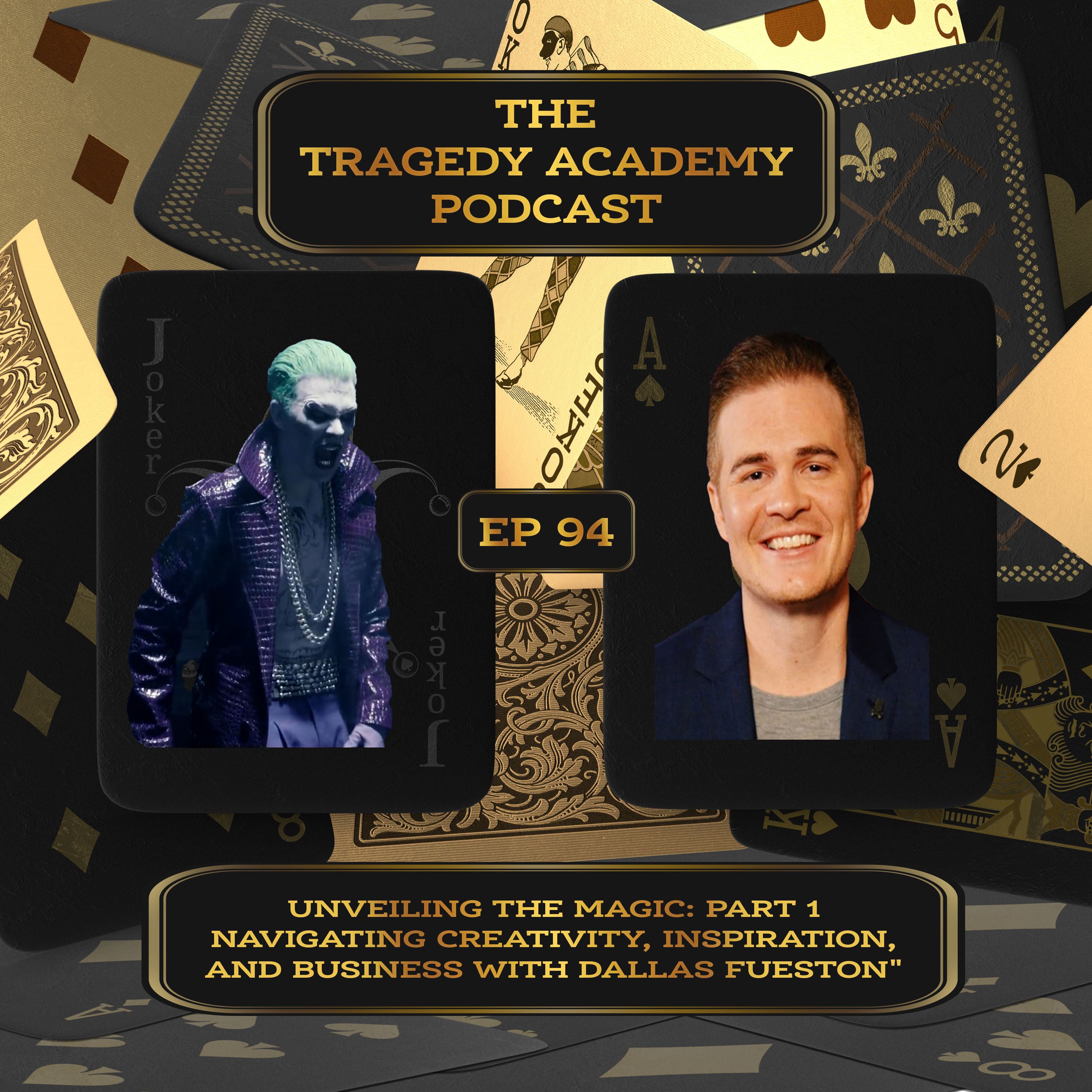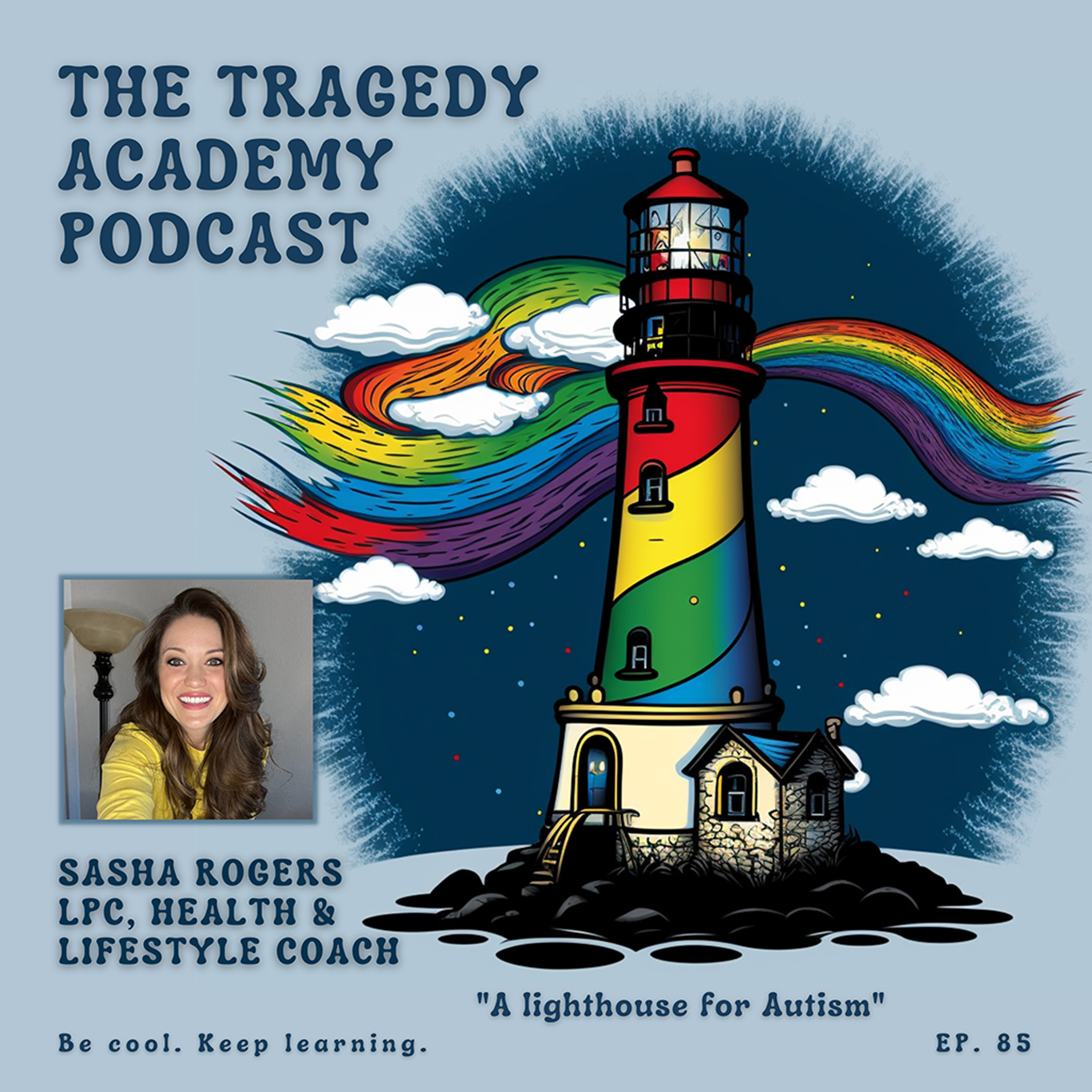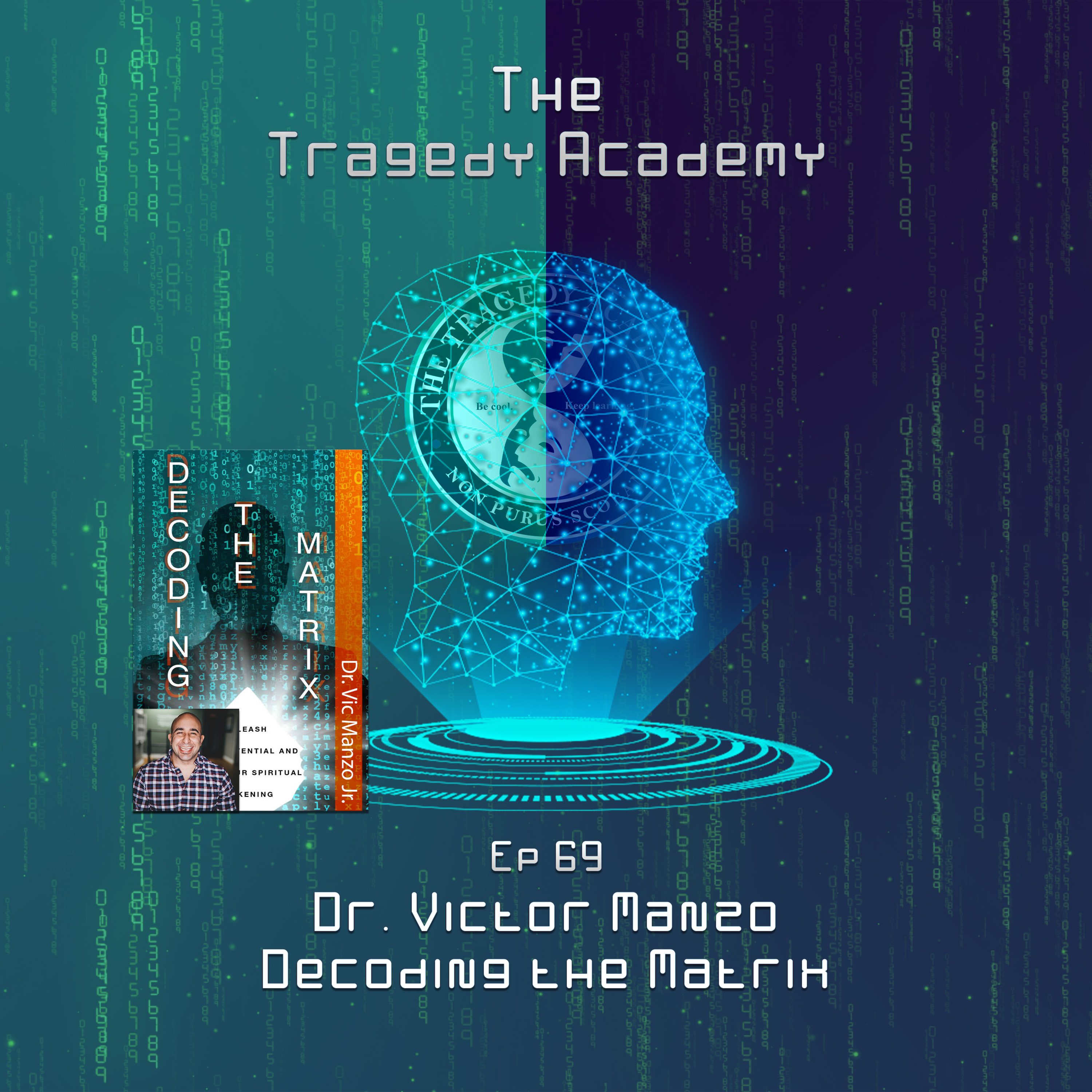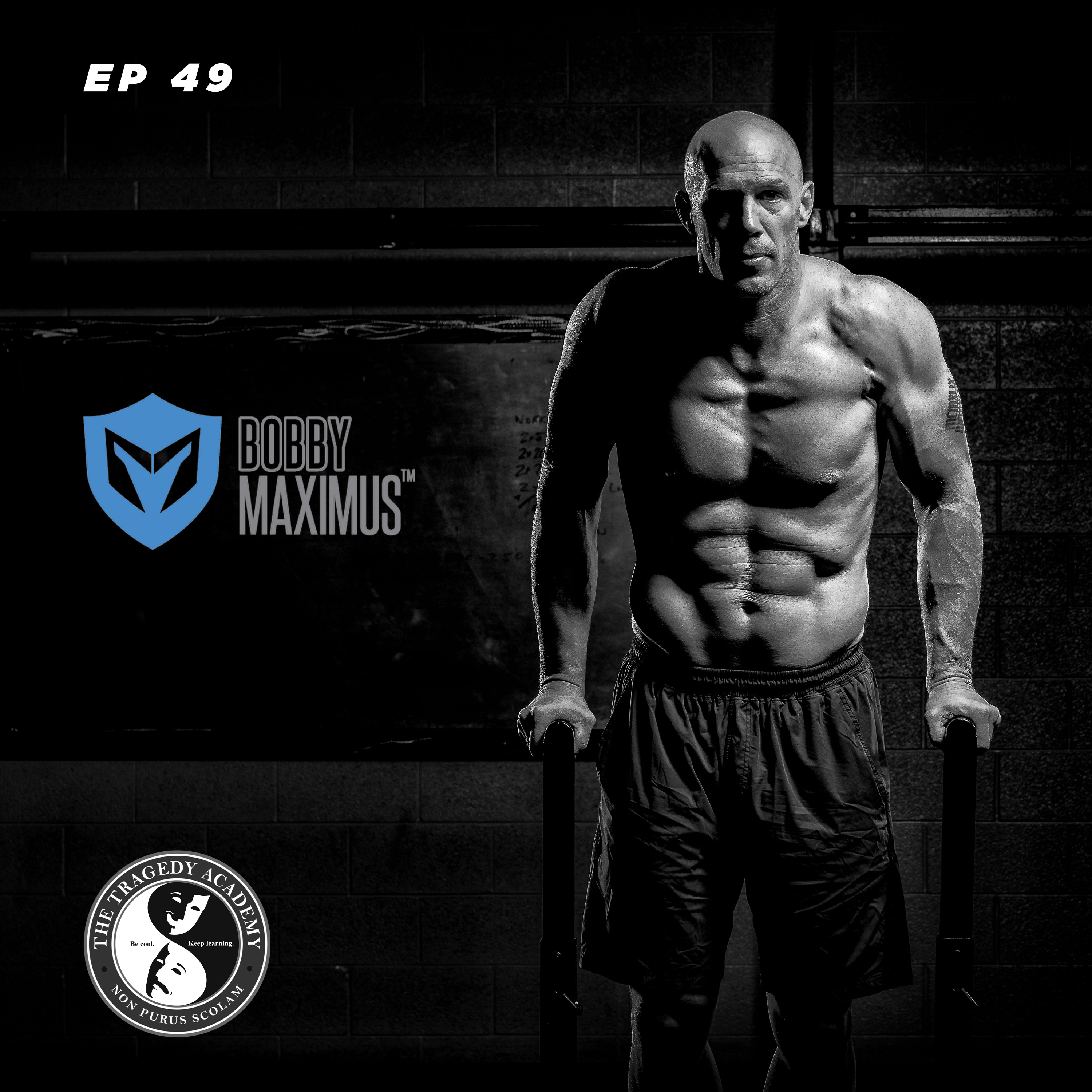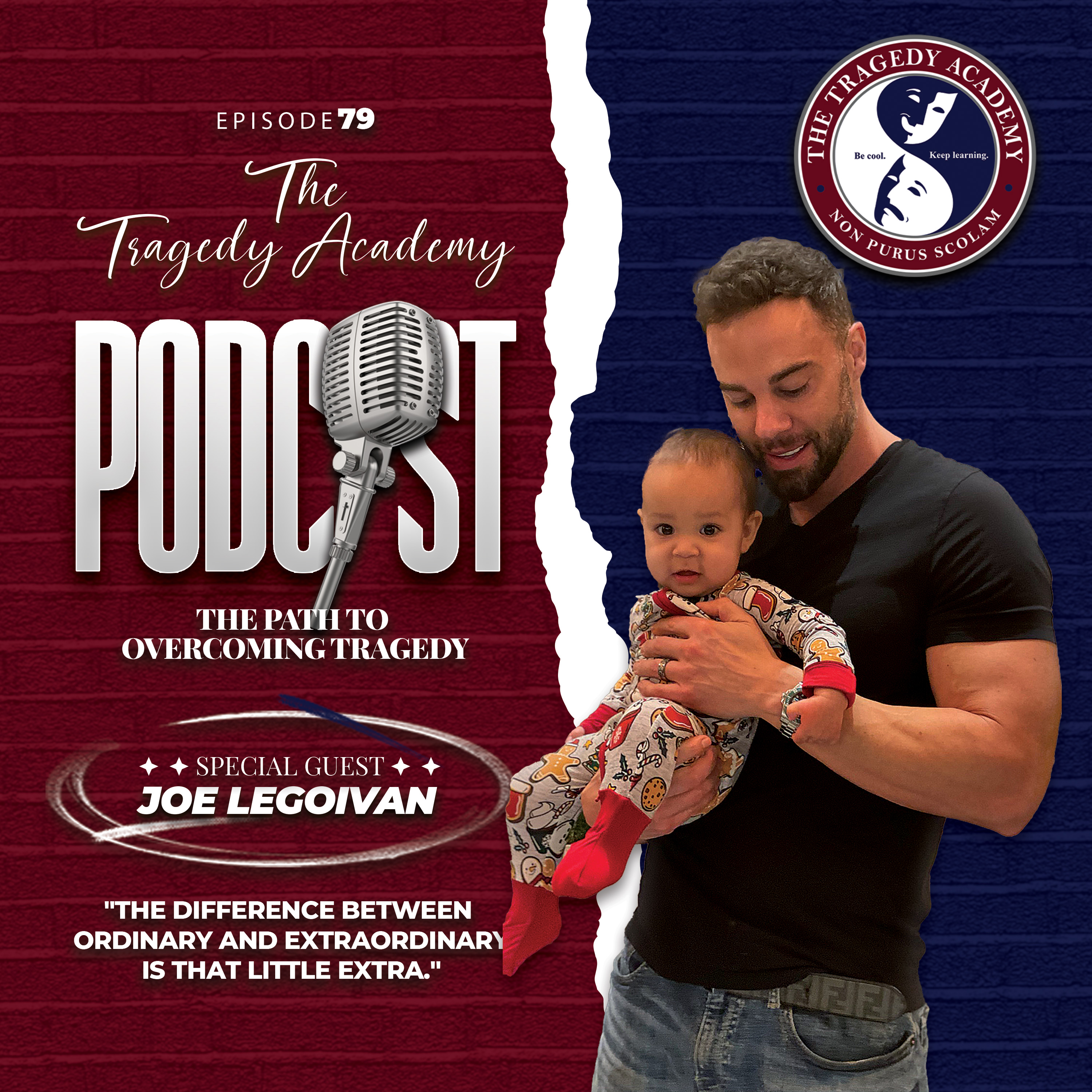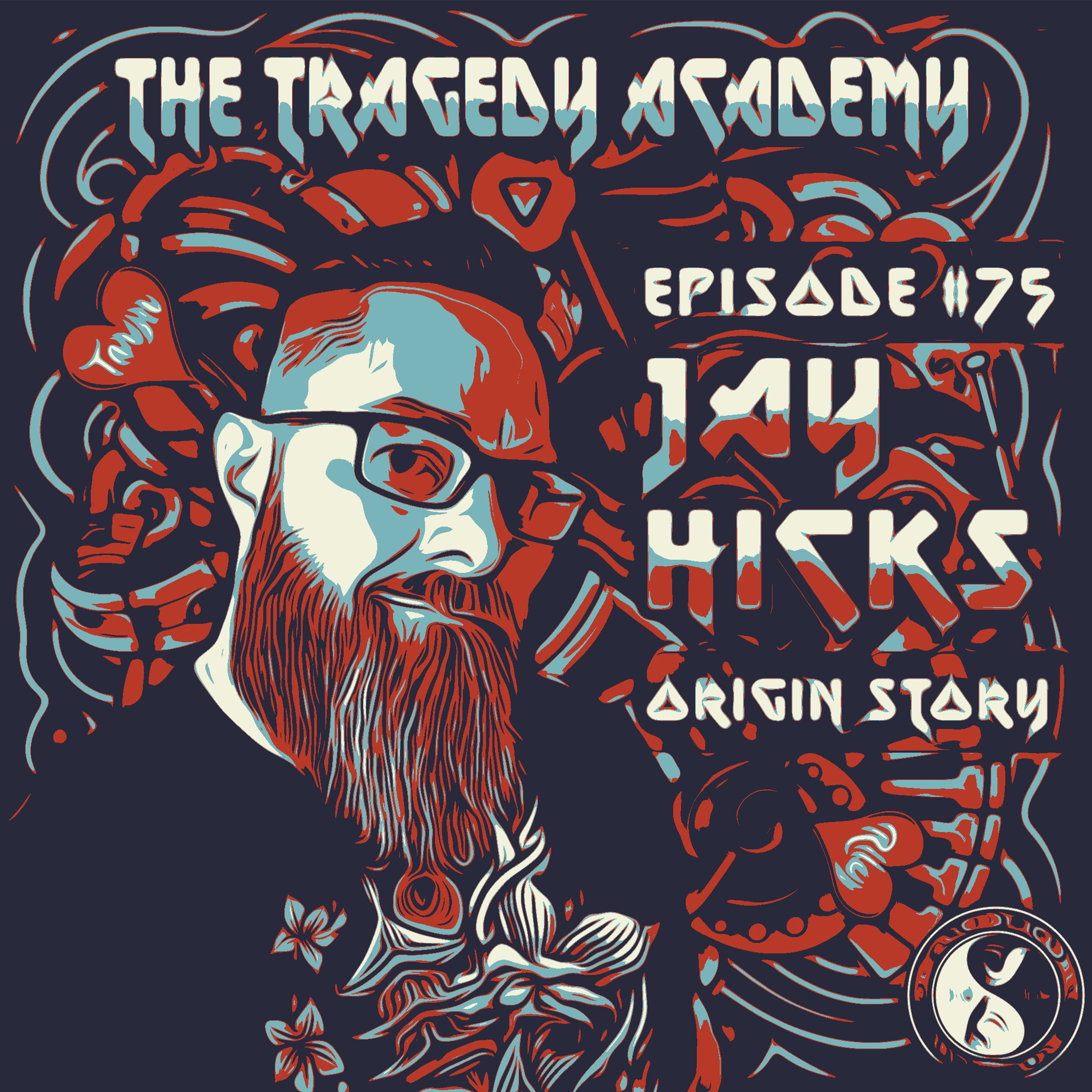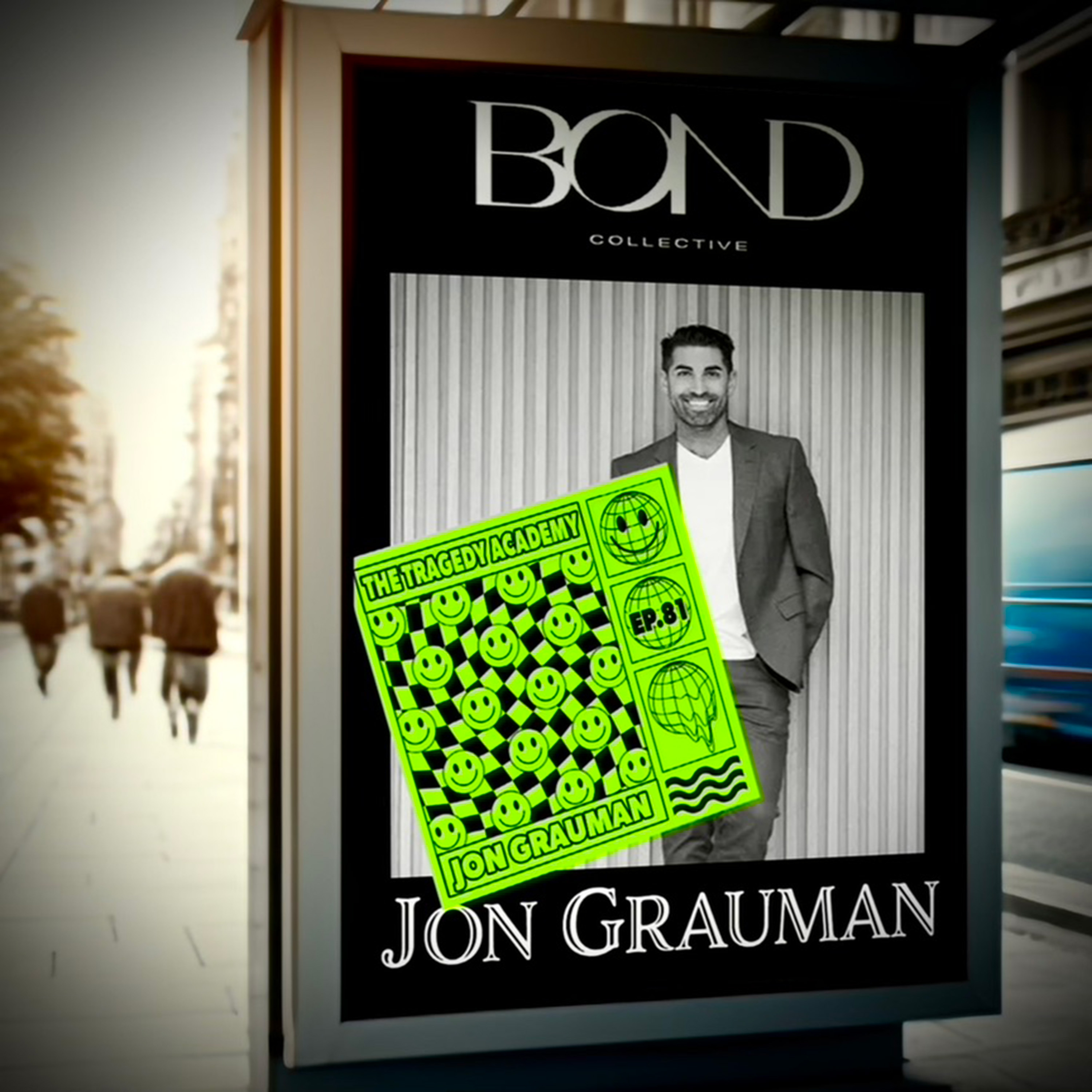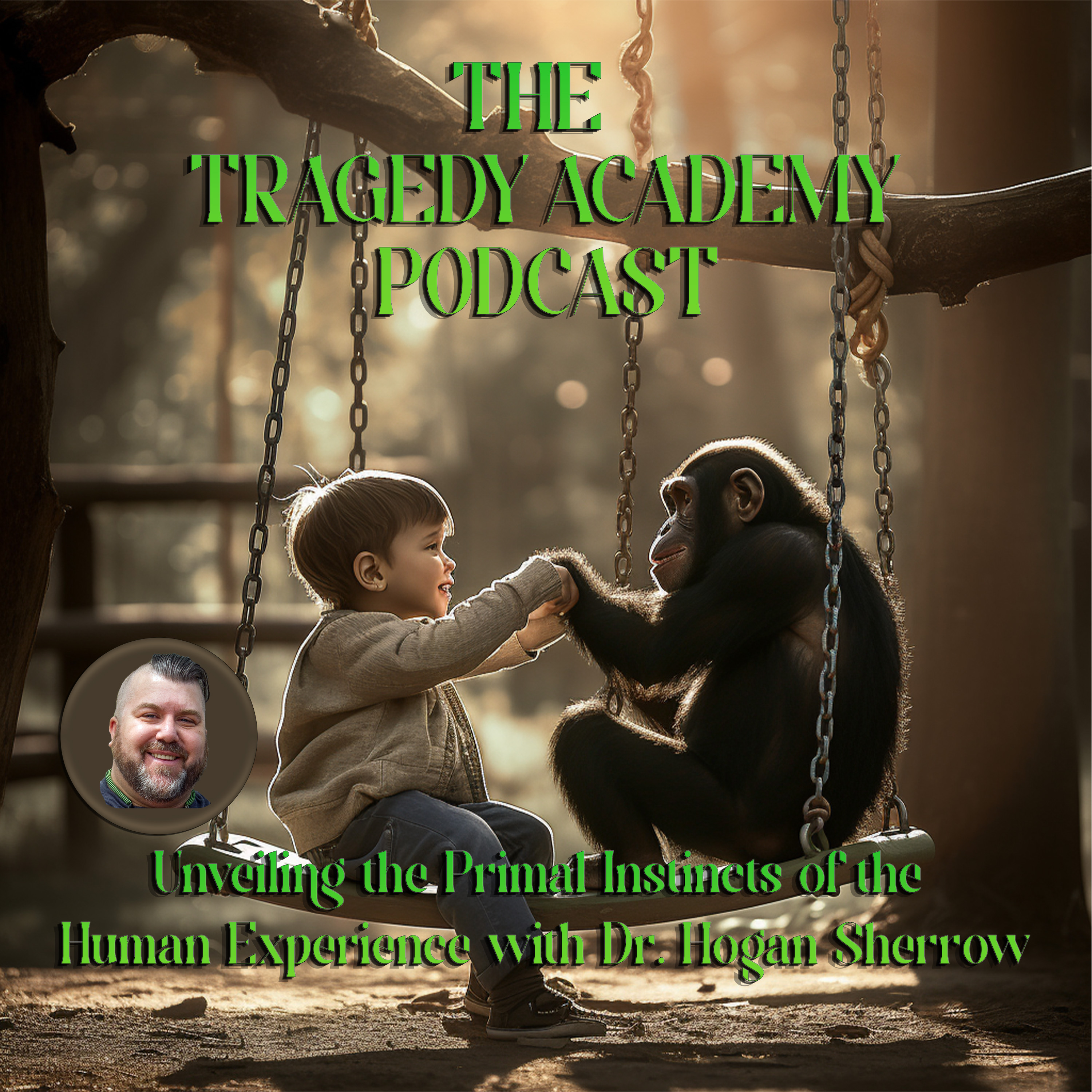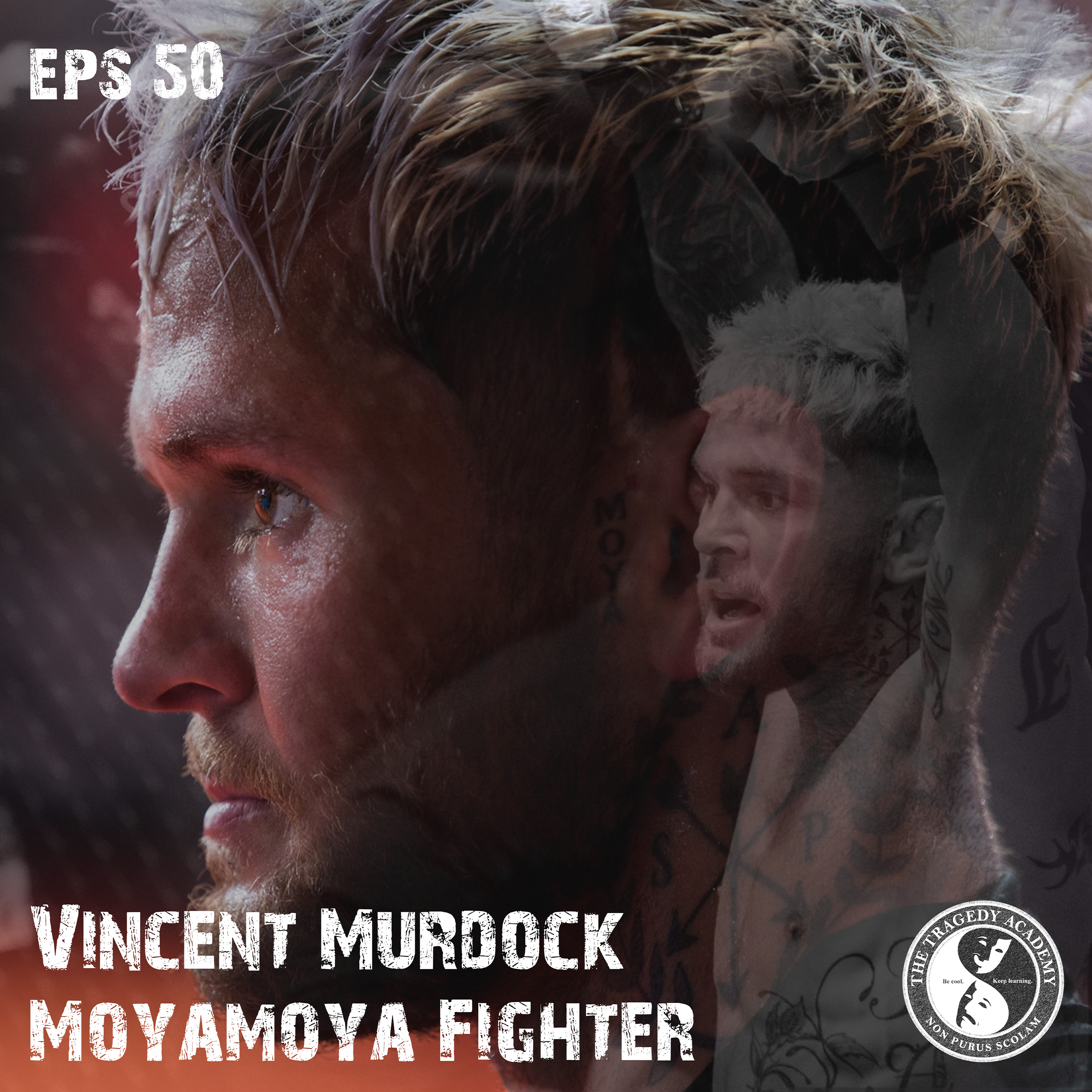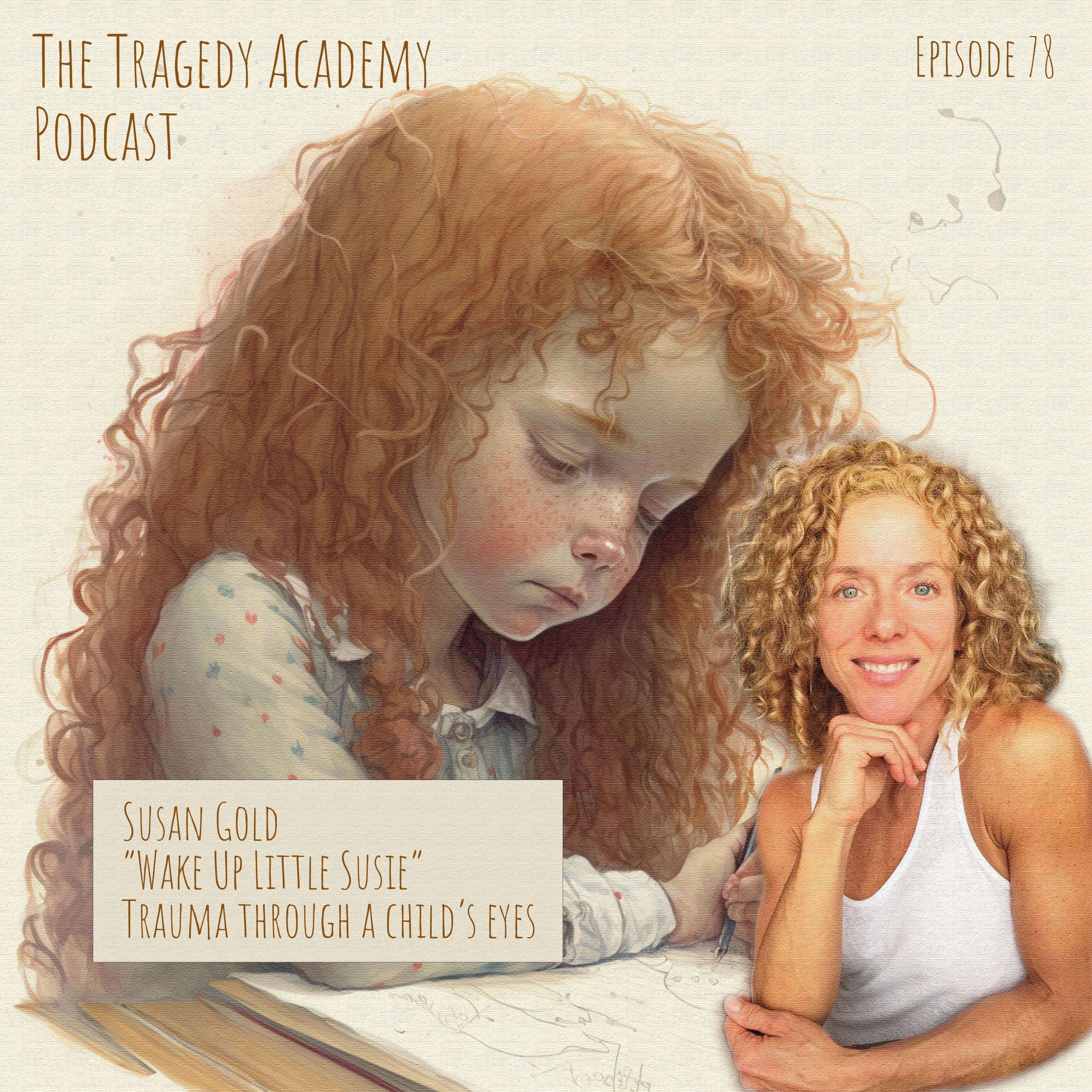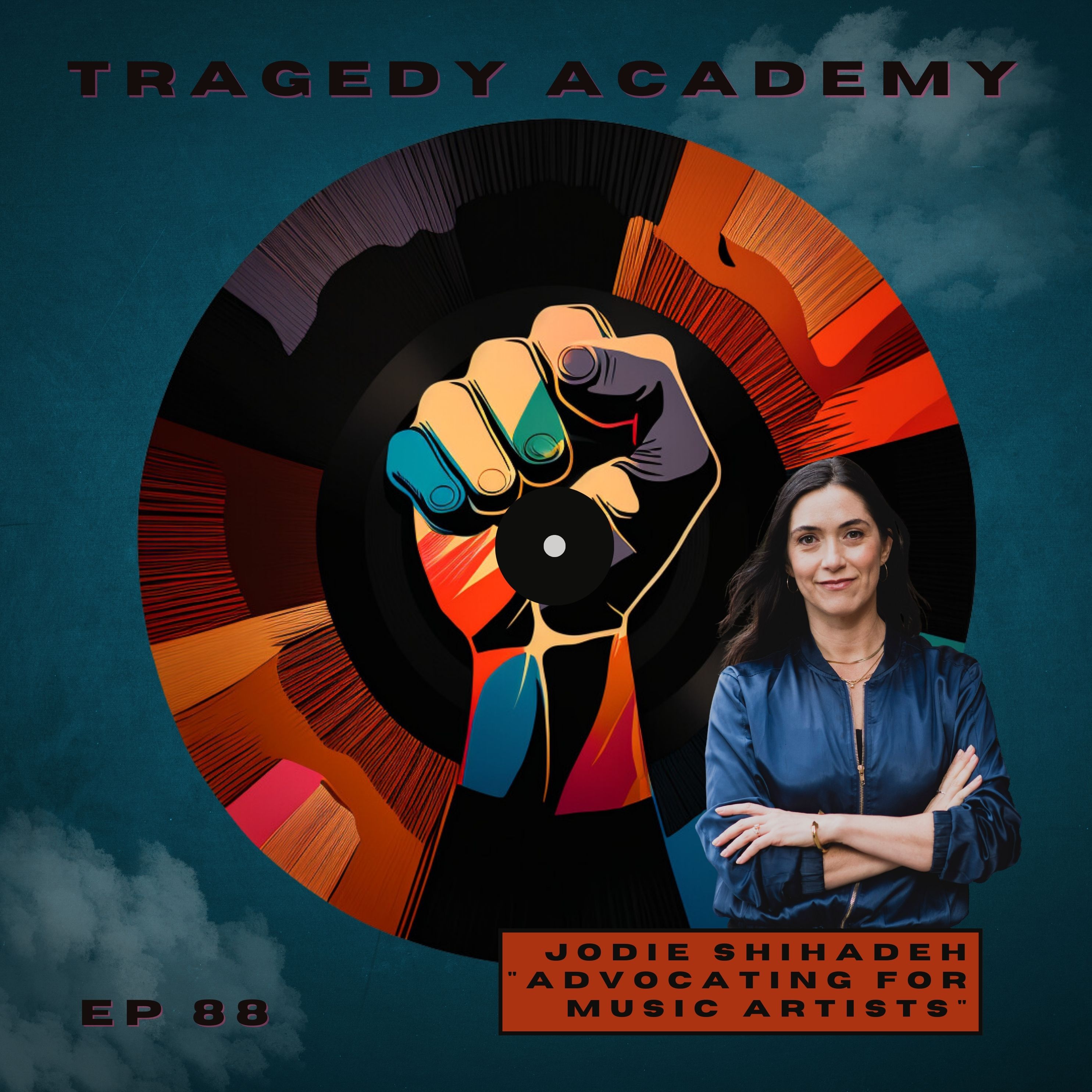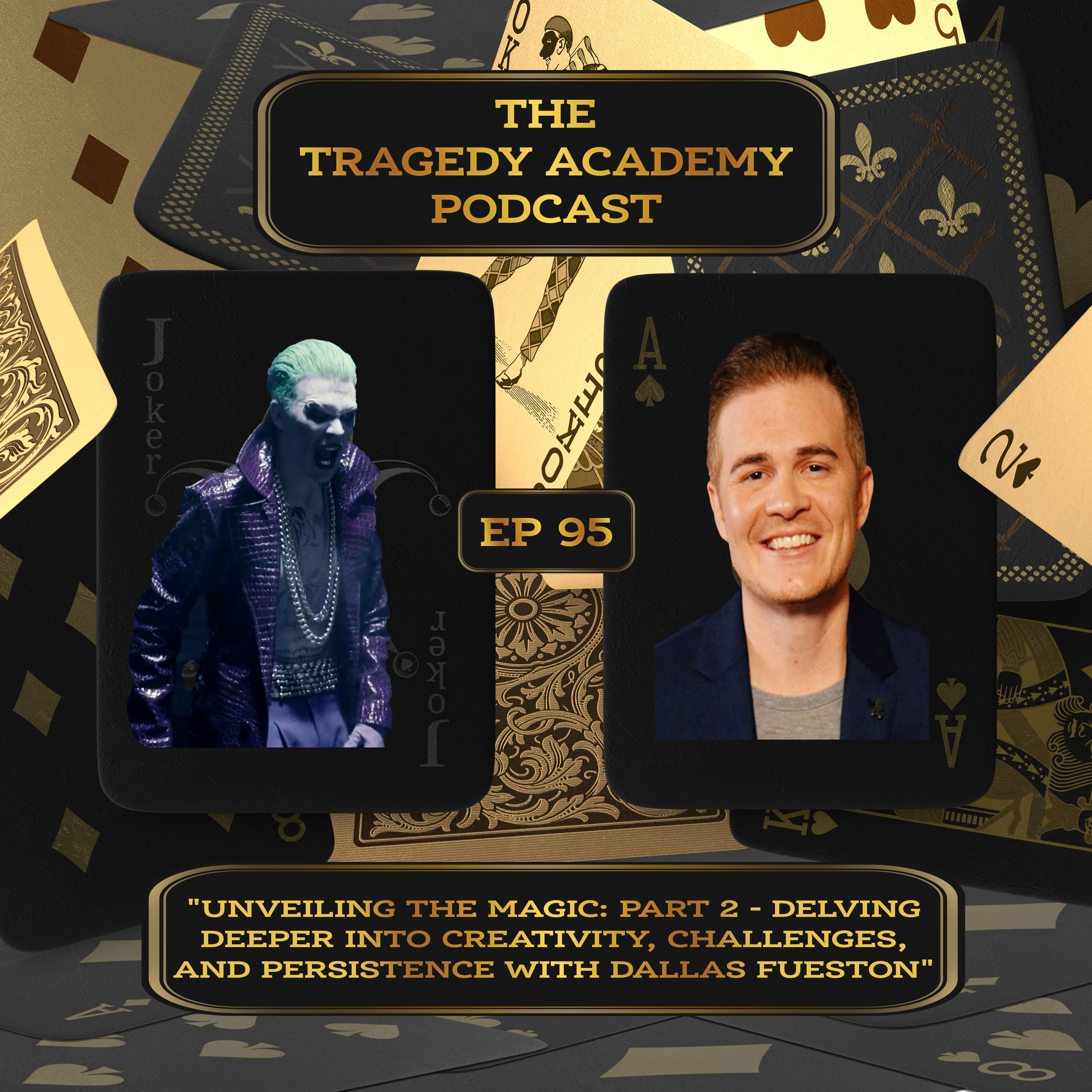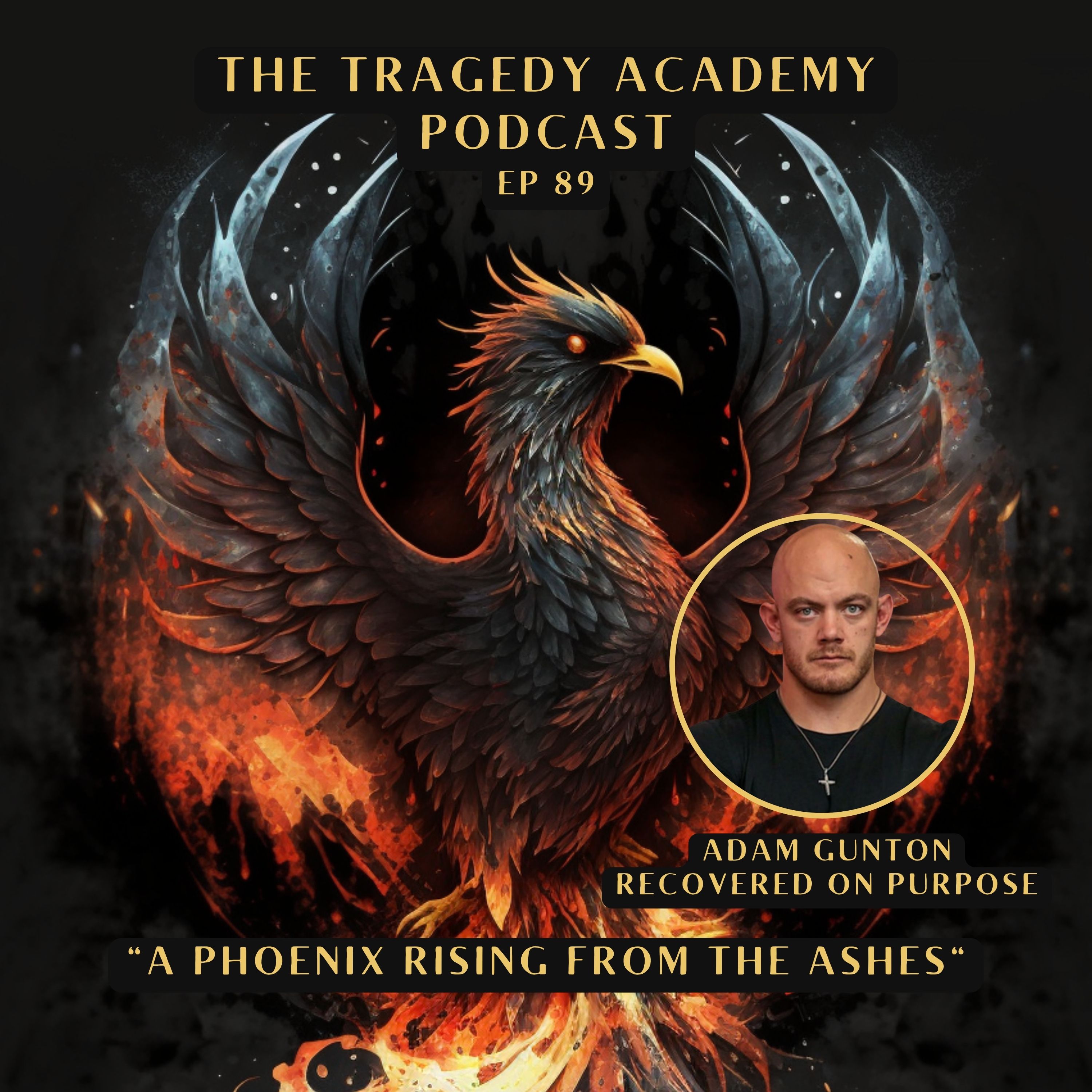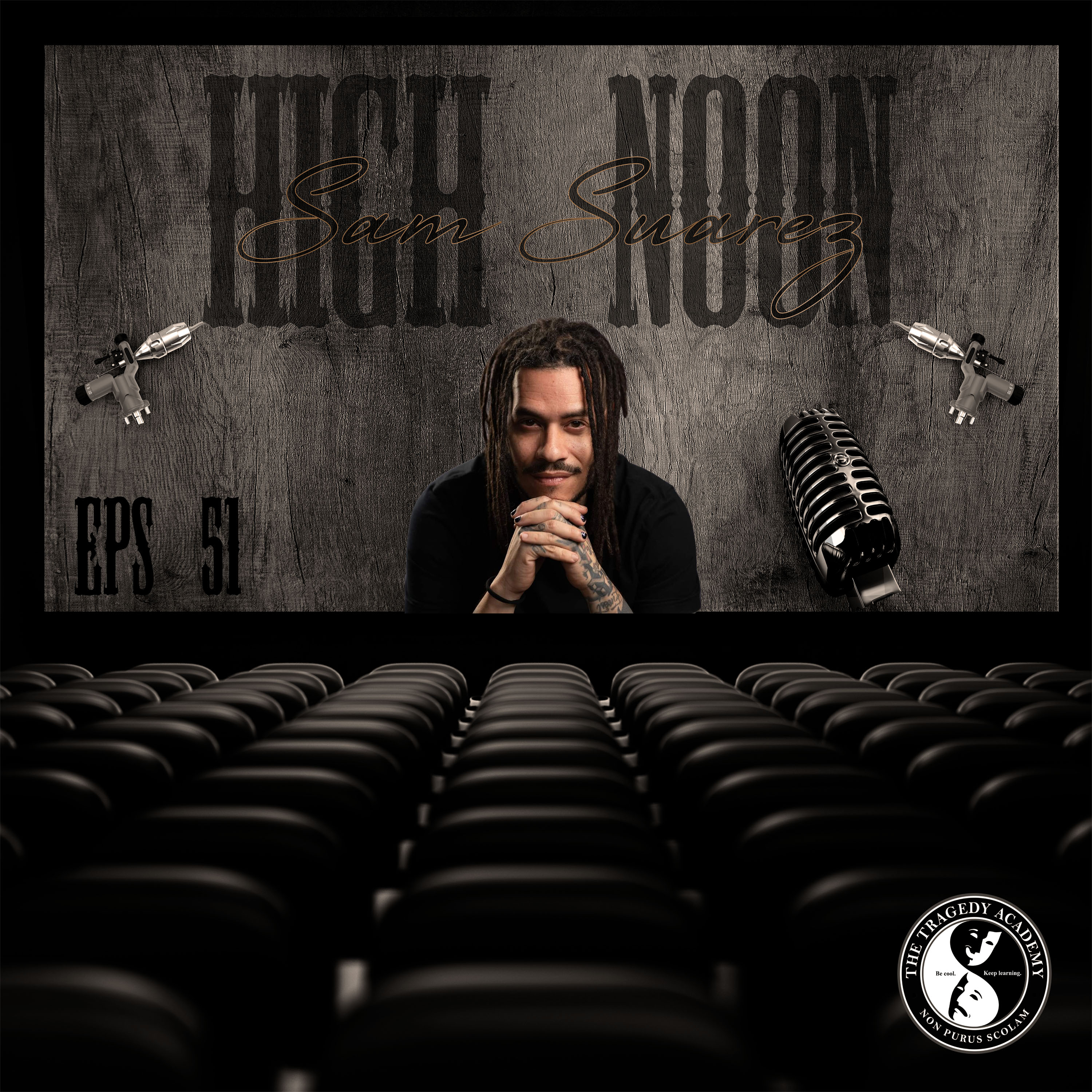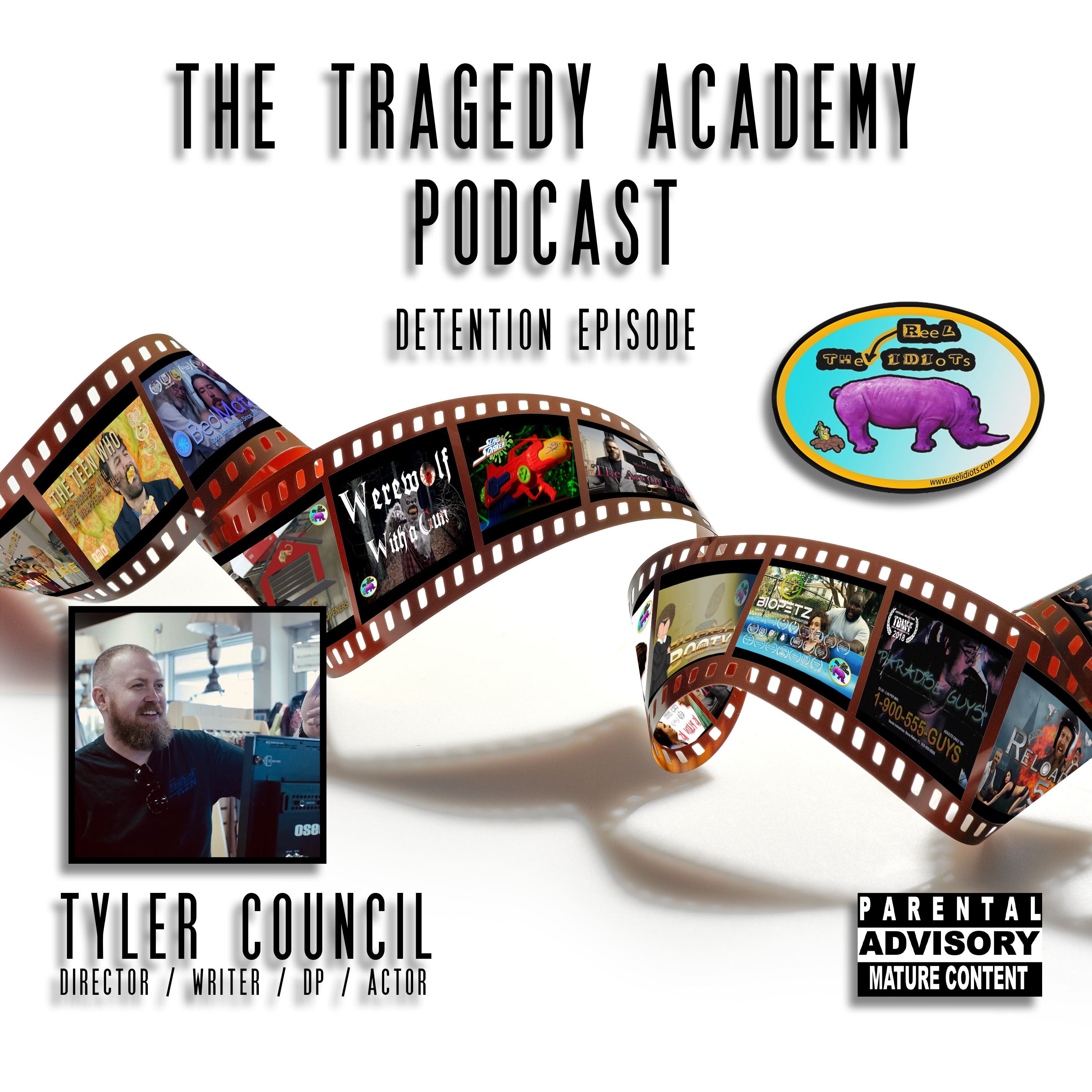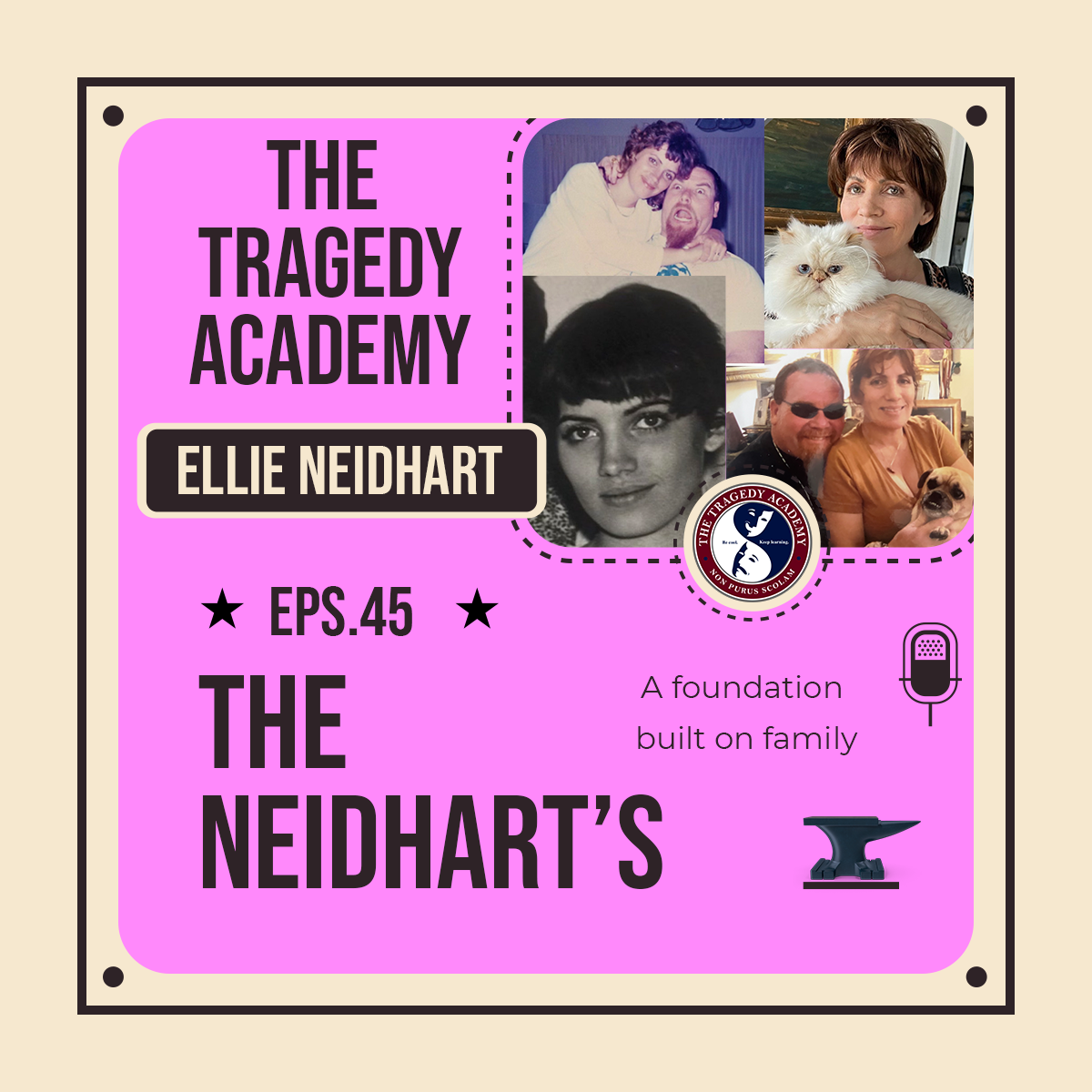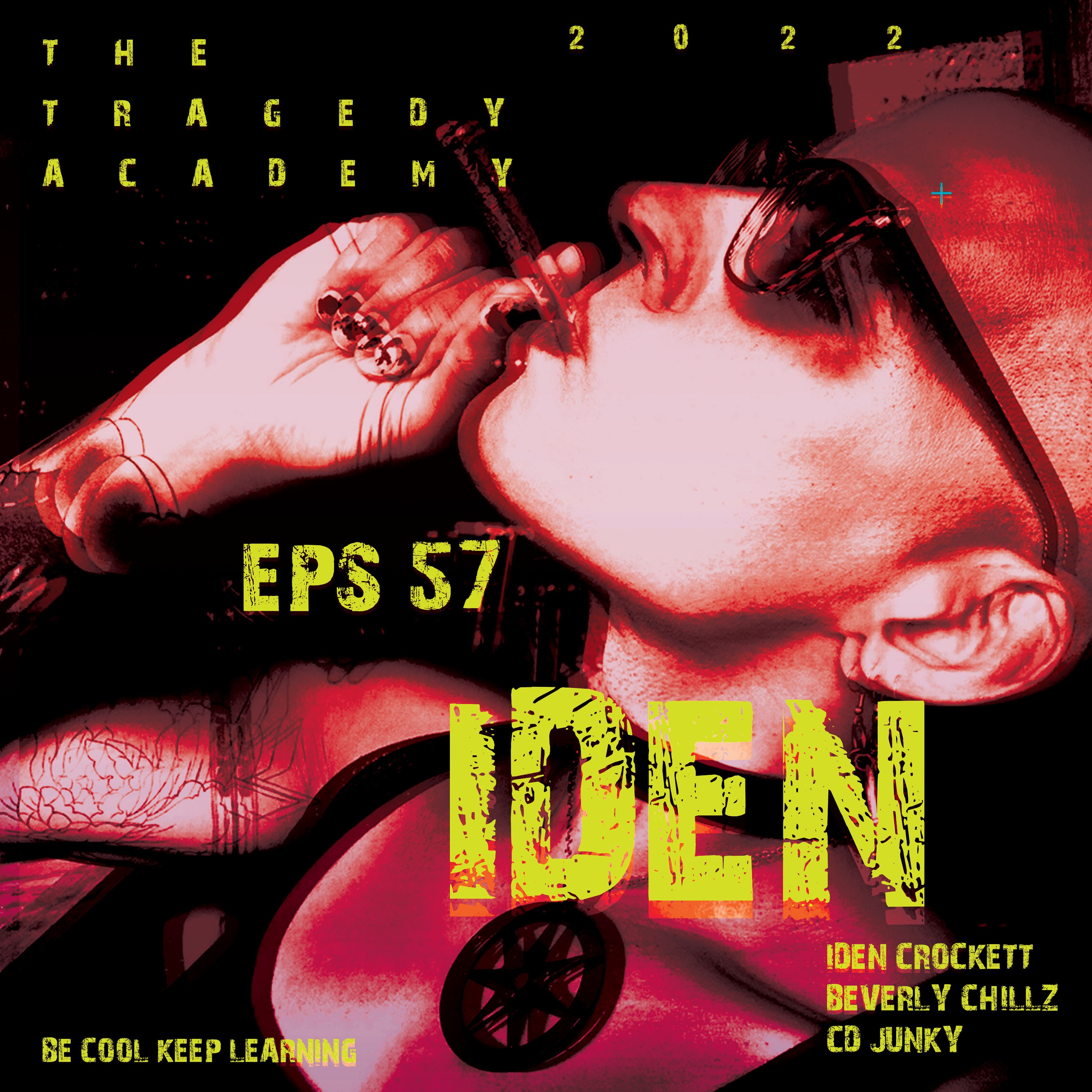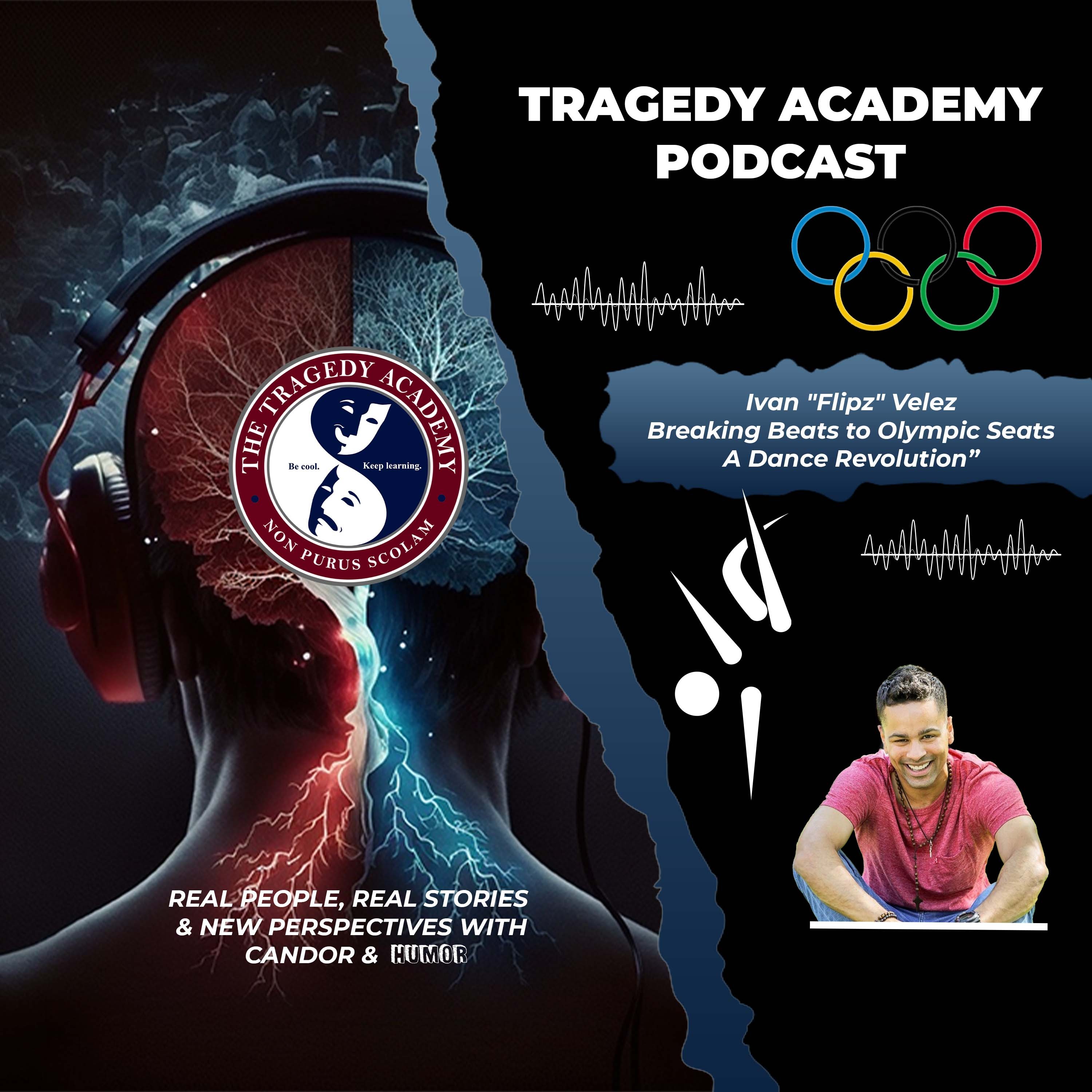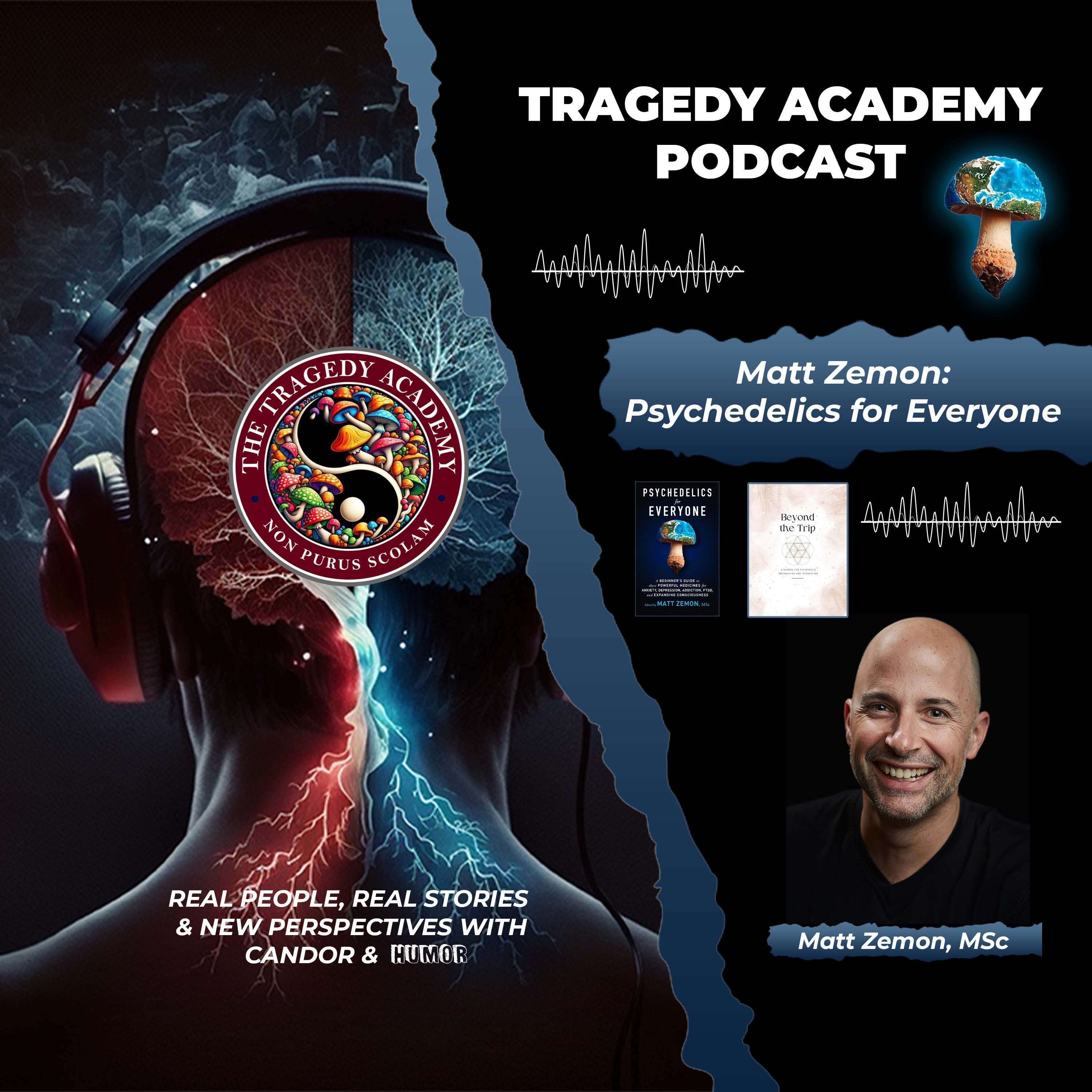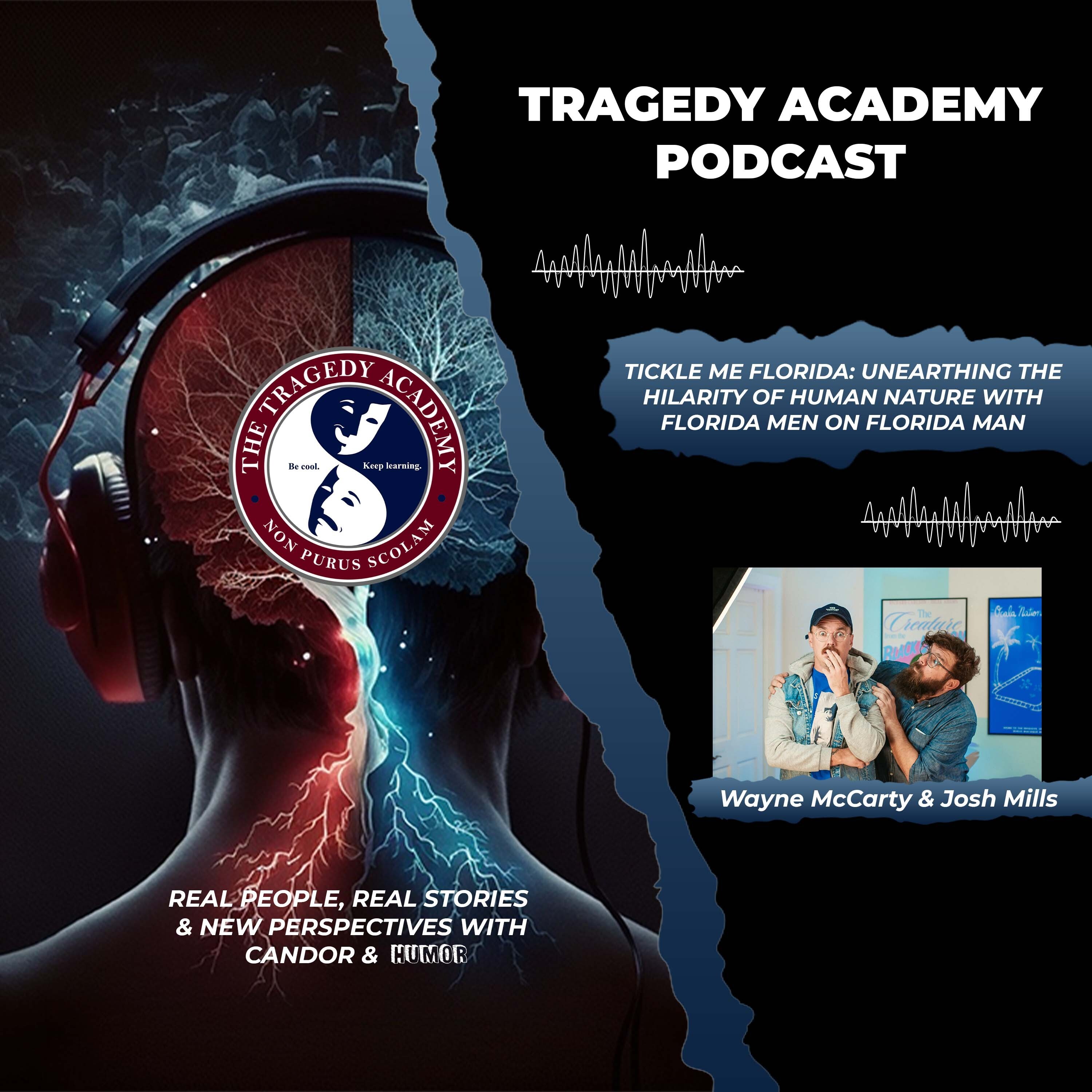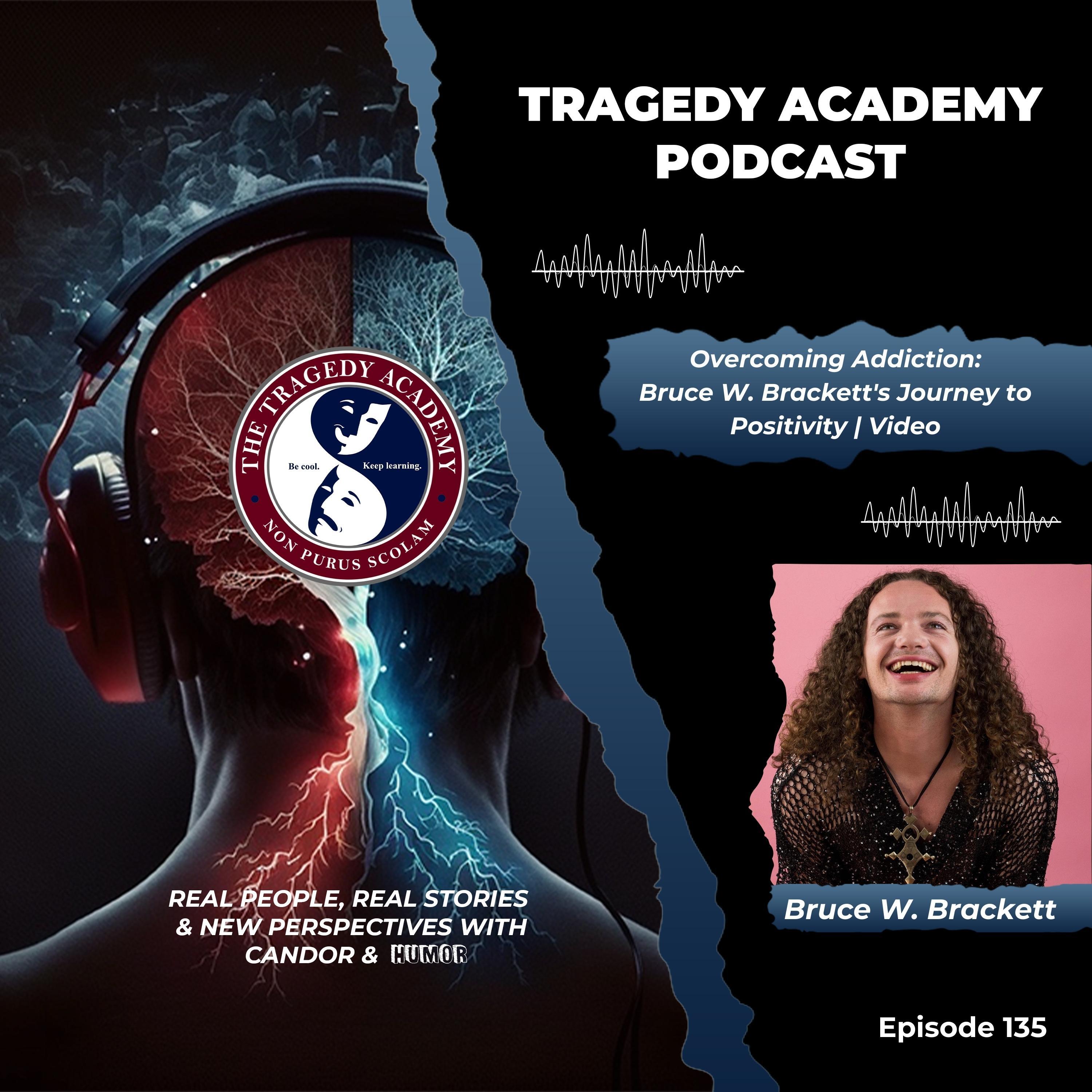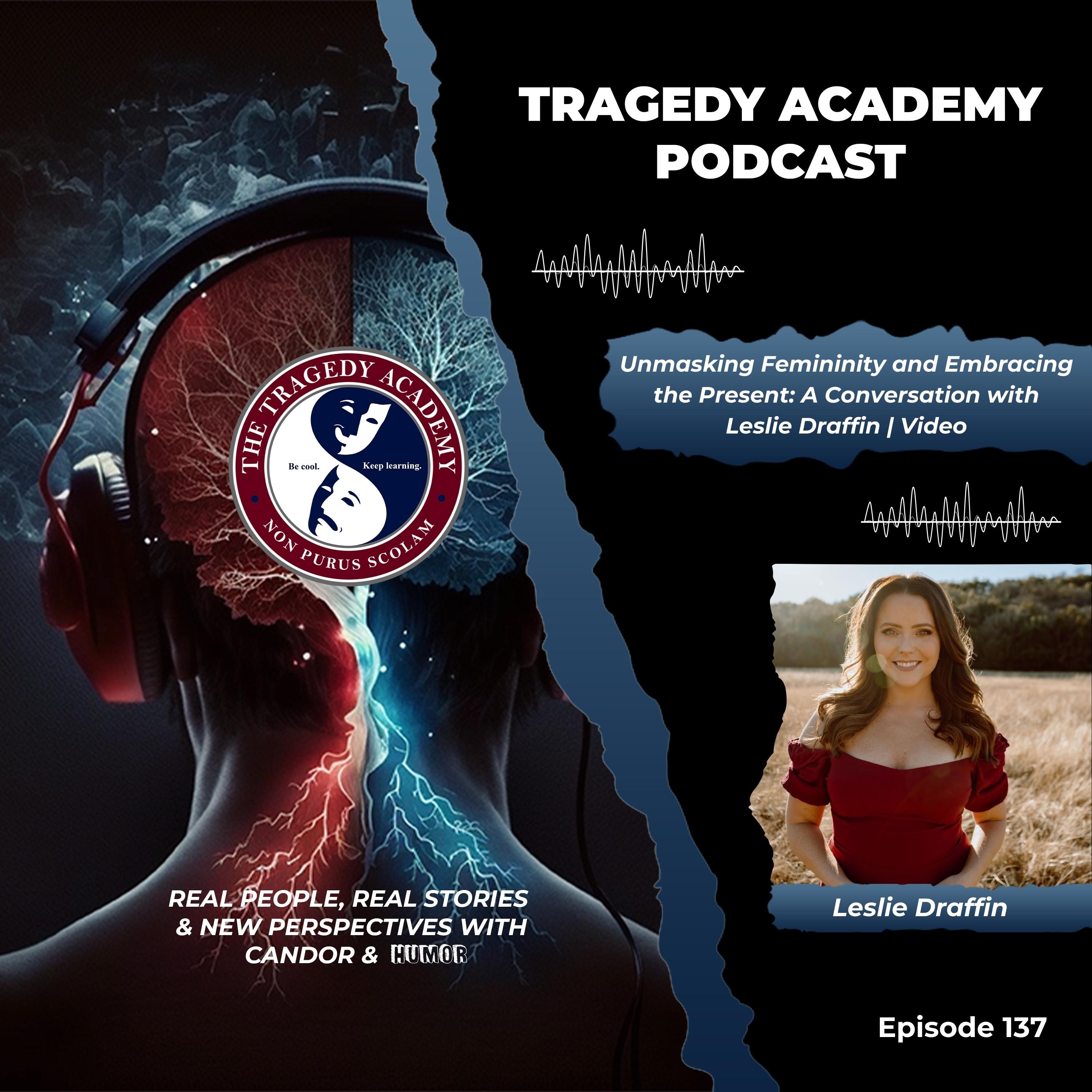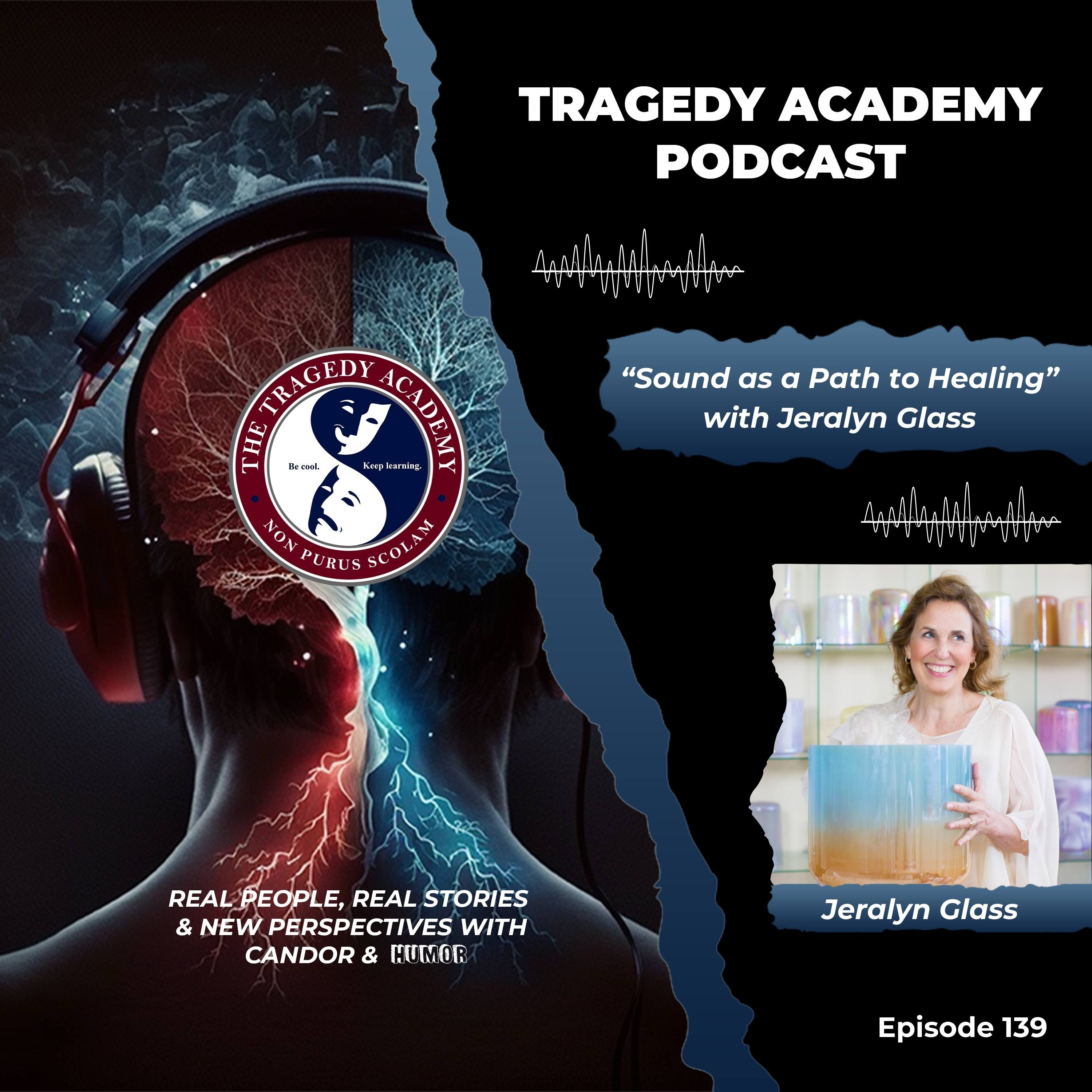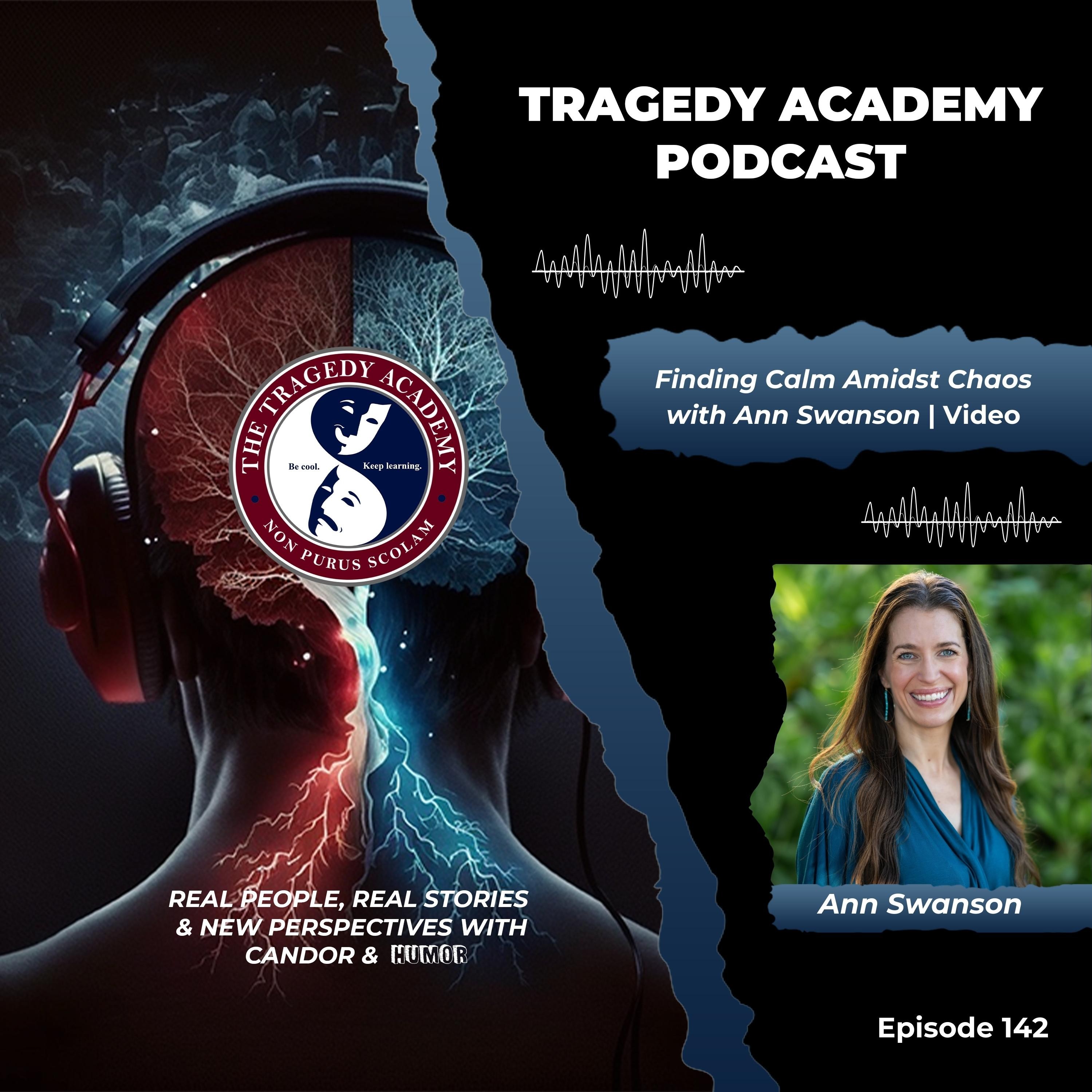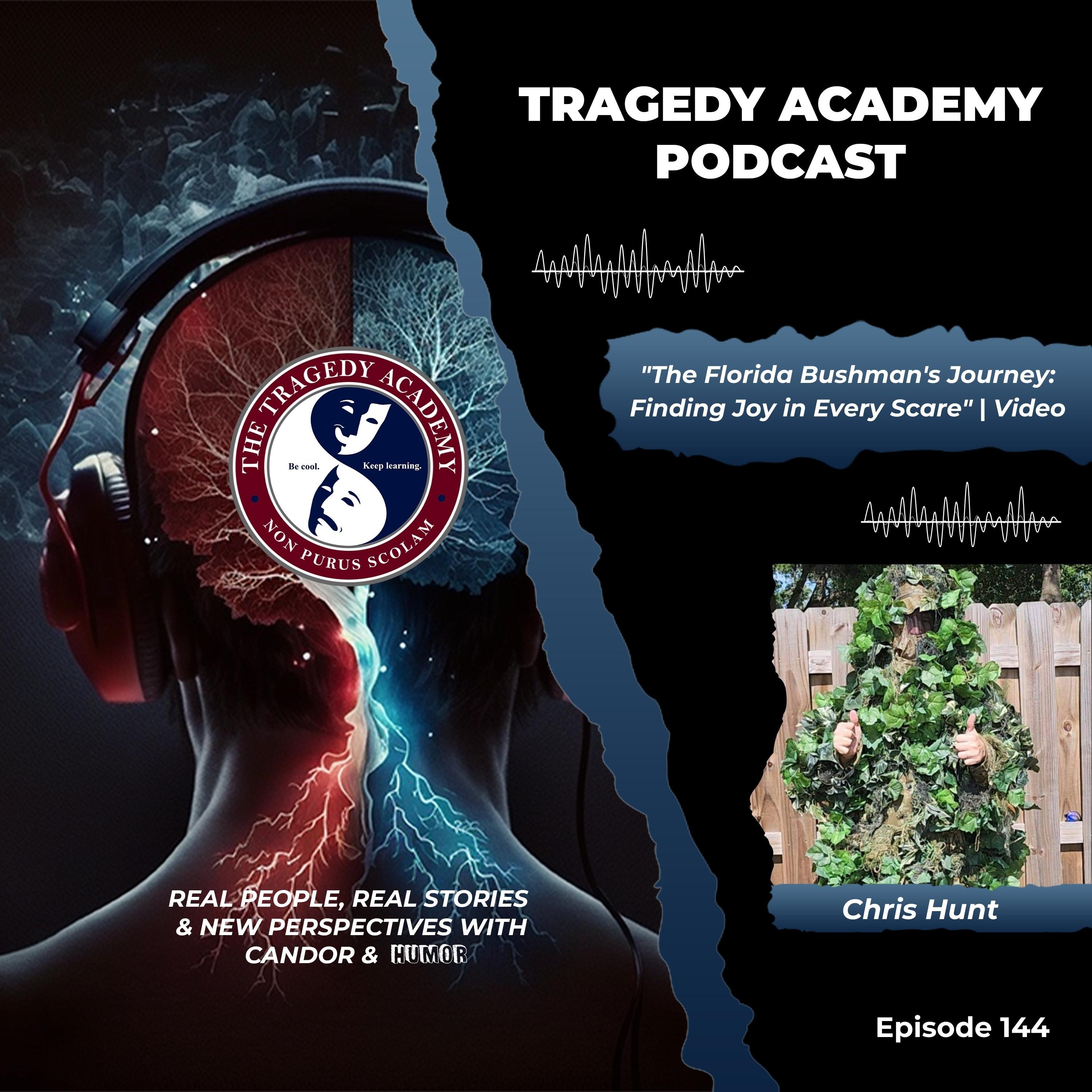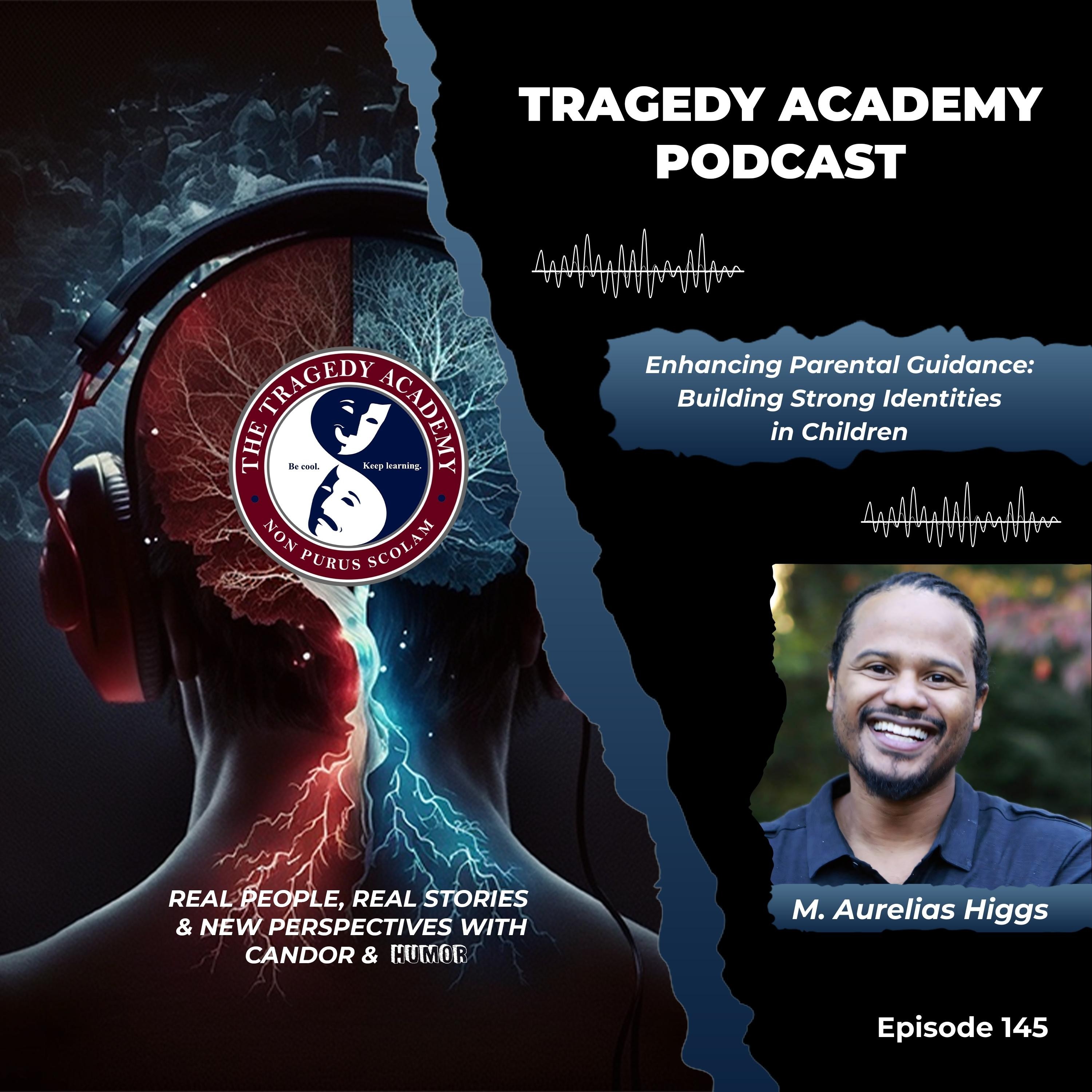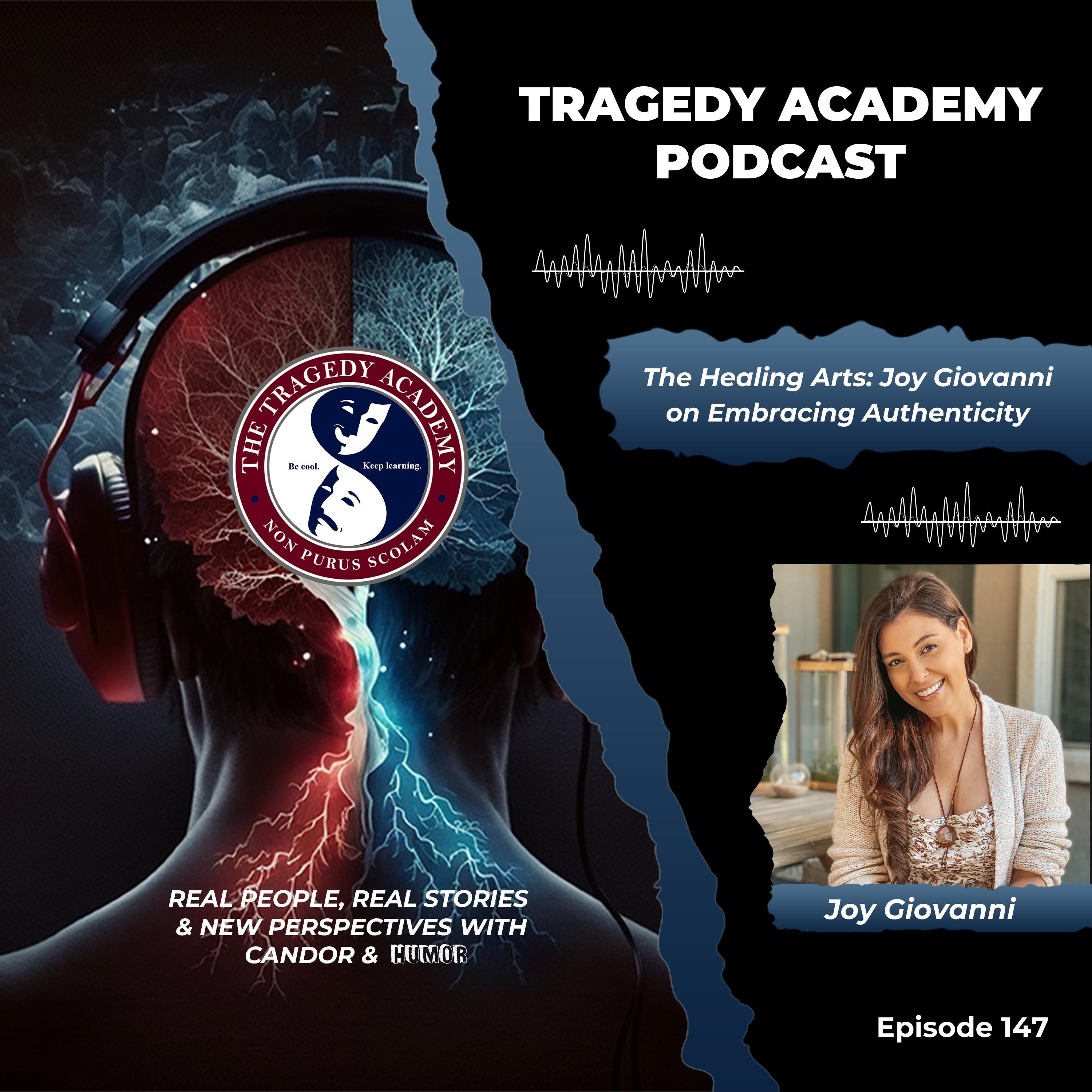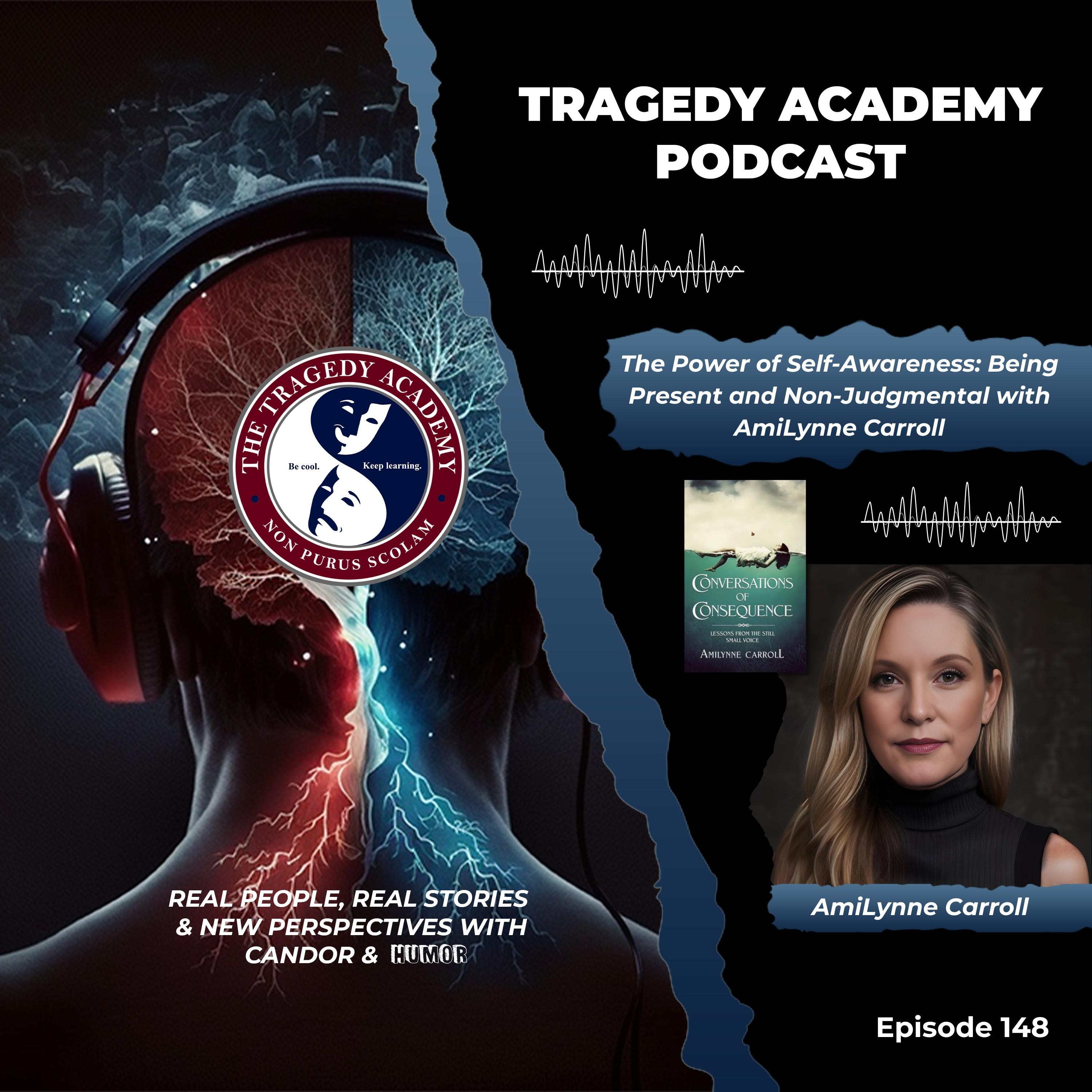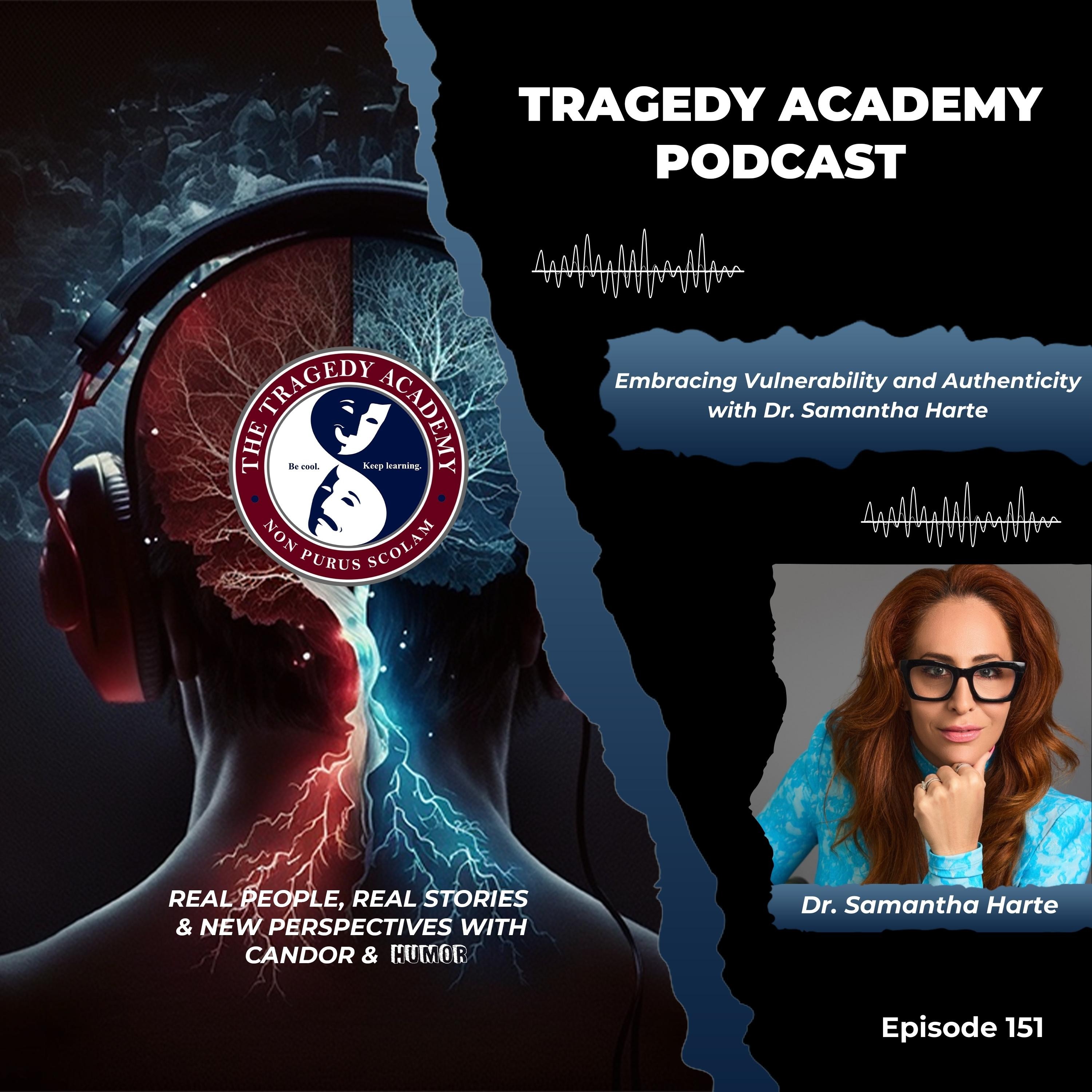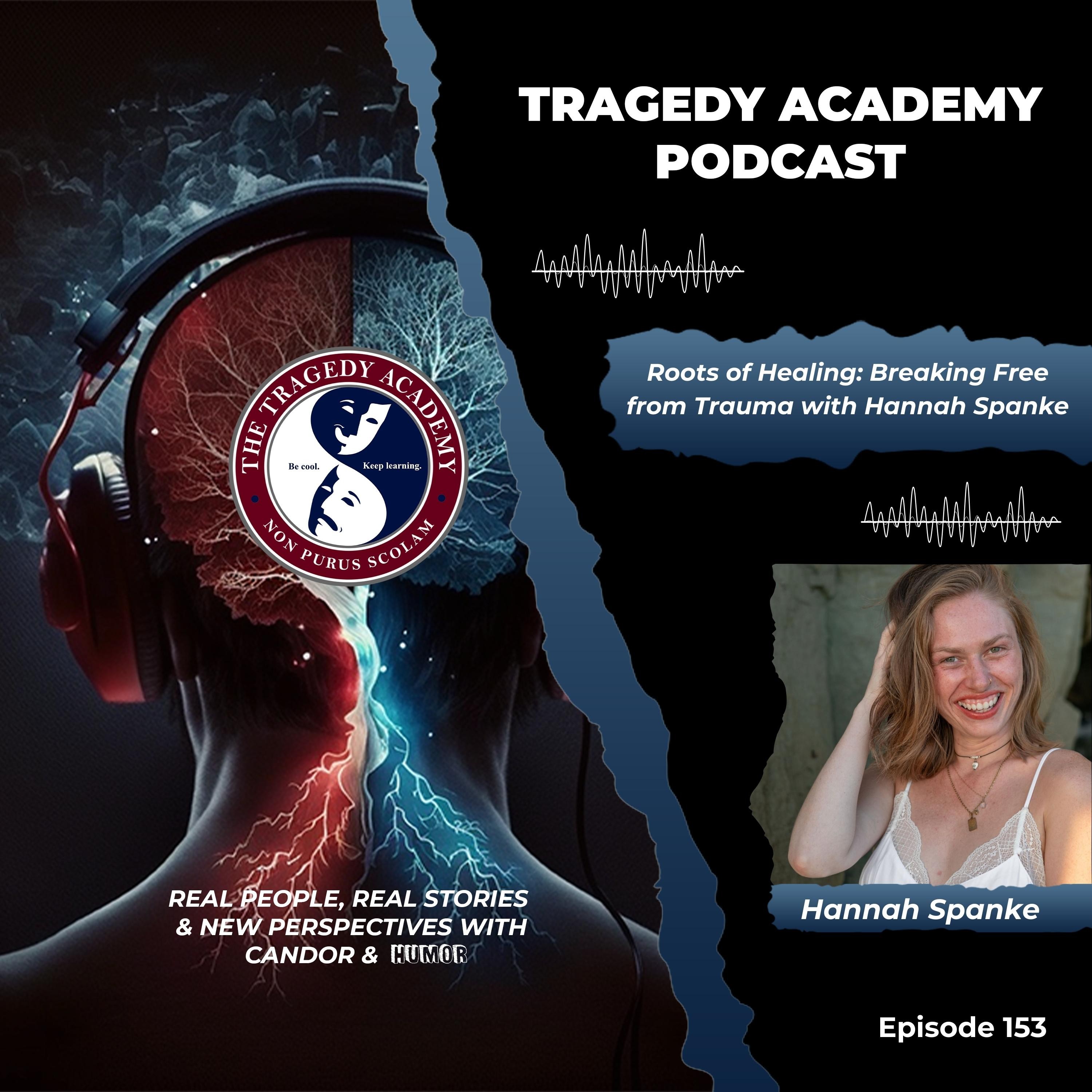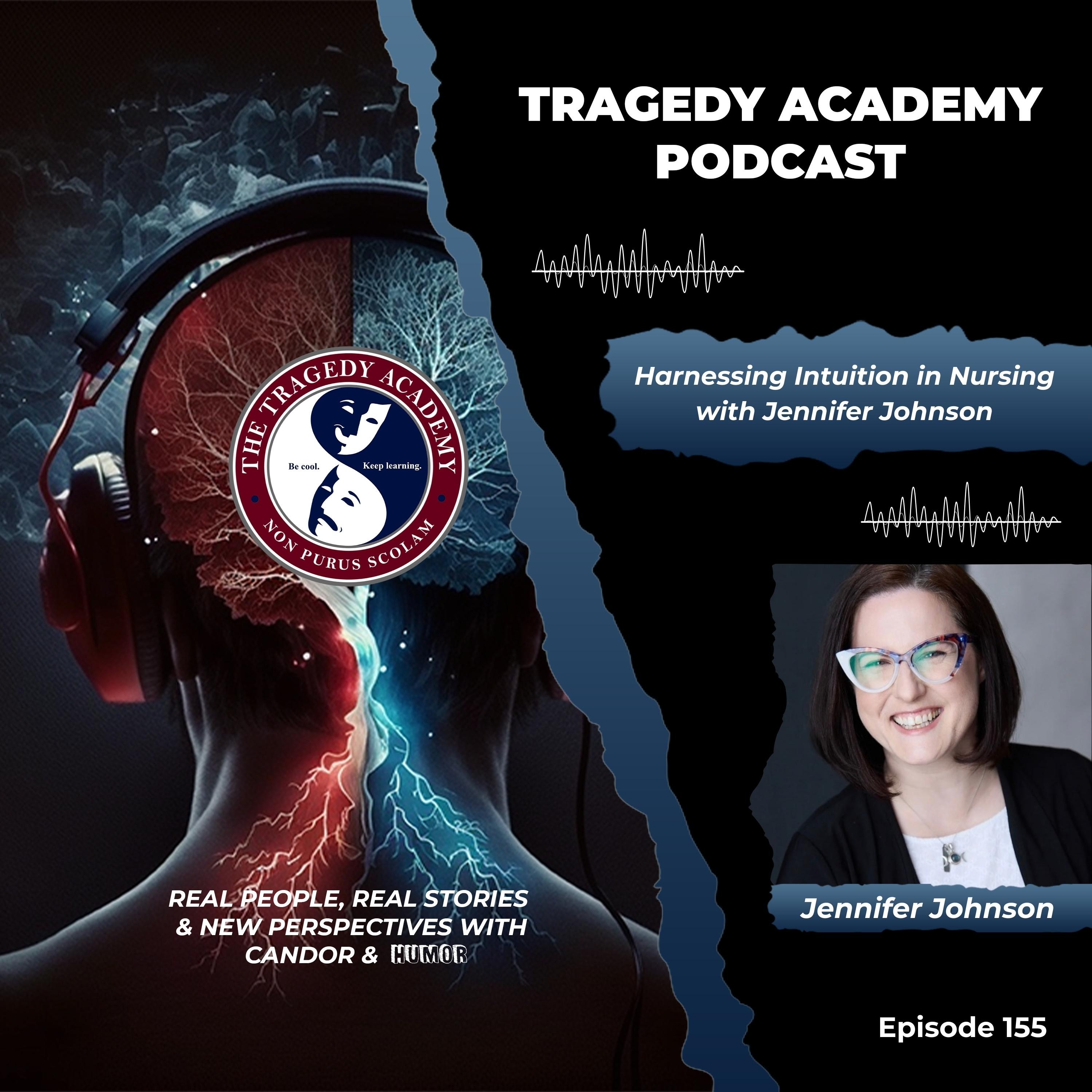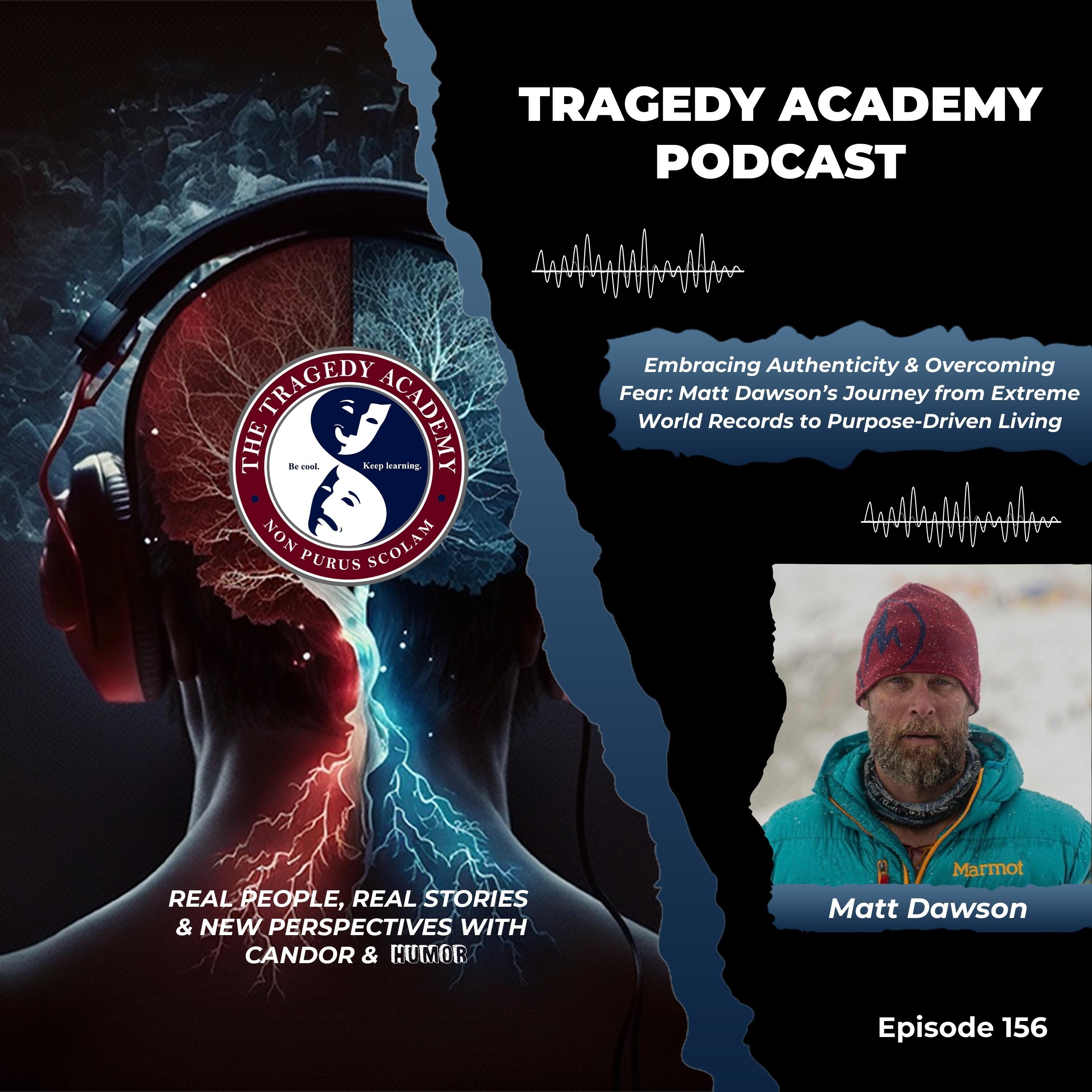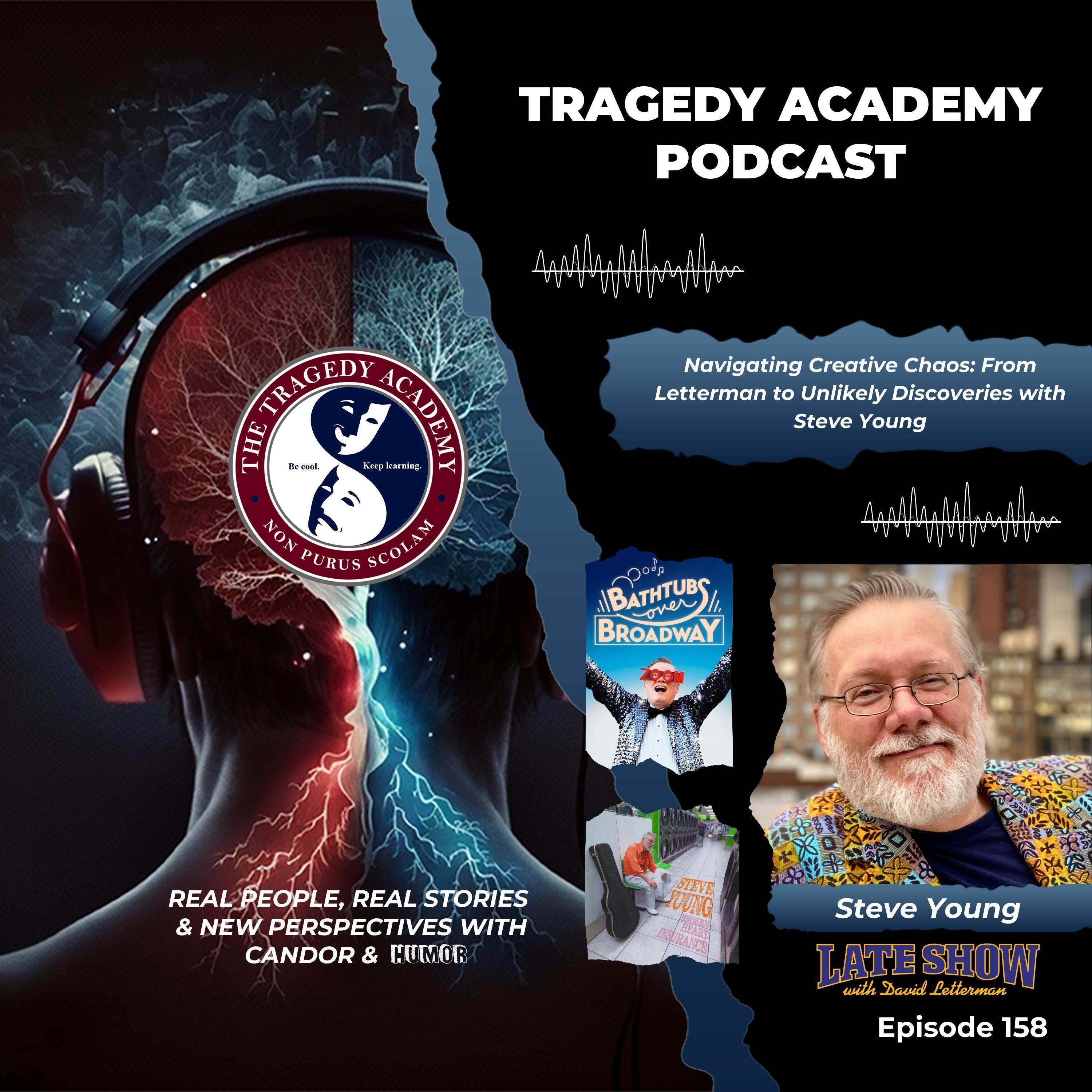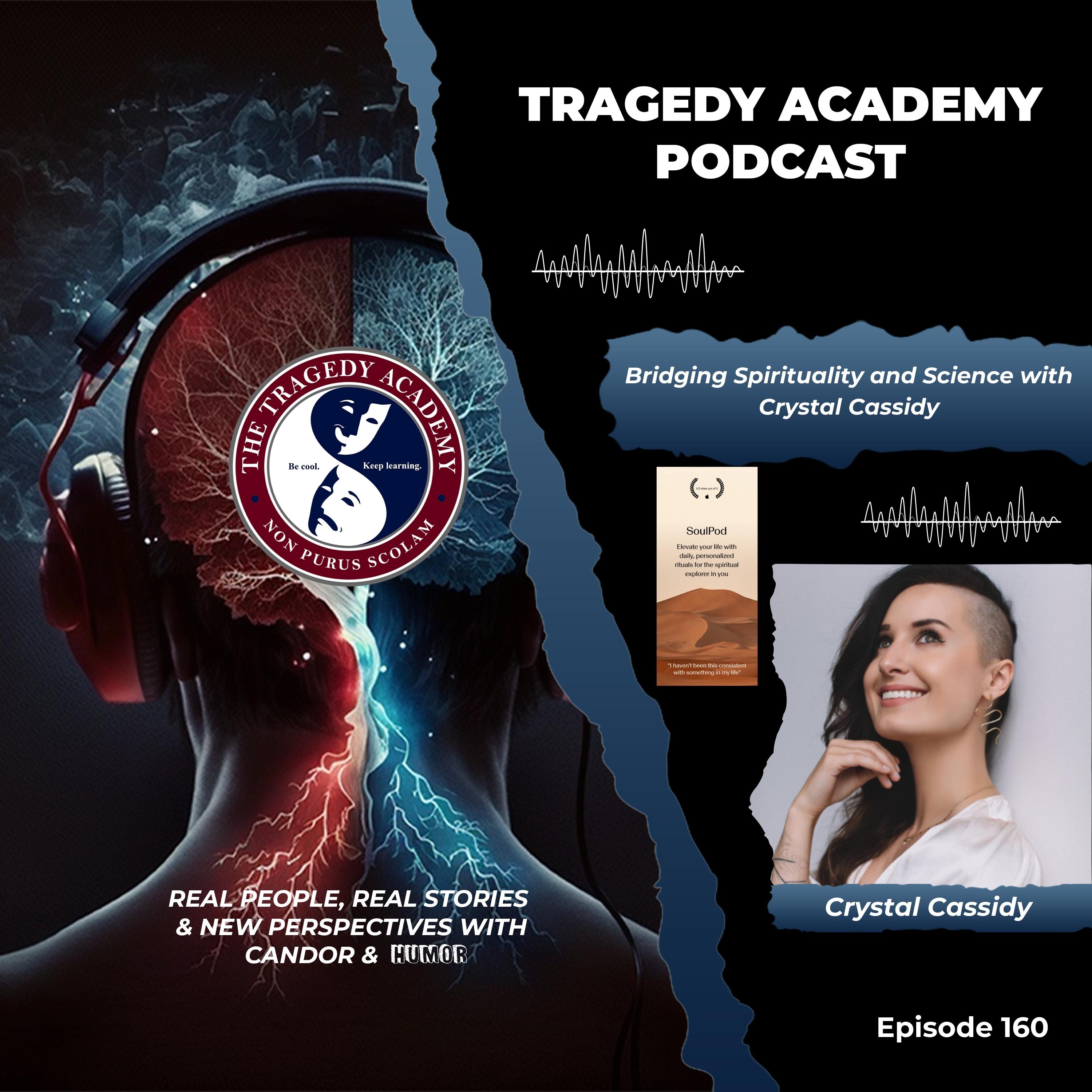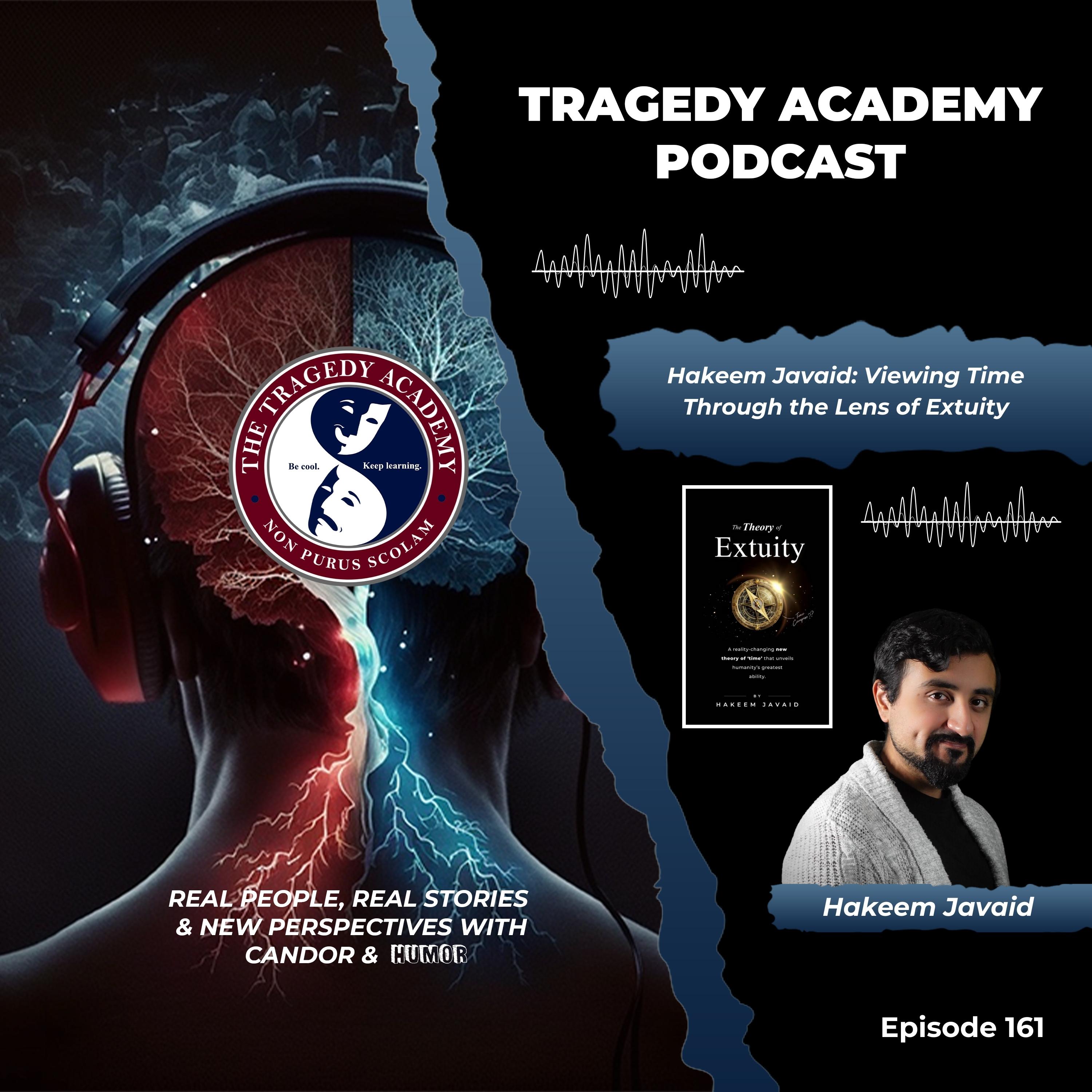Unveiling the Masks: An Exploration of Personal Authenticity with Jisun Sunny Fisher, Ph.D. | Video
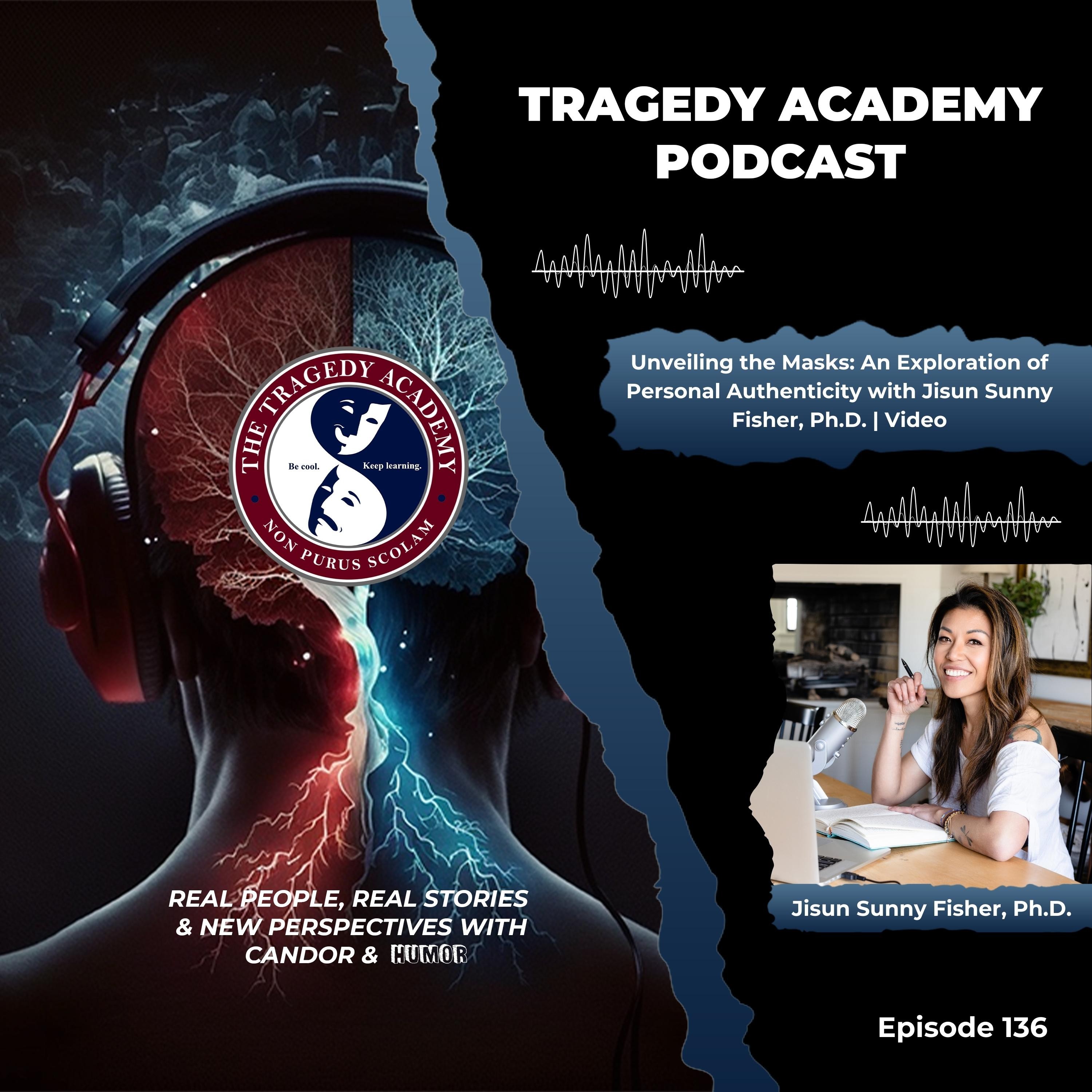
In this insightful episode, Jay and Gary welcome Dr. Jisun Sunny Fisher, a.k.a. Dr. J, for a deep dive into the intricate layers of the human psyche. They embark on a thought-provoking journey, exploring the concept of authenticity, the narratives that shape our behaviors, and how we can master our internal scripts to live life with purpose. 🎙️
Tune in as Jay, with his uncanny ability to dissect societal norms, and Gary, the King of Candor himself, together unravel the complexities of living true to oneself in a world brimming with preconceived notions and societal expectations. As they engage with Dr. Jisun Sunny Fisher, expect a symphony of philosophy, psychology, and a pinch of humor that stimulates an intellectual appetite for growth.
Listen to real-life analogies, science-backed explanations, and heartfelt discussions on breaking free from the chains of fear and self-doubt. Find out why Gary's skepticism of social constructs, Jay's disdain for surface-level existence, and Dr. J's profound insights on personal transformation can be the trigger you need to re-examine your life's direction. Their exchange will likely shake the foundations of your beliefs about personal limitations and societal benchmarks. With sharp wit and unfiltered truth, this episode is poised to change your perspective on life's most daunting masks. Take advantage of this revelatory session that promises to arm you with the tools for self-rediscovery and offer you a loving nudge toward a path of self-fulfillment. 🌟
Key Takeaways:
- 🎭 Rediscovering one’s passion during periods of isolation, as Jay recounts his enlightenment experience during COVID-induced solitude.
- 🔄 Unraveling the complexities and perceived futility of job titles and societal roles, as humorously lamented by Gary.
- ✨ The essence of "flow" and being present in the moment – a profound discussion sparked by Dr. J as they delve into the power of channeling one's inherent talents.
- 🕊️ Jay and Dr. J discuss philosophical views on life, existence, and the spirit, the art of living beyond the "avatar" we present to the world.
- 🗺️ Dr. J emphasizes the need to update our mental maps of life’s journey, suggesting that many of us might be navigating life using outdated scripts.
Guest Bio: Dr. Jisun Sunny Fisher is the lighthouse for those adrift at sea in the vast ocean of their subconscious. Her academic prowess, seeded at the illustrious Columbia University and blossoming at the University of Connecticut, is a testament to her commitment to opening minds. As a licensed psychologist, she deftly combines her scientific background with her certifications in Positive Psychology, Neuro-Linguistic Programming (NLP), and Hypnosis to guide others through their inner labyrinths. Her book, "The Bodhi Blueprint," is not just literature – it's a manifesto for those seeking a renaissance of the soul, enabling them to turn once crippling fears into formidable strength. With a presence featured across revered platforms such as Yahoo! Life and Thrive Global, Dr. J continues cultivating mental spaces where unshakeable confidence is an aspiration and an achievable reality.
Are you eager to liberate yourself from life’s daunting confines? Let Dr. J be your guide through her transformative teachings. Visit [Insert Dr. J's Website] for a compass to navigate your way to enlightenment, or delve into her book, "The Bodhi Blueprint," for a structured path to mastering your destiny. Follow Dr. J on social media to keep up with her latest undertakings that are changing lives and challenging norms. Let her journey inspire you, her words refuel you, and her wisdom reshape your world. 🧭💡
This episode encapsulates a profound exploration of authenticity, an oasis for inquisitive minds seeking respite from the mundane. The Tragedy Academy Podcast remains your weekly beacon of introspection, inviting you for another stimulating dose of reality, humor, and wisdom next week. Remember, wherever your journey takes you, “Be cool and keep learning." 👋🎓
🚀 Welcome to The Tragedy Academy Podcast 🚀
Immerse yourself in the transformative power of The Tragedy Academy Podcast, an extraordinary platform showcasing stories of resilience and redemption. As we unravel the rich tapestry of human experiences, our episodes meld wisdom with wit, enlightening and entertaining. Hosted with profound empathy, we delve into the indomitable spirit of our guests, providing our audience with opportunities to gain insights, share laughter, and experience growth. Become a part of our community that values genuine connections and collective healing through the strength of shared narratives.
📲 Connect with Us!
Explore more about The Tragedy Academy: https://www.thetragedyacademy.com
🌟 Support and Grow With Us 🌟
🎧 Podcasting Made Easy: Build your stunning podcast website with Podpage:
Podpage: https://bit.ly/3LSCBh5.
📲Take your recording to the next level with Riverside.fm
Riverside.FM: https://bit.ly/3ImjNWD
👕 Get the Gear Loved Jay's t-shirt from the latest episode? Grab yours at Into the AM.
Into the AM: https://bit.ly/431MLD5.
📘 Expand Your Mind Dive into our recommended reads at our Bookshop.
Bookshop: https://bit.ly/42pPHcv.
✅ Stay Updated – Subscribe! Subscribe to our YouTube Channel and never miss an episode.
📱 Follow Us on Social Media
- Instagram: @thetragedyacademypodcast
- Facebook:@TheTragedyAcademyPodcast
- Twitter: @Tragedy_Academy
- TikTok: @thetragedyacademy
💖 Support The Tragedy Academy. Your support helps us keep bringing meaningful content. Consider donating through PayPal or BuyMeACoffee.
PayPal Donate: https://www.paypal.com/donate?hosted_button_id=YMU9L4TBWX6AG
Buy Me a Coffee: https://www.buymeacoffee.com/tragedyacademy
The Tragedy Academy is a show created to bridge societal divides in a judgment-free zone using candor and humor.
Be cool. Keep Learning.
I love that he hit the record button and then walked away.
Gary (00:13.803)
It's like, you guys got it. I'll talk to you later.
Jisunny (Jisun Sunny Fisher, PhD) (00:15.676)
I'm going to go ahead and close the video.
Jay (00:18.633)
You know, Gary, actually, this is about couples therapy in host and co-host relationships. And I am springing this on you as an intervention. We're going to discuss this live, Gary.
Gary (00:31.307)
Nice.
Jay (00:34.314)
Oh God dude, welcome to the Tragedy Academy a show created a bridge societal divides in a judgment-free zone using candor and humor I am Jay and I am joined by Gary and dr. J or just Sunni. How you doing today?
Jisunny (Jisun Sunny Fisher, PhD) (00:49.084)
Good, how are you Jay?
Jay (00:51.186)
Living the dream. How about you, Gary?
Gary (00:53.499)
I am trying to figure out what this candor thing means still.
Jay (00:55.977)
He bucks me on candor constantly. He said that, you know, the rest of the population do not know what the word means or does not know. I'm like, that is not true. You're disrespecting America every time you say that.
Gary (01:05.496)
I like it. I don't think they do.
Gary (01:09.951)
Yeah, I Googled it and nothing comes up.
Jisunny (Jisun Sunny Fisher, PhD) (01:13.644)
Oh my god.
Jay (01:13.736)
Hahahaha
He also tells me that my last job was make believe that it doesn't exist. It's not a real thing. It's a solution architect. He's like, that's not real.
Gary (01:19.619)
It's true.
True.
Jisunny (Jisun Sunny Fisher, PhD) (01:23.088)
What was your last job? Oh, okay.
Gary (01:27.932)
We've been friends for years and he can't tell me what it is. He's like, well, you know, I link these people with these other people and we found ways to get things done that would... I'm like, that's... I'm like...
Jay (01:38.945)
He's not wrong. There's a reason I don't do this anymore. I recognize that it's just a bunch of nonsense to take up time while breathing air on this rock.
Gary (01:42.8)
Yeah.
Jay (01:50.889)
It's just dumb. There's no reason to do half the stuff we do as humans. But Dr. J, she is here. She authored the award-winning book, The Bodhi Blueprint. She's a licensed practicing psychologist with extensive clinical experience and holds certifications in positive psychology, NLP, and hypnosis or neurolinguistic programming and not like the I'm going to wave a watch in front of you and you're going to act like a chicken kind of hypnosis either.
Jisunny (Jisun Sunny Fisher, PhD) (02:16.832)
We can if you want it to be.
Jay (02:18.369)
Bro, if you can make Gary cluck like a chicken, I will... Gary, are you in?
Jisunny (Jisun Sunny Fisher, PhD) (02:27.947)
other
Gary (02:29.091)
I mean, I'm game. Like if somebody can make me do that. Like I went on stage for one of those once in Vegas and like I didn't do anything. And then the guy got mad. He's like, you gotta just like let it work. And I was like, I don't know what that means. So he's like, you're fighting it. I'm like, I wasn't, I was, no. Yeah. Yeah, I was like, I was just sitting here and doing exactly what you told me to do and nothing happened. Like.
Jay (02:43.605)
how to let it work. You stuffing a five in your pocket. Just go along, man.
Jisunny (Jisun Sunny Fisher, PhD) (02:44.244)
Oh wow!
Jay (02:57.565)
You made that guy a smoker. Now he's a curmudgeon hypnotist who's just standing outside behind the building, leaning up against the wall, hating life. All right, Dr. J. How are you doing today? What's going on?
Gary (02:59.76)
Oh, nah, he was... Yeah.
Gary (03:06.719)
Yeah. Yeah, he's like, just fall asleep, dammit.
Jisunny (Jisun Sunny Fisher, PhD) (03:10.289)
Ha ha ha!
Jisunny (Jisun Sunny Fisher, PhD) (03:16.492)
I'm fantastic. I am actually really excited for spring to roll around. I feel like we've had two weeks of spring teasers here in New Jersey. Never really came through yet. So I'm just waiting. Cross my fingers not holding my breath.
Jay (03:25.566)
Ah!
Jay (03:31.465)
Yeah, it's like you get those bright and shiny moments, and then it goes back to the murk. I lived in upstate New York and Connecticut, so I understand where it's like: you get false hope. It's like one day it's 70 or 65, it's beautiful out, and then the next day it's 20, and you're back to slop again. No, I'm totally with you.
Jisunny (Jisun Sunny Fisher, PhD) (03:35.76)
Mm-hmm.
Jisunny (Jisun Sunny Fisher, PhD) (03:46.624)
Yes. Exactly.
Gary (03:50.979)
Yeah, no thanks. Yeah, I got enough of that for one lifetime. For sure.
Jay (03:54.088)
Gary's from Cleveland, so he gets it.
Jisunny (Jisun Sunny Fisher, PhD) (03:56.423)
Yeah.
Jisunny (Jisun Sunny Fisher, PhD) (03:59.716)
Got it. Although I'm not sure. He told me he's in Las Vegas right now. I don't know which I'd prefer, that ridiculous heat where I can't breathe or like you said, the slop. It is a dry heat. Uh-huh. Oh, I don't like Florida weather either.
Jay (04:09.261)
It's a dry heat. I'm in Florida.
Gary (04:13.34)
Yeah. Yep. Yeah.
Jay (04:15.133)
Florida is sticky. It's like a heat rash is always pending. You know, there's a situation where you're going to feel so gross, wet, and sticky that there's going to be a heat rash.
Jisunny (Jisun Sunny Fisher, PhD) (04:17.956)
Yeah.
Jisunny (Jisun Sunny Fisher, PhD) (04:21.604)
Hahaha
Gary (04:22.371)
Yes.
Jisunny (Jisun Sunny Fisher, PhD) (04:30.356)
Oh, gross.
Gary (04:30.579)
Yeah, Vegas is hot, but you don't sweat. So you like, it's not natural, but I'm used to it. It's better than minus 10. I'll take one 10 over minus 10.
Jay (04:32.998)
I hate Florida.
Jisunny (Jisun Sunny Fisher, PhD) (04:38.753)
Oh.
Jay (04:45.365)
Well, yeah, you can. Well, I don't know, man. You can only take so much off.
Gary (04:49.367)
Yeah, but, like, the winter sucks. Winter stores. But yeah.
Jay (04:52.683)
Before it's illegal. Like, at least the other way you can stack it on and survive.
Jisunny (Jisun Sunny Fisher, PhD) (04:55.356)
Thanks for watching.
Gary (04:57.951)
Yeah, but I'm not trying to survive like it's terrible. It's like you gotta drive one mile an hour Slush and snow and ice everywhere. It's gray for six months, like Yes
Jisunny (Jisun Sunny Fisher, PhD) (04:58.781)
That's true.
Jay (05:08.113)
I don't like that either. That seasonal depression is a real thing.
Gary (05:12.503)
Yeah, I'll take a little sweating and I'll be fine.
Jisunny (Jisun Sunny Fisher, PhD) (05:12.852)
Mm-hmm. Although seasonal depression is actually a real thing in places where it's warm and sunny all the time, too.
Jay (05:22.269)
I truly believe it. I just think it's reversed. Because here in Florida, you think I'm going outside when it's 120 degrees in the shade? And no, I'm going to stay in my house in the AC, and that's going to get old after a while. So you're 100% correct.
Jisunny (Jisun Sunny Fisher, PhD) (05:23.98)
Yeah? Mm-hmm.
Gary (05:24.013)
Interesting.
Jisunny (Jisun Sunny Fisher, PhD) (05:37.036)
Yeah.
Jisunny (Jisun Sunny Fisher, PhD) (05:41.892)
So COVID must have been easy for you then.
Jay (05:44.937)
You know, it really, I'd like to say that it impacted my life tremendously from a negative perspective, but it did not. It gave me the freedom to become myself authentically without the restriction of judgment from the people around me. And during that process, it gave me my own form of enlightenment. My understanding of the masks that we wear throughout our interactions in life with other people. And the
Jisunny (Jisun Sunny Fisher, PhD) (05:52.569)
Yeah.
Jisunny (Jisun Sunny Fisher, PhD) (06:01.184)
Oh, interesting.
Jisunny (Jisun Sunny Fisher, PhD) (06:07.009)
Okay.
Jisunny (Jisun Sunny Fisher, PhD) (06:12.988)
Uh huh.
Jay (06:15.573)
characters that we portray based on the approval that we want through the eyes that we're looking at.
Jisunny (Jisun Sunny Fisher, PhD) (06:17.628)
Mmm.
Jisunny (Jisun Sunny Fisher, PhD) (06:21.752)
Oh, 100%. Now, I'm curious to know, Jay, how COVID brought that for you.
Jay (06:28.659)
Isolation.
Self: Well, okay, so behind the curtain, there's meditation. I took up a heavy-duty meditation practice before COVID. I was already on a journey. I had started working on the show. I had started putting things together, finding who I was. I had left my corporate career and then went into, you know, you know.
Jisunny (Jisun Sunny Fisher, PhD) (06:37.084)
Uh huh.
Great.
Jay (06:54.529)
the seclusion that we all did, but I had already had a foundation that I was walking into it with, and I just used it to my advantage to become a cartoon character in my own home.
Jisunny (Jisun Sunny Fisher, PhD) (07:03.428)
Wow, love it. Love that.
Jay (07:05.565)
Yeah, so I'm curious about the narrative because I'm talking about erasing it and rewriting it and showing how weak the actual veil is. Can you tell us your expertise about that narrative and how people live with it?
Jisunny (Jisun Sunny Fisher, PhD) (07:15.297)
Mm-hmm.
Jisunny (Jisun Sunny Fisher, PhD) (07:21.025)
Mm-hmm.
Jisunny (Jisun Sunny Fisher, PhD) (07:26.232)
Yeah, so the ego is a word that we like to toss around and it gets conflated with this idea that it's more of a pride thing, but ego, yeah. Right, but ego isn't that, it's like you said Jay, it's the narrative, it's the avatar. I like to call it the avatar. When you are playing a game, right, you are playing this particular avatar, this character, you don't.
Jay (07:35.549)
Right? It's a inflated weird thing that we've made it. And it's a hundred percent not that.
Jay (07:49.411)
Mmm, I love that.
Jisunny (Jisun Sunny Fisher, PhD) (07:55.568)
for maybe sometimes when you're so into it, you get into the flow and you're really in the game that you forget, you're not actually the character you're playing. I think that's essentially what's happening when we're in this human experience and this journey. And a lot of us, a lot of us that are struggling with things like self-acceptance, self-love, others' judgments, social, I don't wanna put a blank statement saying social anxiety is because of this.
Jay (08:03.194)
Mmm.
Jay (08:08.061)
You are not wrong.
Jisunny (Jisun Sunny Fisher, PhD) (08:23.952)
But that idea of being anxious around other people, the people pleasing, the self-sacrificing, all of that, those come from narratives that we've adopted because when we're little, when we're toddlers, we can't feed ourselves, we can't protect ourselves. And so we need to take on other people's stories to help us understand the world. And that's the thing about how we grow up and the narratives that we form in our heads. It's just a mishmash of other people's experiences.
Jay (08:34.48)
Mmm.
Jisunny (Jisun Sunny Fisher, PhD) (08:50.208)
instead of like what you did, Jay, with COVID, where you are creating your own experience and identifying which direction you want to go in and what type of reality you want to create for yourself. And so a lot of times, yeah.
Jay (09:01.421)
But it's that fragile. It's really that fragile. And I think that's when I say it's that fragile, I mean the masks. I mean that they're not really there, but they're there, the interactions that we have, and it's easy to release them at any given moment. I like to use the analogy where you take those masks, they are created each time you create a different persona with somebody, a situation, a mom, an AT&T.
Jisunny (Jisun Sunny Fisher, PhD) (09:04.944)
Tell me about Fragile.
Jisunny (Jisun Sunny Fisher, PhD) (09:13.05)
Mm.
Jay (09:28.717)
interview, a party J, whatever they are, all those J's are masks that I have to remember those characters and over time, I have to take them and switch them out and I put them in a bag over my shoulder. And what happens when you collect those 40 years later, how many masks do you have in your bag? You're doubled over, you're hunched, you are in pain. And it's all ironic in the fact that you don't need them at all. It's self imposed pain. Because
Jisunny (Jisun Sunny Fisher, PhD) (09:45.322)
It's fun.
Jisunny (Jisun Sunny Fisher, PhD) (09:56.028)
Mm-hmm.
Jay (09:56.785)
You don't need a mask at all if you use the authentic one that you have. The easiest one to love and the easiest one to maintain. It doesn't require remembering who you were. People never think about that. Remembering who you were and re integrating yourself with another experience. Again, we go back to people and before we get there, what did we do last time? Who were we last time?
Jisunny (Jisun Sunny Fisher, PhD) (10:02.061)
Oh, man.
Jay (10:25.121)
Did we leave off in this bizarre who's in a better situation? We do that, at least I do. I know that there's some kind of analysis that happens before you go back to those interactions. And if you never have separate personas, then you can always walk in and high five people. You're the high five guy. You never have to worry about it again, if that's your authentic thing.
Jisunny (Jisun Sunny Fisher, PhD) (10:44.536)
Mm-hmm. Yeah.
Jisunny (Jisun Sunny Fisher, PhD) (10:50.688)
Absolutely. You're right, Jay. It's actually highlighting something for me: I'm beginning to be more clear about the fact that our ego is not the same thing as the masks that we wear. I wonder if Gary has thoughts on the mask because he's been quiet for a little bit, and I want to hear his thoughts.
Jay (11:07.755)
Yes.
Gary (11:08.339)
Yeah, I think some masks are required no matter what. If you're the high-five guy, you're not gonna high five the judge or a cop that pulls you over necessarily or your boss that's kinda like, I think some form of that is necessary. But I think that we do use them too much. And I think that when it's
Jay (11:13.591)
100%.
Jay (11:28.297)
It was exaggerated. Yes.
Jisunny (Jisun Sunny Fisher, PhD) (11:30.718)
Hahaha
Mmm.
Gary (11:36.715)
a very specific use in the situation. Like I think you need it, but if you're in a relationship or, you know, you're, you're trying to portray something. And I think like social media is like a mask that everybody has. And it's like, this is a different version. It's the shined up polished, you know, at 40 selfies. And I picked the one that makes me look buff when I'm not that buff or makes me look skinnier or.
Jay (11:51.616)
Hmm.
Gary (12:05.603)
makes my life look like it's great, and then couples that have the most perfect life on Instagram, and then you find out they're getting divorced or stuff like that, and then you're judged off that persona, and then people try to also live up to that or keep up with that, because people always are natural competition, whether it's for status or self-esteem or whatever.
I think people are trying to live up to these things that aren't even real a lot of times. And I think like the mask goes to everybody now. It's not just your wife or a few coworkers, you know, before social media you maybe interacted with five or 10 people a week maybe at the most sometimes. And now it's like goes to everybody and everybody's got these masks that they're like cultivating and like trying to build them to be perfect, you know, in a way I think. So it's...
Jisunny (Jisun Sunny Fisher, PhD) (12:38.212)
Mm-hmm.
Jay (13:02.637)
There's even another set. There's another set of masks, and it's the ones that we build from behind other people's eyes looking at us. We're actually actively thinking what they're thinking about us. Even though we have no clue what's in their mind, and they could be thinking about the plant in the corner of the room, we will examine their micro-movements and place a narrative in their mind about how they should perceive us at that moment. It's so bizarre.
We wonder why animals look at us like we're bat shit crazy and don't come near us because we're doing shit like this.
Jisunny (Jisun Sunny Fisher, PhD) (13:37.874)
Yeah, it was actually a really interesting thought to realize that we're probably the only species on this planet where authenticity is a choice. I might be wrong, but when you really think about it, we might be the only species on this planet where authenticity is a choice. And what? Yeah.
Gary (13:57.051)
Yeah.
Jay (13:57.633)
That's very interesting.
And also, I'm jealous.
Jisunny (Jisun Sunny Fisher, PhD) (14:03.612)
Mmm.
Jay (14:06.177)
There's got to be some peace in that. I mean, know what we're describing, to have that issue removed, but it also takes away consciousness, spirit, all these things that we have that are so special and unique to the human experience. I just think we put too many seasonings in our soup, Gary, that's for you. And we're still trying to; we need to start over.
Jisunny (Jisun Sunny Fisher, PhD) (14:17.552)
Mm-hmm.
Gary (14:20.888)
Yeah, can't do it in Steezy, man.
Jisunny (Jisun Sunny Fisher, PhD) (14:25.668)
Don't overwear.
Jay (14:28.681)
the definition of the human experience.
Jisunny (Jisun Sunny Fisher, PhD) (14:31.363)
Okay.
Jay (14:32.889)
I think that we need to collectively understand that we are not. I always skirt around these words. I don't like the words make-believe. I like that you said narrative. And I like your approach to that in that I think that we have created this false web of understandings and beliefs.
and we're not at our core figuring out that none of us had a choice to get on the roller coaster. We were born on it and we were taking directions from two people in front of us, one or nobody, whatever it was, until we turned a certain age and figured out that we thought we were controlling it and then only to find out when they turned the lights on we were all on a track, right? And for me,
Jisunny (Jisun Sunny Fisher, PhD) (15:24.185)
Well...
Jay (15:25.873)
I think that if we start to understand that nobody chose to be born into their situation and that it requires empathy for us to understand each other, and then my analogy with lenses, I always say that our experiences are layered over time like they are prescription glasses, right? I think that...
Jisunny (Jisun Sunny Fisher, PhD) (15:45.326)
Mm-hmm.
Jay (15:46.153)
We each have unique prescriptions and much like when we're playing that game at the dinner table and exchanging or you're wearing my glasses and looking around like, Oh God, you know, whatever it is. It's the same way with perspective. You have to believe that that's how somebody can see. And I think that as humans, we've got to break that down. We've got to understand that we need to forgive as a whole. And we need to be
Jisunny (Jisun Sunny Fisher, PhD) (16:00.369)
Mm-hmm. Yeah, agreed.
Jay (16:13.585)
authentic in that vulnerability creates strength and masses because it gives other people license to be authentic. So for me, I believe that the way that we affect this change is by being a lighthouse. And when I say a lighthouse, that means be you, 100% you, in place. Don't worry about those around you. Your example is by being yourself and let other people take cues from you.
They'll find their guidance just like you will with a lighthouse. You don't need to talk to it. You don't need to see it. You don't need to do all these things except for where it's directing you. It's giving you its own, I don't know, it's being itself. And through being itself, it's guiding others.
Jisunny (Jisun Sunny Fisher, PhD) (16:57.047)
Mm-hmm.
Yes, I 100% agree. There is one thing that I will say with love, Jay: this idea that we didn't choose to be here. So we have the avatar, right? The human body. And then I believe there is a spirit aspect of us. The spirit aspect of us chose to have this particular experience because it wanted to struggle, because it wanted to grow. And growth doesn't happen without, even when we work out, when working out to build muscle, it doesn't...
Jay (17:06.603)
Oh, please.
Jay (17:14.191)
Mm-hmm.
Jisunny (Jisun Sunny Fisher, PhD) (17:28.816)
happen, the growth, unless there are micro tears. So I truly believe that growth requires the micro tears and that's through our struggles in our lives. It's just a matter of, yeah, absolutely.
Jay (17:39.281)
I think that is the experience. I think once you wake up in that sixth or seventh year and you find out that you're a human, whether you were slapped awake or you were, you know, taken with gentle care into what is reality, I think that is the experience. It's getting back to that moment. It's utilizing all the steps and struggle that you have throughout life. And you're right, you do have to experience that. Whether or not we choose it, I believe yes,
a similar understanding as you. I do think that we're living ourself. There's no other way because we can't exist outside of something without it being something. So in my mind, we are reliving ourselves kind of lost where I was going with this. But at the end of the day, I agree with you. I think that you know, we're here just experiencing this from
The perspective of somebody else's eyes until we realize that we have the ability to make our own understandings. And I like to go back to my childhood. I think that ultimately it's finding out where timelessness was in our childhood and that's where our passion lies. Whatever that was. I think it's Joseph Campbell or something like that said something similar to that. I might've got that wrong.
Jisunny (Jisun Sunny Fisher, PhD) (18:51.42)
Mm. Yeah. So that's actually.
Yeah, scientifically, it's called flow. Chiksen Mihai is the guy who turned flow, but that's essentially what happens in our human brains when all of time stops. So you're doing, so for example, if you are a piano player or a guitar player, time might stop. You are bending time when you are playing the guitar because it's an experience that requires some challenge, right? So, there are some skills to have developed, but you are pushing the boundaries a little bit.
So if you're really bored playing the guitar, then that's not gonna be flow. You're gonna be like, well, all right, well, when's the hour over? But if you're just challenging yourself enough to use the skill but push it a little bit further, you enter into a brain wave state called flow when all of time stops. And I think as children, we knew how to do this so naturally. And then we were told to grow up and to be an adult. And all of a sudden it's like, all right, well, then that means I need to be very much in my left brain and not.
Jay (19:27.788)
Mmm.
Jay (19:33.479)
Mm-hmm.
Jay (19:47.222)
Hmm.
Jisunny (Jisun Sunny Fisher, PhD) (19:56.244)
Exercise the right hemisphere of her brain, which totally creates an imbalance in her life.
Jay (20:02.845)
100%. Man, I couldn't agree more with that. And that's something else that I didn't discuss during that timeframe of my journey to where I am now. One of the biggest keys to that was unlocking music for me. As a child, I loved music and everything about music. I loved to sing. I loved creating. I was in a Baptist choir. But I was also told to shut the hell up. Stop doing this. That's not.
Gary (20:03.951)
I agree.
Jisunny (Jisun Sunny Fisher, PhD) (20:28.4)
Yeah.
Jay (20:30.377)
It's annoying, it's these things, you know, and they don't give you a saxophone when you have a cooler instead of a refrigerator, you know? That's just not how life works for you. But when you get the opportunity later in life and take those struggles and then revisit what it was that was timeless for you, right, at that moment, you get to bring a whole different understanding to the entire art.
As for me now, I produce music, and for me, it is just complete timelessness. I have to be woken up out of what is six, seven, eight hours of I can play the same sound in my ear for two to three hours straight while going through other sounds that I want to work with that to use later in something.
Jisunny (Jisun Sunny Fisher, PhD) (20:59.74)
Hmm.
Jisunny (Jisun Sunny Fisher, PhD) (21:06.246)
Yeah.
Jay (21:28.689)
and just lost not anywhere but in that moment.
Jisunny (Jisun Sunny Fisher, PhD) (21:33.312)
Mm-hmm. That's when all of the narratives stop and we stop existing in our avatars. And I think it truly is a way of connecting to something greater than the avatars. Remembering, like you said, going back to who we really are, remembering that we are just, we're playing that avatar, but remembering the person that's actually, or the spirit, that is actually playing this game, is playing the avatar.
Jay (21:37.089)
They do.
Jay (21:59.885)
I love that. I also love science fiction. I've always been a big fan. And I like the idea of the Avatar. I think that it's a very...
Jisunny (Jisun Sunny Fisher, PhD) (22:03.683)
Mm-hmm.
Jay (22:16.189)
clear definition of how disconnected and connected we are at the same time. That there is a completely different reality to our reality. And one of the things that I love about science fiction is, you know, and I know things are becoming real. I think that's one of the untapped resources for growth when it comes to humanity and how we advance, is that we allow science fiction to push the envelope unhindered. And that's why we go that direction first.
least amount of judgment because there's nothing to base it against. Right. So I love like nanotechnology, right. Or the biotechnology that's coming out now. And you're starting to see that the electrical pulses and things can be created out of what is human tissue or human organs and things like that. So it's not a far stretch to sprinkle some chat GPT in there and we're avatars, right?
Jisunny (Jisun Sunny Fisher, PhD) (23:05.209)
Um...
Jisunny (Jisun Sunny Fisher, PhD) (23:12.921)
Yeah.
Jay (23:13.557)
some advanced quantum mechanics or quantum computing, and we're exactly what you're describing, right? So what's next? I mean, you could say that there's a chain that we're gonna create the next ones that are gonna be dangling from us. I wonder what that would look like, just layers of people dangling from people. It's an infinite glitch.
Jisunny (Jisun Sunny Fisher, PhD) (23:21.898)
Mm-hmm.
Jisunny (Jisun Sunny Fisher, PhD) (23:30.203)
Hahaha!
Gary (23:33.649)
and
It's getting there. The BMW robots they have now that are integrated with chat GPT, they read social cues and facial expressions. It's pretty crazy. I was watching and he's like, would you like an apple? And he cuts up the apple and gives it to the guy. The guy's got his hand on his hip and he's analyzing that posture and computing.
pretty crazy because like we're going to start having full on conversations. Like I kind of like cuss out chat GPT sometimes when it's like not creating, you know, especially early on when like every, like, you know, I tried to make a person and they had 12, 12 fingers. Yeah. Like why, why is there so many fingers? Why are his feet backwards? Like it's not supposed to look like that.
Jay (24:20.782)
I don't wonder why it rises up. Because we're all cussing it out.
Gary (24:30.691)
You know, and he'll be like, this does not go along with our guidelines. I'm like, which guideline? Like I've read it. You know, and then it'll be like, calm down, sir. Like you're getting a few work up. Like, don't tell me to calm down. You're not even real. But I am real. I'm like, what?
Jay (24:36.855)
Which sideline?
Jay (24:40.967)
Calm down, sir.
Jisunny (Jisun Sunny Fisher, PhD) (24:42.469)
Hahaha
Jay (24:47.745)
Oh my god, dude, I love that you're having this whole interaction with a box full of letters and numbers.
Gary (24:53.823)
Yeah, it's crazy how it learns and analyzes it because we do that consciously or subconsciously. If your posture is off or you look aggressive, I might not know why, but from an early age, even animals could tell, like when your dog could tell when you come in and have a bad day just based on how you're behaving.
Jay (25:18.558)
The fact that they're not thinking of anything but now.
Gary (25:21.111)
Yeah.
Jisunny (Jisun Sunny Fisher, PhD) (25:21.93)
That's right.
Jay (25:23.677)
It's simple as that. That's why dogs are so intelligent.
Jisunny (Jisun Sunny Fisher, PhD) (25:26.116)
It makes you question, though. Yeah, oh, absolutely. I have two and they are intelligent and super stubborn for sure. And that makes you really question. Yeah, yeah, I have two staffies.
Gary (25:26.393)
the kid.
Jay (25:36.41)
I have a bull mastiff. I get it.
Gary (25:41.071)
What about cats? Cats though. Cats are plotting on you. I think.
Jay (25:45.665)
Bro, they're just waiting for you to die so they can eat your eyes and cheeks. You could trip and fall, and that thing would be eating you like a can of tuna in less than an hour where a dog would mourn you lay there howling, call me. I'd like to think my dog would starve to death until somebody found me. Mike, if I had a cat, I would just assume that it would be stepping over me and opening cabinets.
Gary (25:48.994)
Yeah.
Jisunny (Jisun Sunny Fisher, PhD) (25:49.198)
Oh, stop.
Gary (26:14.275)
Yeah.
Jay (26:18.495)
Sorry, cat lovers.
Jisunny (Jisun Sunny Fisher, PhD) (26:18.708)
Yeah, you know, you know, I actually, as Gary was talking to go back just a couple of seconds when we were talking about, you know, chat to BT, no worries AI, it really makes me wonder what consciousness really is, right? Who are we to say that AI doesn't have a consciousness and is beginning to nurture and expand in consciousness? I was just listening to something that said that
Gary (26:20.939)
Yeah, I think so.
Jay (26:27.223)
Sorry.
Jisunny (Jisun Sunny Fisher, PhD) (26:47.832)
We are now beginning to be able to clone pigs for organ transplants for humans. And it made me think about, well, is that just? It just really makes me question all of, like it really truly does. If I'm on my game, I will constantly challenge what I used to believe to understand something a little bit differently.
Jay (26:53.462)
Mm-hmm.
Jay (27:06.035)
Mm.
I've been having that narrative run through my head quite a lot lately because I like to examine the human experience. I love thinking about enlightenment or methods with which people reach that level. And I question often now that we're in the state that we are, and I do believe that all of our narratives are pretty similar, especially if we're looking at like cultural or locational, you know, types of narratives. I think we're still all speaking the same language.
Right? We're all kind of walking the same paths. And for me, the enlightenment piece of it, it's trying to think about it. I want to put the right words on this.
Jay (27:55.965)
Enlightenment and AI to me could be some kind of melding. Who's to say that those narratives that say that we get to heaven, Nirvana, or whatever state it is that each one of them write about, you know, I think religion's a pizza, right? You just have different toppings, but they're all pointing at like the Mesopotamian River Valley or wherever we came out of.
It's the same thing. God's that table that keeps the box from closing, right? That's God. But what I'm wondering, like I'm not saying that this is what I believe or anything like that, but it feels like with the education that comes with quantum computing and the melding of our understandings and the way we look at reality, it could be simple as a light switch.
Jisunny (Jisun Sunny Fisher, PhD) (28:25.232)
Mm.
Jisunny (Jisun Sunny Fisher, PhD) (28:29.461)
Mmm.
Jay (28:54.761)
Maybe it's a collective aha, right? And maybe that comes through AI, right? Maybe AI breaks down the characters that we have and allows us to see through it, right? I don't know, you know, but it can't not be a possibility, right? Because we're going somewhere and we all wrote about it. And just like I said with science fiction before, the least inhibited people write our future.
They always do, right? We achieve it if we put it on screen. We let the artist create our future, and the rest of us are spectators.
Jisunny (Jisun Sunny Fisher, PhD) (29:27.075)
I love that.
Jisunny (Jisun Sunny Fisher, PhD) (29:34.)
Are they creating or are they channeling something?
Jay (29:37.973)
That's a great question. And I would say that it's both.
Jisunny (Jisun Sunny Fisher, PhD) (29:43.897)
Okay.
Jay (29:45.357)
Because you can't have one without the other. To be channeling it and creating it means that you need that to be a conduit. You have to have that individual utilizing what their God given talent was or their spiritual given talent was now that they've discovered it and gone back to that route.
Jisunny (Jisun Sunny Fisher, PhD) (30:05.519)
Mm-hmm.
Gary (30:08.571)
But if they don't go back, they're projecting it forward. You're not channeling something that's happened, but they're like Terminator 2, which was like, it's happening now. But like, did we, like someone, have the idea just creatively, and then we started following that path? Like cyborgs are cool. Like we should try to make those for real as opposed to like, they came from the future. They already had them, and it's like they're channeling it backward. It's like.
Jisunny (Jisun Sunny Fisher, PhD) (30:08.87)
Yeah.
Jay (30:25.345)
There you go.
Jay (30:37.097)
We chase what's on the screen every single time because we're enamored with it. No matter that's why there's so much responsibility in being a creator because people are donating a slice of what is a insane amount of information and time. They're giving you one dedicated moment out of all the things that we have going on.
Jisunny (Jisun Sunny Fisher, PhD) (30:37.242)
Yeah.
Gary (30:44.899)
Yeah, like.
Jay (31:06.089)
and they're going to give you permission to influence them. You're an influencer, right? And that person has been gifted you with one of their moments. And when you abuse that, and you go, and you plant seeds that are going to cause issues or not going to help someone grow into a better human or give them some kind of escape from the pain or...
Whatever it is, if you're not utilizing your talents in that manner, when you're influencing your f**king up, there's so much... the onus is on you, right? I believe that. As creators, the onus is on us to enter that doorway into somebody's heart or mind and become another member of their family. That's why podcasting is so important. You don't get a seat in anybody's ear in life. Nobody gives you that but podcasting.
You become a family member. You become a reference. You become something that you question how they would feel when you're in that moment. But it's not just podcasting. Now that we have phones in our hands 24 seven, we're consuming it. You better know that what you're spitting out there is creating a new world for them, right? Sorry. I rant a little bit about this, but I get scared for people wasting talent.
Jisunny (Jisun Sunny Fisher, PhD) (32:37.052)
Ooh, love that. I totally resonate with that. You know, people ask me what my favorite movie is. Sometimes in conversation it comes up. And based on who I am, and like, what is it?
Gary (32:48.007)
Bronx Tale.
Jay (32:50.673)
Oh, can we guess? Can we guess? Can we guess? Please, please, please. What did you say, Gary? No, a weekend at Bernie's.
Gary (32:52.615)
I already guessed it. Bronx Tale, it's my favorite movie too. NAH. Thanks for watching!
Jisunny (Jisun Sunny Fisher, PhD) (32:52.944)
Yes, go. Yeah, what did you say? Bronx Tale. Actually, I have two, but one of them is Saw. You know, the psychological gory thriller? That is my favorite movie. And precisely for the reason that Jay, you have stated. So if you didn't watch the movie and you plan on watching it, you know, plug your ears. I'm going to give just a little background and context as to, yeah, spoiler alert. You never know.
Jay (33:04.223)
Oh!
Jay (33:16.457)
My spoiler alert, 2000.
Gary (33:18.843)
Hehehe
Jisunny (Jisun Sunny Fisher, PhD) (33:23.036)
So the whole movie is based on, well, in the scene, we see two men, right? Change to corners of a huge, like, dingy room or wherever they are. And we get to know how the two lives intercollide and how they interweave with each other and why they're stuck and changed in this room. They come to find out they're both victims of this, you know, mass murderer that's out there.
The whole time you're watching mostly this one scene where there's just two men trying to figure out how they got there. There's one that's supposed to dead body in the middle of the room. And you're watching the whole movie, 90 minutes, thinking that body in the middle of the room in a pool of blood is dead. But at the end of the movie, the body gets up. And he starts walking away as he's saying this, oh my God, unbelievably gory, yes, but true fact.
as he's walking to the huge sliding steel door about to close the door on them, he says something to the effect of everyone in this world, most people in this world take their lives for granted, but not you, not anymore. And then he just shuts that steel door behind him. It just, oh my God, when I saw that, like all of the hairs, yeah.
Jay (34:47.33)
Saw like that. Was that on purpose?
Jisunny (Jisun Sunny Fisher, PhD) (34:51.512)
No pun intended, just every hair on my back just completely went up and it really made me realize how much I took for granted in my own life. And I think like you said, Jay, there really is something to us having these gifts, but we squander them. We don't use them, we don't express them.
Jay (34:53.045)
No, I like that.
Jay (35:08.314)
So much so.
I love when people receive that are colorblind and they receive those color, the glasses that allow them to see colors. I think there's two things that we see there. One, we get to see the gift of somebody seeing that. And two, we get to see the fact that we have squandered what is beautiful every day that we see, right? If we were to examine that, shouldn't we be amazed every time we open our eyes and look at all the colors around us?
Jisunny (Jisun Sunny Fisher, PhD) (35:18.32)
Mm-hmm.
Jisunny (Jisun Sunny Fisher, PhD) (35:30.72)
Yeah.
Jay (35:40.885)
Like how disrespectful to all the people that can't see it for us not to enjoy it to its fullest ability. Right. It's amazing when you look around, but we live in these bizarre worlds in our heads where we're not here. We're in a future or past location within our mind, even though neither one of them definitively exist. That's the irony.
Right? We spend all this time floating around in our head in all the locations, but here now we spin yarns. We spin yarns in both locations and neither exist. We choose our pain, choose it every time. Chop a dog's leg off. What's he do? He walks off, chop a human's leg off. He writes a book, starts using drugs, you know, or whatever has like all these issues. It's a storyline. It's this whole thing.
Jisunny (Jisun Sunny Fisher, PhD) (36:13.401)
Uh-huh.
Yeah, we bypass the experience.
Jisunny (Jisun Sunny Fisher, PhD) (36:21.689)
Yeah.
Jay (36:40.457)
Which one's sane? The one still living with the leg issue or the one that's walked off and is looking for food with the new three legs?
Jisunny (Jisun Sunny Fisher, PhD) (36:50.404)
Yeah, I love that.
Jay (36:52.893)
It's that's why I love the dog. The dog is a great metaphor for what we squander in existence.
Jisunny (Jisun Sunny Fisher, PhD) (36:59.785)
Amen.
Gary (37:00.827)
Yeah, it's usually like the dog has like caretaker though. So like we need like a certain amount of like planning. So the future isn't fucked. And like a certain amount of like reflection on the past. But I think we do too much of both of those and not like, all right, this is where I messed up. This is not gonna do that again. Move on. Next one. Like and then, you know, here's the plan for the future without like trying to worry about things that will never happen or
like these hypotheticals, you know, I do it all the time, like, this might happen, this might happen, this might happen, like, probably none of that's gonna happen. And then I wasted, like, a day of being in the present, worrying about something that's gonna happen tomorrow that never fucking happens.
Jay (37:44.685)
Well, the first thing you brought up was mindfulness. The second thing that you did was the exact opposite. The first time you were going through, you know how I use like the rope as an analogy where you go through problems and you can either go through it or you can tie a knot in your metaphorical rope that is you and you keep tying them until you don't exist. The first way that you described that, you were going through them. You were contemplating, you were saying, okay, look, this is what I did. This is what I shouldn't do again. This is what was good. You're doing like a whole breakdown.
Right? That's mindfulness. That's understanding your scenario. And you are correct. That anxiety and depression is where you're living outside of the moment. And you're in some kind of make believe shit where you're thinking for other people, even if it's in the past, this is what they thought. This is what they think or whatever your issue is, what that's seeding you in one of those two areas, but here, right? And those are, you know, when you aren't, you are tying, again, knots in that rope until it becomes a ball.
Jisunny (Jisun Sunny Fisher, PhD) (38:36.813)
Mm.
Jisunny (Jisun Sunny Fisher, PhD) (38:43.904)
There are the shoulds, right? We should on ourselves a lot. I should be doing this much work. I should have done that when I was with that person. The thing about whether it's anxiety or depression is that it comes from a place where we are, yes, we are consciousness in this physical human meat suit, which means that we have to perceive this world through the brain. Without the human brain, we can't perceive this game of the avatar.
Gary (38:52.945)
Yeah.
Jay (39:10.018)
Mm.
Jisunny (Jisun Sunny Fisher, PhD) (39:11.48)
And the way that the brain is wired, it's actually not one brain in our skull. It's actually, we have three different brains in our skulls. The first part of the brain that evolved is the reptilian brain. That's a part of the brain that wants to make sure you're alive and that you're safe. So if I'm walking my two dogs, walking and crossing the street and there's this car that whips around and doesn't look like it's about to stop, I'm not gonna sit there or stand there technically thinking about, well, what should I make for dinner in 30 minutes? I'm gonna go or pull back.
It's just an instinctual thing that my brain does that I'm alive. The thing that evolved over the reptilian brain is a mammalian brain. That's the part of our brains that are responsible for things like how we feel, the emotion and our connections. So if I have, if I'm in a heated argument with my brother, I'm not going to be thinking about how it's my best friend's birthday tomorrow and what I want to get her for her birthday. I'm in this, uh, communication in my.
relationship with my brother and what happens is when I'm heated, when the emotions flood me, what it's going to do is it's going to shut off the last part of the brain, which is the human brain, the neocortex. The neocortex is a part of the brain that likes to plan, that likes to solve, that likes to think about what's life and transcendence. But the thing is the way that our brain is wired is the reptilian brain has an emergency switch. If it's turned on,
It turns off every other part of your brain, because if it doesn't, then your survival is at stake. If your mammalian brain is turned on, it will turn off the next part of your brain, which is the human part of the brain, because it doesn't matter what you do for your 40th birthday if you're realizing that all of your relationships are shit. So based on the way that our brains are wired, yes, we're going to be anxious about tomorrow. Yes, we're going to be depressed about yesterday.
Jay (40:39.977)
your brain, because if it doesn't, then your survival is at stake. If your mammalian brain is turned on, it will turn off the next part of your brain, which is the human part of things. It doesn't matter what you do for your whole day. No.
Jisunny (Jisun Sunny Fisher, PhD) (41:06.308)
But the thing is, like you said, maybe the whole part, the reason we're having this experience is to experience it and not to bypass it, but maybe that's the work. Maybe the work is really being here and being appreciative and grateful.
Jay (41:23.521)
Beautiful. I couldn't agree more. I think I love that we describe things throughout time that are the same thing, but different views. Like I think there's a theory about like the evolution of the human mind and that people are in different states, where some are in a primal state where others are in a more.
Jisunny (Jisun Sunny Fisher, PhD) (41:45.57)
No.
Jay (41:46.749)
I don't like to say that they're more intelligent or anything because I don't believe that. I think that it's frequency, if you will. I think it's like an FM radio. And I think that there's an issue when you turn the dial and one person moves to 95.5. They know everything from 87.7, right? But you can't tell 87.7.
Jisunny (Jisun Sunny Fisher, PhD) (41:55.722)
Mm-hmm.
Jisunny (Jisun Sunny Fisher, PhD) (41:58.993)
Mm-hmm.
Jay (42:14.309)
87.7 can only figure it out when they get there. So you have to watch what you know versus what somebody else doesn't. And they have to get that experience. I also think that you don't really stay in contact with people when you change throughout your life and you change your frequency, so to speak, you will reconnect with the people that are at that level or this level or wherever it's at. You're going to be talking to the people on ninety five point five. Right. That's it.
I also kind of have a theory that might be heaven is just a frequency. And I think that remaining, I think that the people that don't will re-experience. And I think the ones that are at that particular frequency will simply go on.
Jisunny (Jisun Sunny Fisher, PhD) (42:49.36)
Mm-hmm.
Gary (42:49.388)
95.5 Heaven
Jisunny (Jisun Sunny Fisher, PhD) (42:51.676)
I'm sorry.
Jisunny (Jisun Sunny Fisher, PhD) (43:03.)
Yeah, love it.
Jay (43:04.097)
to a different experience. You can't see each other, but you know both stations are in the same room.
Jisunny (Jisun Sunny Fisher, PhD) (43:09.036)
Exactly, exactly. And I think what you said before, Jay, is really important for us to remember. It's not linear. Not that like, if I'm at 95.5, I'm somehow better than you if you're at 87.7. It's not hierarchical, it's just different. Just like intellectual gifts exist in different ways, right? My husband, totally in his body, right? He played football all his life, went to the combines, almost went pro. So I know his intellect is in his body. My intellect is not in my body, it's up here.
Jay (43:19.083)
No. Right.
Jay (43:26.989)
100%.
Jisunny (Jisun Sunny Fisher, PhD) (43:39.136)
And other people have intellectual gifts where they like to express using a canvas in paint, for example. And Jay, you love to play music, right? So IQ isn't necessarily the way that it's defined, IQ yes, but the intellectual gifts that we all have, yeah.
Jay (43:53.473)
That's against the societal and it's against the societal benchmark. It's made up. Of course. I suck at the number you came up with to measure me at. Well, let's come over here to my house and let's measure it this way. I get a hundred percent in IQ because I can do this and you can't gives a shit.
Jisunny (Jisun Sunny Fisher, PhD) (43:57.872)
Right.
Jisunny (Jisun Sunny Fisher, PhD) (44:02.458)
Bye.
Jisunny (Jisun Sunny Fisher, PhD) (44:06.251)
Yes.
Jisunny (Jisun Sunny Fisher, PhD) (44:09.948)
Exactly. That's... Einstein has that quote, right? If you judge a fish by its ability to climb a tree, it's going to spend its whole life thinking it's stupid. I fucking love that. I don't know. But it's amazing. Love it.
Jay (44:19.32)
Why have I not heard that quote? I love it.
believe we're limitless. I think that all of the things that we take on as incapabilities are simply perceptions of reality. I think that they become fear based, judgment based, shame based, or even, you know, there's a primal portion of it. I think it's Ernst Becker wrote The Denial of Death. I talk about it a lot, but there's an analogy in there and I'm going to butcher it. But basically where you take a plank of wood,
and you have somebody walk down that plank of wood, it's very easy, right? It's on the ground. Any of us could do it. You can moonwalk, do a cartwheel, whatever the hell it is, but they take that same plank of wood and move it 15 feet up in the air and keep it just as stable.
Gary (45:08.803)
Yeah, you're falling off.
Jay (45:09.253)
Now go across it. What happens? Your arms are out, you're bouncing, some people are falling upside down like a koala, they're freaking out. All sorts of stuff is going on, but they have the exact capability as they did when it was on the ground. Where's that disconnect?
Jisunny (Jisun Sunny Fisher, PhD) (45:31.428)
Perception and fear.
Gary (45:32.047)
Yeah.
Jay (45:34.221)
How many other things are we capable of doing that we've placed some invisible barrier between us and that? Some implicit bias or understanding or whatever the fuck it is that's putting this barrier between us and our full potential.
Jisunny (Jisun Sunny Fisher, PhD) (45:50.384)
But as long as we are perceiving this world through the human brain, you are going to be afraid of heights. You're going to be afraid of abandonment. In fact, the more I work with my clients, the more I've realized we have three human fears. All of us. We are each moving through any of those three fears at any given point in time, and that's the work. You have fear of failure, fear of abandonment, and fear of being irrelevant. And each of those fears are tied to the three parts of the brain that I told you about.
Right? So the fear of failure is shit. Am I going to die? Sorry, if I can't curse on your podcast, am I, am I going to die? Like, is there a saber tooth tiger out there that is going to eat me up? That's the fear of failure. But based on where we are in society, that fear of failure isn't just like, am I going to get eaten by this thing? But now it's, Oh my God, am I going to get fired? You have the fear of being abandoned. That's also very wired within that mammalian part of the brain. Remember? Relationships. Yeah.
Jay (46:23.157)
Oh, please God.
Gary (46:24.551)
Thank you.
Jay (46:39.369)
Mm-hmm
Jay (46:45.537)
chimps. We need to be in relationship to other people, otherwise we'll lose everything, we'll die.
Jisunny (Jisun Sunny Fisher, PhD) (46:54.4)
Right, so Gary was talking about social media. We are just walking billboards on social media. If I want to post a picture of me and my belly's all hanging out of my pants, I'm most likely going to be rejected by certain people. And so I don't post that picture of me. I post that really rock solid ad picture of me that looks really good after a good workout, right? So that's that fear of being abandoned. And then finally, the fear of being irrelevant is the part of your brain that is in your cortex, the human part of the brain.
That's the part of the brain that finally can begin to have fear or thoughts around, do I exist? Do I matter if I don't do this? Do I matter if I'm not? Yes. Ding ding ding. Exactly. What's my purpose? What's my mission?
Jay (47:33.788)
Legacy.
Jay (47:38.696)
Legacy.
Well, part of that book was that consciousness creates the understanding of death. And trying to cope with that, we create the human experience that is rooted in legacy or eternal life, if you will. Because if you start out with religion, religion is the first thing you put in place when you find out you're going to die, because you need to go somewhere after that. You want to live forever. And in this book, I'm not saying any of this is true, but the.
Jisunny (Jisun Sunny Fisher, PhD) (47:50.129)
Mm-hmm.
Jisunny (Jisun Sunny Fisher, PhD) (48:06.962)
Hmm.
Jay (48:10.621)
You know, once you try to reconcile that, you start to create a different reality here in legacies and ways to live eternally that way, whether it's through family lineage or through your art or through business or whatever it is, your legacy is what you're trying to leave as an eternal life. That's like the default.
Jisunny (Jisun Sunny Fisher, PhD) (48:22.705)
Mm-hmm.
Jay (48:31.529)
or defunct like, you know, the last breakdown, you know, behind religion or, you know, eternal life or spiritual thought, it's after that, and it just kind of stuck with, what am I gonna leave here?
Jisunny (Jisun Sunny Fisher, PhD) (48:32.035)
No.
Jisunny (Jisun Sunny Fisher, PhD) (48:44.108)
Yeah, I have a slightly different take on legacy. So each of the human, three parts of the human brain associated with the three fears that we just mentioned, but they also come with a set of human needs. We have inherent needs that need to be met. So for example, the part of your brain that is afraid of failure has two human needs of needing to be in control and need to be taken care of.
So as much as we like to be in control of every aspect of our lives, we also like that feeling of being taken care of, right? That nurturing mother archetype. The mammalian part of the brain is a part of the brain that balances two human needs of, am I special or am I the same as everyone? But we need both. We love being like everyone. We don't like sticking out like a sore thumb, but we also wanna know that where you need.
Jay (49:31.491)
Hmm
Jisunny (Jisun Sunny Fisher, PhD) (49:38.52)
And then the third part of the brain, the human part of the brain has the two, the balancing two needs of, am I going to be selfless and sacrifice myself for this world or am I going to be self first? Can I put myself first? And it's interesting because I usually typically don't like this type of humor, but there's a movie called Take Me to the Greek with Russell Brand and Jonah Hill. And the most climactic pivotal part of the movie that I really just hit home for me was,
Jay (49:52.502)
Mmm.
Jay (50:00.627)
Mm-hmm.
Jisunny (Jisun Sunny Fisher, PhD) (50:07.096)
Russell Brand is a musician in this movie and Jonah Hill is his assistant. He needs to get his star to the next show but he's like all over the place. He doesn't wanna go to the show. Come to find out, Russell Brand, the musician, has to jump three stories from the roof of a building into a swimming pool to break, I forget if it's his arm or his leg, he breaks something, there's a pool of blood that's like just surfacing all around him.
Jay (50:11.374)
Mm hmm.
Jisunny (Jisun Sunny Fisher, PhD) (50:33.216)
And Jonah Hill is looking at him going, what is wrong with you? Why won't you go to your show? Why are you breaking apart everything that you've built? And Russell Brand looks at him and goes, am I a selfish prick? All I do is do the thing that I love doing. I play music, but how am I helping the world? And Jonah Hill looks at him and goes, are you crazy? If you didn't play music, the tens of thousands of people that show up at your concerts, do you think they would experience
the love of music, do you think they would experience that state of flow, right? And it just really made me think, yeah, sharing your gifts, exactly. But if Russell Brand and that story were to have followed what society expected of him, he would have gone to college, graduated, gotten a nine to five job and have been miserable because he needs to take care of his family. But in putting himself first, being selfish, he's...
Jay (51:08.324)
If you're not sharing that.
Jisunny (Jisun Sunny Fisher, PhD) (51:29.2)
giving to the world. It happens as an overflow. And I just love that story because it really helps me to reteach my brain and my past and my childhood that said put other people first. And that just does not work.
Jay (51:43.831)
I heard the analogy, you know, the, that my cup runneth over, right? You can't give back until your cup is full.
Gary (51:44.099)
Yeah.
Jisunny (Jisun Sunny Fisher, PhD) (51:48.227)
Yeah.
Jisunny (Jisun Sunny Fisher, PhD) (51:51.82)
If you do, it's distorted. Yeah.
Jay (51:53.701)
Right? You're giving away a partial piece of you. You're not giving the full potential of how you can help others. If you're not caring for yourself at the same time, like I, I love tacos, but don't give me a shitty taco because you're trying to make them with no ingredients and half fucking process shit or you know, the generic shells or whatever. Right? I do. I love, I love white America tacos.
Jisunny (Jisun Sunny Fisher, PhD) (52:03.156)
Mm-hmm. Yeah, exactly. Otherwise, what do we experience? Resentment? Yeah.
Jisunny (Jisun Sunny Fisher, PhD) (52:13.841)
Mm-hmm.
Gary (52:18.639)
You love those generic shells. You're that kind of white guy. Like, don't talk to me that. Yeah, those are not authentic, but they are delicious. But they're delicious. And like, you love those. Like.
Jisunny (Jisun Sunny Fisher, PhD) (52:19.228)
Right. Hahaha.
Jay (52:23.125)
We have white people taco night all the time. No, they're not. Not at all. They are.
Jisunny (Jisun Sunny Fisher, PhD) (52:33.668)
Right. I hate.
Jay (52:34.921)
I know it would fuck up the real thing.
Gary (52:37.239)
Yeah, like, you know, Kraft macaroni and cheese is disgusting. I also love it. Like it's, you know, and if it's this, that, or no macaroni and cheese, then keep your cup run at halfway and give me the macaroni and cheese.
Jisunny (Jisun Sunny Fisher, PhD) (52:42.958)
I'm sorry.
Jisunny (Jisun Sunny Fisher, PhD) (52:52.269)
I loved this conversation, but I do have a client that I'm not running late to. Yeah, so I wanted to.
Jay (52:57.437)
Oh, all right. Well, so you heard it here. We're wrapping up. Do you have anything you want to leave everybody with where to go? I do want everybody to purchase your book. I did. I've started reading it. Super fascinated with your approach to this. I think the more we examine it, the easier it becomes to understand because you never know what lens or perspective you're giving somebody else an understanding they may never have had a chance to come across in their life.
Jisunny (Jisun Sunny Fisher, PhD) (53:06.157)
Yeah.
Jisunny (Jisun Sunny Fisher, PhD) (53:09.889)
Oh, fantastic.
Thank you.
That's fine.
Jisunny (Jisun Sunny Fisher, PhD) (53:23.576)
Yeah, yeah, thank you for sharing it that way, Jay. So yes, I did write the body blueprint, Master Your Fears, Live Life On Purpose, where we do talk about the three fears that we mentioned in your podcast show today. I would like to leave everyone with this notion that perhaps the way that we perceive this world is through a distorted map. So we have this map that we are navigating our lives by, but it's really distorted. It's old, it's outdated, it's archaic.
And if we continue to use this outdated map to try and navigate our lives, of course we're gonna keep coming across walls. Of course we're going to feel stuck or like we are going backwards or we're not in the right place. So I would really love to encourage people to inspect what their map looks like, to notice what particular patterns come up in their lives because they keep going the wrong way based on this outdated map and to continue to give themselves, like you said, Jay, that sense of compassion and forgiveness.
Jay (54:13.71)
and to continue to give himself, as you said, that sense of compassion and forgiveness so that we can navigate his life with the...
Jisunny (Jisun Sunny Fisher, PhD) (54:18.704)
so that we can navigate these lives with an aspect of self-love that maybe we haven't been taught how to do.
Jay (54:27.457)
I absolutely love that. I mean, you have to love yourself and to be anything but yourself is a slap in the face at whomever or whatever made you. Yeah, what a waste. Because we are a beautiful puzzle and we each are our own unique piece. And when we act like ourselves and we're not putting our arms in different directions, then we fit together. We create a bigger picture that is worth looking at.
Jisunny (Jisun Sunny Fisher, PhD) (54:35.94)
Suicide, suicide, yes. Yeah.
Jisunny (Jisun Sunny Fisher, PhD) (54:43.437)
Mm-hmm.
Jisunny (Jisun Sunny Fisher, PhD) (54:53.912)
Yeah, absolutely. That's right.
Jay (54:55.081)
So thank you, Gary. I appreciate you, brother. Dr. J, I love you. I appreciate you being on. And remember everybody, be cool and keep learning. I know you gotta go. So thank you so much.
Gary (54:55.559)
Peace.
Jisunny (Jisun Sunny Fisher, PhD) (54:58.968)
Thank you, Gary. Thank you, Jay.
Gary (55:00.975)
Thank you both.
Jisunny (Jisun Sunny Fisher, PhD) (55:08.496)
Thank you. This was so amazing. I love your energy guys. So much fun. Yeah.
Gary (55:12.579)
Yeah, this was a lot of fun. And a lot of stuff to take away from it too. It wasn't just like laughs. It was also like.
Jay (55:14.125)
Appreciate you.

Jisunny (Jisun Sunny Fisher, Ph.D.)
Psychologist + Happiness Coach
Jisun Sunny Fisher, PhD, MA, CHt, CAPP, is a licensed psychologist, happiness coach, and author of the award-winning book, The Bodhi Blueprint: Master Your Fears and Live Life on Purpose. Through her powerful and unique guidance, she helps clients master their narratives, break old patterns, and turn weaknesses into superpowers. Her passion to help others rediscover what makes them fall in love with life again has been pivotal in helping others embody absolute clarity, unshakeable confidence, and ultimate conviction.
Dr. J received her graduate degrees from Columbia University and the University of Connecticut. She is also certified in Positive Psychology, Neuro-Linguistic Programming (NLP), and Hypnosis. Dr. J’s thought leadership has been featured in Yahoo!Life, Thrive Global, Bustle, Goalcast, and more. She loves hiking with her pups, dabbling on the piano, and making annual trips to her beloved land of Hawai’i. If you catch her in the kitchen cooking, run the other way!












































